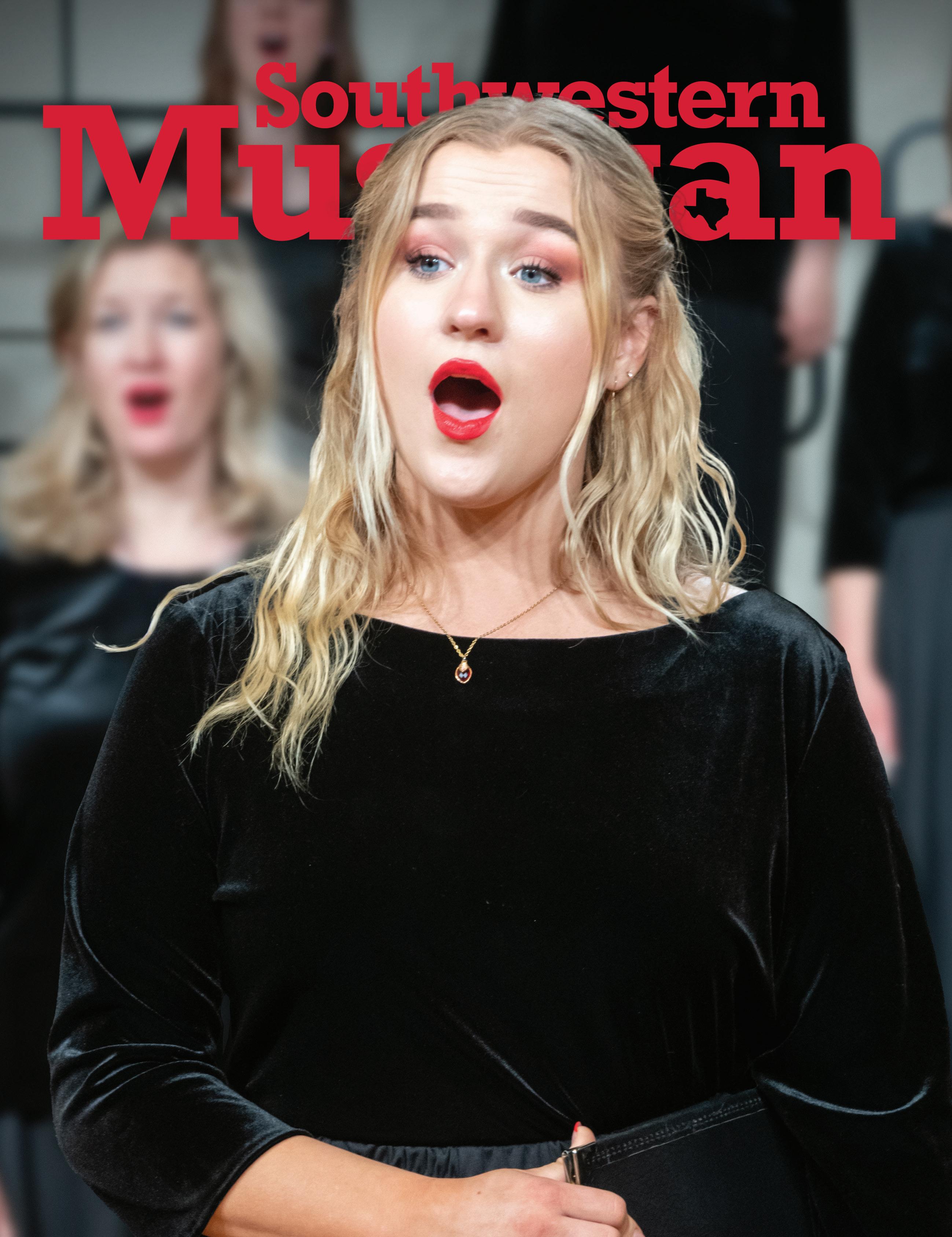
JANUARY 2023
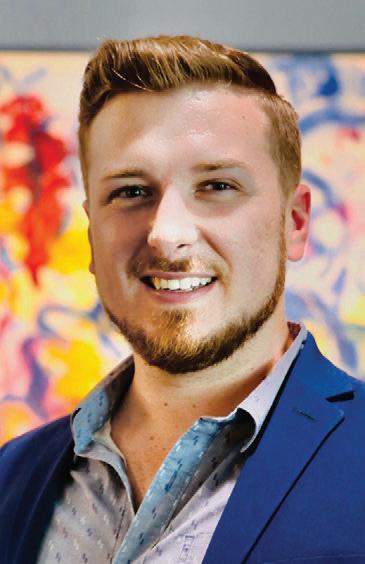
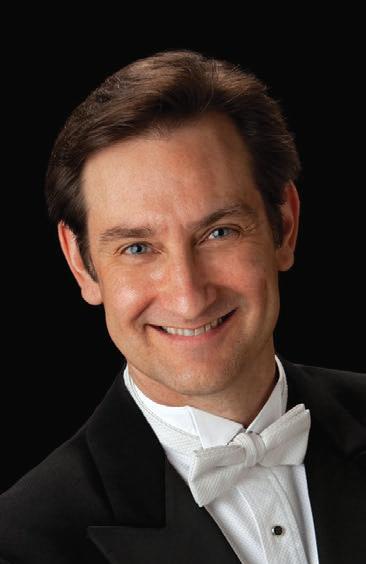
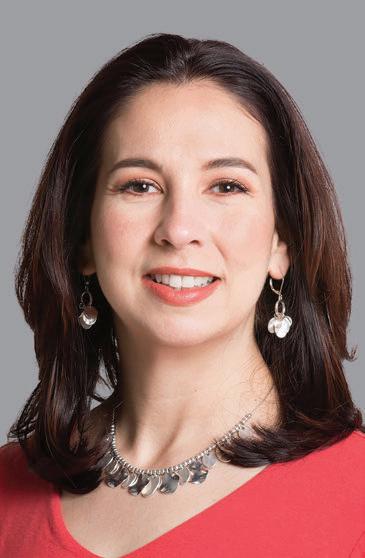
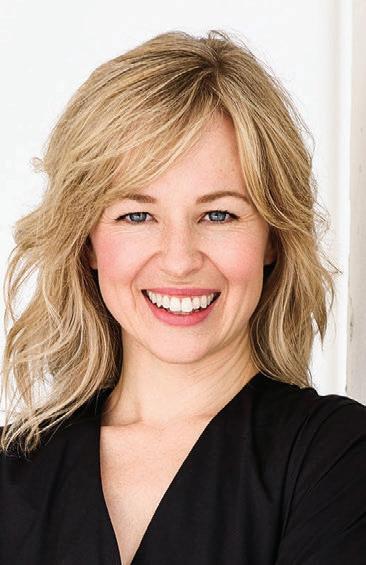
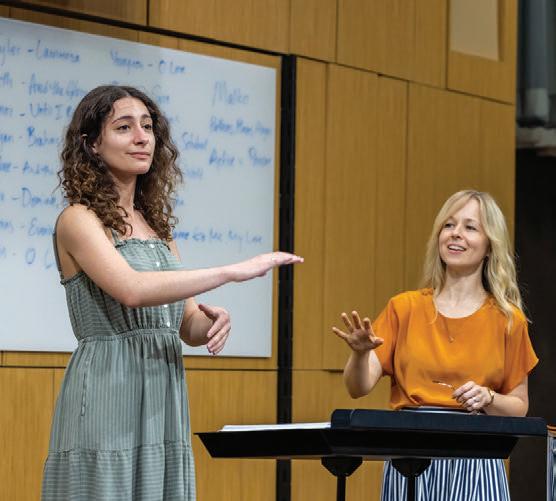
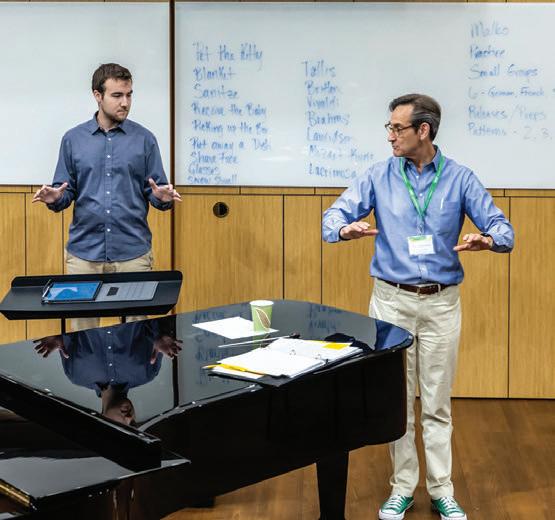
Choral Conducting SYMPOSIUM
2023 ALLEN HIGHTOWER Director of Choral Studies Professor of Choral Studies JESSICA NÁPOLES Professor of Choral Music Education BRIAN C. MURRAY Director of Choral Activities University of Wyoming KRISTINA CASWELL MACMULLEN Associate Professor of Choral Studies Friday, May 12, 2023 – Application Deadline for Fellows Friday, May 26, 2023 – Refunds Deadline Friday, June 23, 2023 – Application Deadline for Auditors FIND OUT MORE AT CHORAL.MUSIC.UNT.EDU Meet our Symposium Faculty JULY 11-14, 2023
UNIVERSITY OF NORTH TEXAS
TMEA Executive Board Candidates
How to Listen and What to Say: Effective Rehearsal Strategies
The Web of Life: Weaving Connection, Community, and Wellness into the Music Experience
Through music, you can weave a web of much-needed connection between you, your students, student families, colleagues, administrators, and your community.
Supporting Music Skill Development with Data Collection
mo foster Utilizing tools and staying as organized as possible, you can collect data and use it to improve student outcomes through thoughtful data analysis and planning.
Welcome to Music
1 Southwestern Musician January 2023 CONTENTS
■ ISSUE
ON THE COVER: Sierra Richardson, now a senior at Texas Tech University majoring in choral music education and vocal performance, performs with the Texas
Choir during the 2022 TMEA Clinic/Convention. Photo by
56
. . . . . . . . . . . . . 14
Class!
VOLUME 91
6 JANUARY 2023
Tech University
Karen Cross.
Learn about the candidates for TMEA President-Elect and Orchestra, Vocal, and Elementary Vice-President.
. . . . . . . . . . . . . . . . . 33
by phillip clements We can experience more effective and efficient rehearsals with focused score preparation, a defined rehearsal process, and advance preparation on how we will listen.
. . . . . . . . . . . . . . . . . . . . . . . . . . . 44
by rachel l . dirks
. . . . . . . . . . . . . . . . . . . . . . . . . 56
Creating Your Convention CPE Record ..........................2 2023 TMEA President’s Concert ................................ 7 Why Choose Music Advocacy Page 13 Prepare to Vote Electronically for President-Elect ................. 14 2023 Clinic/Convention Important Deadlines Near 22 HS String Honor Orchestra Finalists and Winner .................. 42 College Fall Conference Images .................................. 71 President Michael Stringer . . . . . . . . . . . . . . . . . . . . . . . 4 Executive Director Robert Floyd .................. 8 Band Vice-President Shane Goforth ............. 25 Orchestra Vice-President Ann G. Smith.......... 40 Vocal Vice-President Jesse Cannon II ............ 50 Elementary Vice-President Katherine Johns ..... 62 College Vice-President Matthew McInturf ....... 68 FEATURES UPDATES COLUMNS
by
Editor-in-Chief: Robert Floyd rfloyd@tmea.org | 512-452-0710, ext. 101
Managing Editor: Karen Cross kcross @tmea.org | 512-452-0710, ext. 107
TMEA Executive Board
President: Michael Stringer, Mesquite ISD mstringer@mesquiteisd.org | 972-882-7300 3511 Lake Champlain Drive, Arlington, 76016
President-Elect: Dana Pradervand-Sedatole, University of Houston pradervandd@yahoo.com | 713-743-3627 3606 Glenwood Springs Drive, Kingwood, 77345
Past-President: John Carroll, Monahans HS johnwoodromecarroll@gmail.com | 432-553-2780 809 South Betty Avenue, Monahans, 79756
Band Vice-President: Shane Goforth, North Shore Senior HS sgoforth@galenaparkisd.com | 713-516-7158 14122 Wadebridge Way, Houston, 77015
Orchestra Vice-President: Ann G. Smith, Plano East Senior HS ann.smith@pisd.edu | 469-752-9237 3000 Los Rios Boulevard, Plano, 75074
Vocal Vice-President: Jesse Cannon II, Fort Worth ISD vocalvp@tmea.org | 817-814-2635 1407 I.M. Terrell Circle South, Suite 2203-Room 02, Fort Worth, 76102
Elementary Vice-President: Katherine Johns, Floresville South Elementary kjohns@fisd.us | 830-393-5325 116 Oaklawn Drive, Floresville, 78114
College Vice-President: Matthew McInturf, Sam Houston State University mcinturf@shsu.edu | 832-515-8724
17 Hornsilver Place, The Woodlands, 77381
TMEA Staff
Executive Director: Robert Floyd | rfloyd@tmea.org
Deputy Director: Frank Coachman | fcoachman@tmea.org
Administrative Director: Kay Vanlandingham | kvanlandingham@tmea.org
Advertising/Exhibits Manager: Zachary Gersch | zgersch@tmea.org
Membership Manager: Susan Daugherty | susand@tmea.org
Communications Manager: Karen Cross | kcross @tmea.org
Financial Manager: Cristin Gaffney | cgaffney@tmea.org
Information Technologist: Andrew Denman-Tidline | adenman@tmea.org
Administrative Assistant: Rita Ellinger | rellinger@tmea.org
TMEA Office
Mailing Address: P.O. Box 140465, Austin, 78714-0465
Physical Address: 7900 Centre Park Drive, Austin, 78754 Website: www.tmea.org | Phone: 512-452-0710
Office Hours: Monday–Friday, 8:30 a . m . –4:30 p. m
Creating Your Convention CPE Record
Almost every clinic and concert qualify for continuing professional education credit (CPE). CPE credit is available only to TMEA Active type members, Honorary Life members, and out-of-state attendees who register and attend the convention. College Student and Retired members will not have access to create CPE records.
TMEA provides an online method for creating your CPE record after the convention. Follow these steps so that you will be prepared to return from the convention and complete your record.

1. During the convention: Keep track of all sessions you attend in their entirety.
Active membership, convention registration, and attendance is required for CPE credit to be granted.
2. When you return home: Go to tmea.org/cpe to access your record and claim the sessions you attended and print your CPE form. Submit one to your school district and keep a copy for your records.
www.tmea.org/convention
. Southwestern Musician (ISSN 0162-380X) (USPS 508-340) is published monthly except March, June, and July by
TX
Subscription rates: One Year – $20; Single copies $3.00. Periodical postage paid at Austin, TX, and additional mailing
Box 140465, Austin, TX 78714-0465. Southwestern Musician was founded in 1915 by A.L. Harper.
in
Incorporated in 1948 as National by Harlan-Bell Publishers, Inc. Published 1947–54 by
Texas Music Educators Association, 7900 Centre Park Drive, Austin,
78754.
offices. POSTMASTER: Send address changes to Southwestern Musician, P.O.
Renamed
1934 and published by Dr. Clyde Jay Garrett. Published 1941–47 by Dr. Stella Owsley.
Dr.
H. Grady
Harlan. Purchased in 1954 by D.O. Wiley. Texas Music Educator was founded in 1936 by Richard J. Dunn and given to the Texas Music Educators Association, whose official publication it has been since 1938. In 1954, the two magazines were merged using the name Southwestern Musician combined with the Texas Music Educator under the editorship of D.O. Wiley, who continued to serve as editor until his retirement in 1963. At that time ownership of both magazines was assumed by TMEA. In August 2004 the TMEA Executive Board changed the name of the publication to Southwestern Musician.
OFFICIAL PUBLICATION OF TEXAS MUSIC EDUCATORS ASSOCIATION
2 Southwestern Musician January 2023

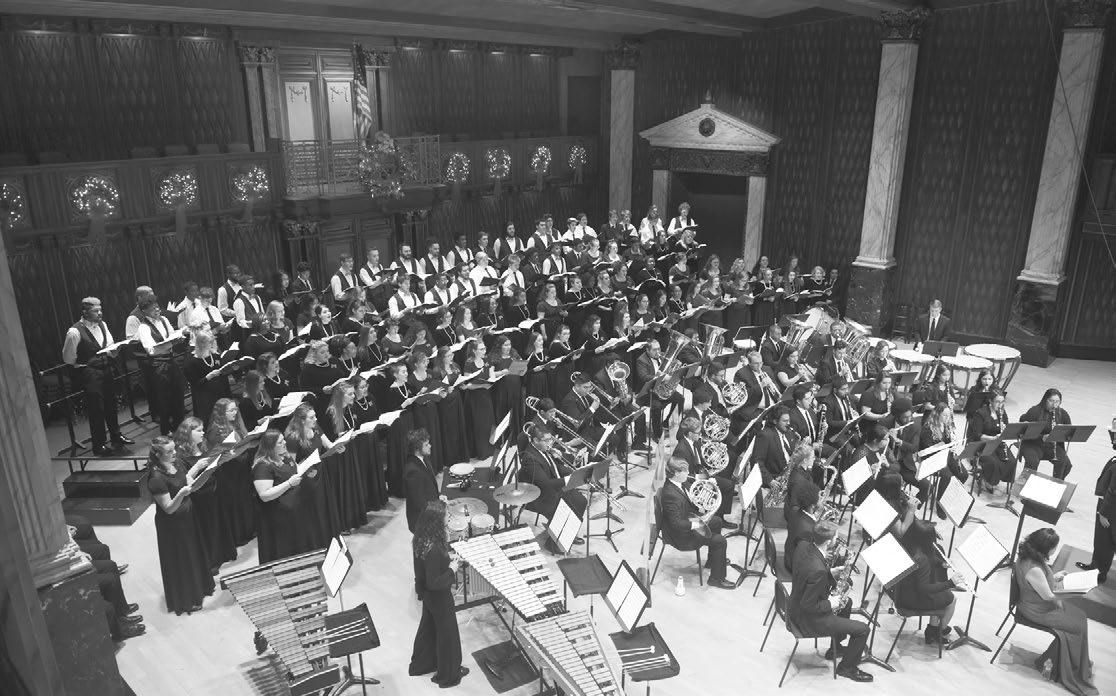
Scholarships are available! www.blinn.edu/music
audition, scan the QR code below. BLINN COLLEGE MUSIC DEPARTMENT
music
February 4, 2023 (band only) February 25, 2023 (band and choir) March 18, 2023 (band and choir) April 1, 2023 (band only) April 15, 2023 (band and choir) May 13, 2023 (band and choir) Fall 2023 auditions are available on:
To schedule an
Blinn’s band and choir are open to
majors and non-majors alike. Schedule an audition and you could perform at world-class venues while living alongside your fellow band members in our Brenham Campus residence halls!
TMEA President
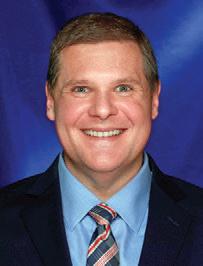 MICHAEL STRINGER
MICHAEL STRINGER
A New Year—The Same You?
Returning to school in January always gives me those first-day-of-school vibes all over again. For me, the butterflies return as I wonder what the new semester will bring. While I don’t have to develop relationships all over again, it does seem like another fresh start. I’ve always been amazed at how the students interact with each other, as if they haven’t seen one another in months. They are so excited to be back together making music again and can’t wait to get started on the new repertoire that has been programmed for the next concert cycle. For me, January was the time to put new techniques into practice and reset some of the instructional practices I wasn’t happy with that became habits in the fall semester.
Resolutions
Several years ago, my wonderful wife stopped making New Year’s resolutions. Instead, she chose a theme for the year and committed to it publicly by posting on social media and making that theme her phone lock screen for the entire year. As usual, I was a late adopter of this method. It took me many years of seeing how themes like “You aren’t Superwoman” and “Rest” took shape in her life and work before I began to adopt that approach. I have found over the past several years that I don’t have to reinvent myself each year to be happy; I just need to make small changes consistently to help me be happier and more fulfilled. These small shifts poured over into my work life as I found myself
January—Renew your membership and register for the convention.
January—Make your TMEA convention hotel reservation.
January 17—Convention hotel cancelation deadline.
January 19 —TMEA convention early registration deadline.
February 8–11 —TMEA Clinic/Convention in San Antonio.
February 9, 5:15 p.m.—TMEA Division Business meetings at the convention.
February 10, 5:15 p.m.—TMEA Region meetings at the convention.
In the end, we all want to be the best version of ourselves so our beautiful students can look to us as examples on how to live life to the fullest.
MARK YOUR CALENDAR check
for updates 4 Southwestern Musician January 2023
www.tmea .org
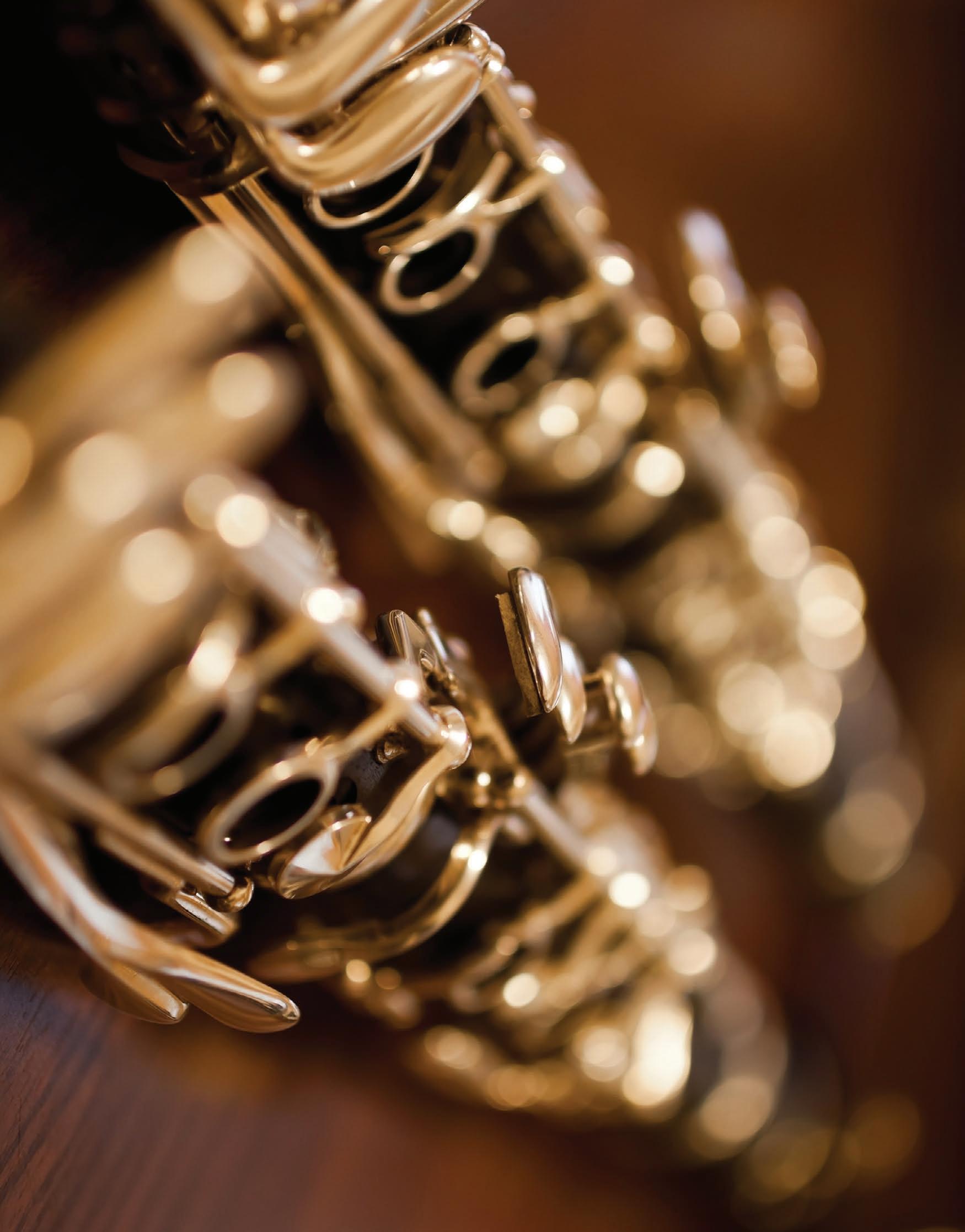
BAYLOR UNIVERSITY SCHOOL OF MUSIC AUDITION DATES FRIDAY January 13, 2023 (VOICE, EUPHONIUM/TUBA, PERCUSSION) SATURDAY January 14, 2023 (VOICE, HIGH BRASS) FRIDAY & SATURDAY January 27 & 28, 2023 (WOODWINDS, ALL BRASS, STRINGS, VOICE, PERCUSSION, KEYBOARD) FRIDAY February 3, 2023 (WOODWINDS, STRINGS, VOICE, PERCUSSION) SATURDAY February 18, 2023 (LIVE AND VIRTUAL, STRINGS) SATURDAY February 18, 2023 (KEYBOARD) For more information, visit baylor.edu/music or email Callan Monroe at Callan_Monroe@baylor.edu FACEBOOK baylormusic twitter @baylor_music INSTAGRAM @baylormusic APPLY 1. Complete the Baylor University application at baylor.edu/gobaylor 2. Complete the School of Music application at app.getacceptd.com/baylormusic 3. Audition Please scan for more information about our audition process. Subscribe to our newsletter at baylor.edu/music/subscribe Where heart, mind and soul coalesce. Auditions are required of all entering and transferring music majors. Please scan to access video archives of our performances.
applying my theme to different instructional tasks as well. There were times when I faced difficult decisions on what to do next, and in those moments, I found that the small thing I was working on would often apply to the situation. This allowed me to positively influence my students and coworkers. Ultimately, I found my work-life balance improved and some decisions that were once difficult became easy. I found that trying just one small step and being consistent with it for an entire year influenced a new me over time. After rejecting the new year, new me thinking, and instead starting slowly and being consistent, I became happier. I was healthier and found new joy in my life, which was exactly what I had been searching for all those years before.
The Long Haul
Over the years, I found that my excitement for the new year quickly faded in the long haul to spring break. While this part of the semester was broken up nicely by some long weekends and the TMEA Clinic/Convention, it always seemed like I was going from event to event, and my school days grew longer and longer. After the business that is a musician’s December, I always thought January and February would be nice and relaxing. What I found instead was that recruiting and retention practices were in full swing, afterschool rehearsals were omnipresent, and it seemed that everywhere I turned someone
was asking more and more of me.
To be honest, I never figured out how to make these months easier and ultimately found myself burning the candle at both ends until the relief of spring break. After I became a fine arts administrator, I had time to go into other teachers’ classrooms. I watched how they handled the same tasks, and I began to understand I should’ve reached out for help from my friends and colleagues those years ago.
Mentoring
Over the years, I have read many columns in this magazine about the importance of mentoring and, honestly, back then I never really thought they applied to me—a seasoned teacher. Now, I think back and wonder what would have happened if I had just reached out to someone who was better than I was at recruiting. Could I have found a better, easier, and more efficient way to accomplish greater results? If I had talked to someone about what I was programming for my ensemble, would I have selected music that better fit my students and reduced the amount of stress in rehearsal? Years later, I can unequivocally answer yes! Too many of us think about mentoring as a young-teacher thing. We get trapped into thinking that once we have 5, 10, or even 30 years under our belts we should have it all figured out and that we are here to mentor first-year educators. While we should be ready to be a mentor, it’s simply untrue that we no longer need
one ourselves. We are never perfect, and each of us has so much to learn. Being a fairly new administrator, I reach out all the time to those with more experience to ask questions, gain advice, and talk through the issues I am facing. However, I also get called by very experienced administrators, who ask me the very questions I am asking others. I think back and wish I had been more proactive as a classroom teacher (and maybe not so proud) and simply asked for help. I believe this one small change would’ve positively impacted my coworkers, my students, and me and it could have allowed the long haul of January through March to be easier for us all.
Be the Change You Want to See
Ultimately, we all must evolve and change to become a better version of ourselves. It is easy to look back on previous years and see the many mistakes we made and changes we want to make for the future. That said, we can’t try to change too much at once. Doing this will lead to confusion and quick abandonment of the broader changes you want to make. I encourage you to find a small change for your new year and apply that change across all aspects of your life. I think you will find that you will look back in a few years and see that you have become a new you who is happier, heathier, and continually looking forward. In the end, we all want to be the best version of ourselves so our beautiful students can look to us as examples on how to live life to the fullest.
Convention Update
It’s not too late to make plans to join us in San Antonio in February for our annual clinic and convention. Often, rooms become available in our housing system in early January so keep checking. The full schedule will be posted online in January, and you will be able to build a personal schedule that will help you navigate each day of the convention from the mobile app that you can download in February.
Visit www.tmea.org/convention often to find updates and explore all the wonderful programs that have been put together by our division Vice-Presidents. Remember to look outside your specific division to find new sessions that may lead you to another small change, positively impacting your instruction for years! 0
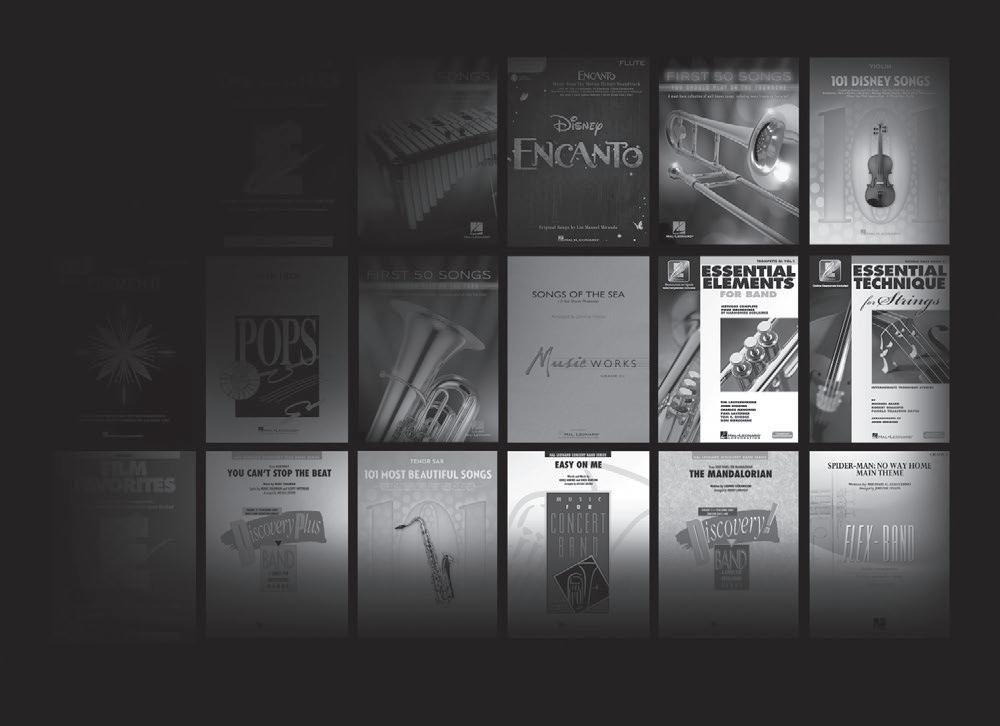
Start your free 60-day trial instantly at noteflight.com/learn Over 85,000 titles available for performance assessment! A Hal Leonard Company 6 Southwestern Musician January 2023


2023 President’s Concert Wednesday, February 8 8:00 P.M. Lila Cockrell Theatre Free Admission/ No Tickets Find your place in a remarkable community—perform in outstanding ensembles, audition for music scholarships regardless of your major, and study with an accomplished faculty. Tacoma, WA | music.admission@pugetsound.edu | 253.879.3228 Create, perform, and explore. pugetsound.edu/music Featuring the U.S. Air Force Band Singing Sergeants from Washington D.C. 7 Southwestern Musician January 2023
TMEA Executive Director
ROBERT FLOYD
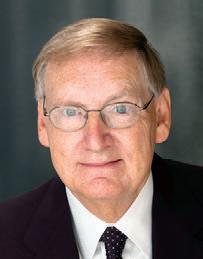
Fine Arts or Music?
Twenty-five years ago, several enthusiastic arts education leaders gathered in the TMEA office to create an arts organization to positively impact arts education in law and State Board rule and build an advocacy plan for arts education across the state. The Texas Coalition for Quality Arts Education (TCQAE) leadership believed the success of such an effort would depend on the organization representing all fine arts. TMEA played a key role in the creation of that organization, and TCQAE led the charge in protecting arts education for 25 years. Most notable of its contributions was the creation of Arts Education Day at the Capitol and the Fine Arts Education Caucus in both the House and Senate during each session.
Continuing the work of TCQAE, TMEA and TMAC (now TFAA) created the Texas Arts Education Campaign (TAEC) with a similar focus, representing music, art, theatre, and dance in its mission of lobbying for arts education at the capitol and with the State Board of Education. This two-year-old nonprofit is a collaborative venture of TMEA and TFAA and is supported by other arts organizations.
Sharing the same philosophy, at its November conference, the Texas Music Administrators Conference (TMAC) took a significant step in the history of that organization by its members voting to change its name to Texas Fine Arts Administrators (TFAA), thus also representing all four arts disciplines. TMAC was established in 1983 by music administrators to create a resource to collaboratively assist each other in fulfilling their administrative responsibilities, but up to 80% of the current members
January—Renew your membership and register for the convention.
January—Make your TMEA convention hotel reservation.
January 17—Convention hotel cancelation deadline.
January 19 —TMEA convention early registration deadline.
February 8–11 —TMEA Clinic/Convention in San Antonio.
February 9, 5:15 p.m.—TMEA Division Business meetings at the convention.
February 10, 5:15 p.m.—TMEA Region meetings at the convention.
The arts touch the soul differently from any other experience in our lives, and we must collectively embrace music, art, theatre, and dance if we are to protect arts experiences for children who will attend our public schools in the future.
MARK YOUR CALENDAR check www.tmea .org for updates 8 Southwestern Musician January 2023
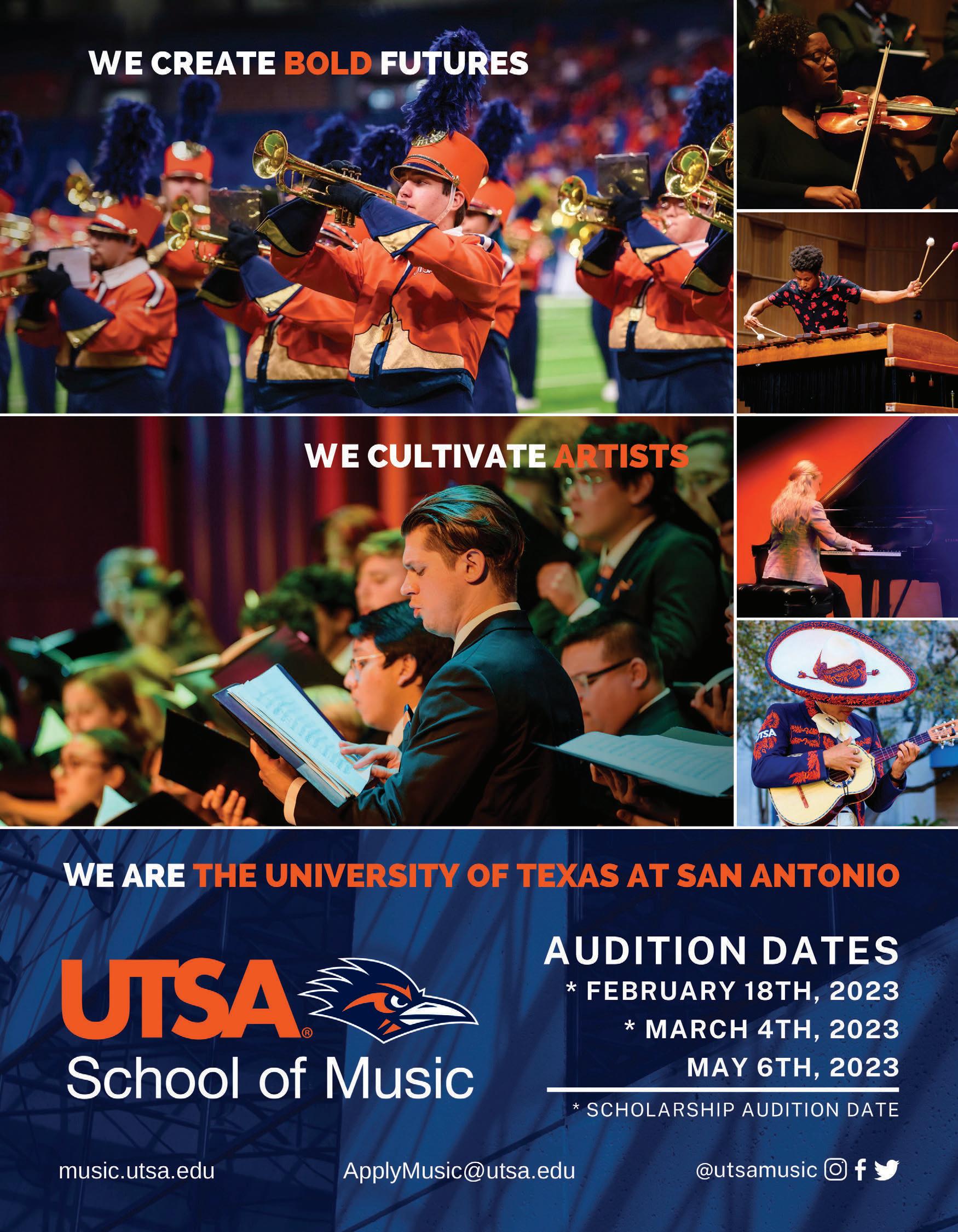
also administer all fine arts subject areas. It was a logical change, and the time was right to take that unanimous action.
So, 25 years ago, why would the Texas Music Educators Association invest time, energy, and resources advocating for arts education and not just music? And when one searches “arts education,” what subjects appear? It depends on how many links one wants to click. And where does it end? For myriad reasons, supporters of numerous academic disciplines want to claim to be a part of fine arts, but in the 2,000 pages of Texas Education Code, a definition of fine arts does not appear. The definition of fine arts appears in the Texas Administrative Code as a part of State Board of Education rule, and the subjects defined are music, art, theatre, and dance.
Through the years, there have been efforts at the capitol for other courses to meet the one-credit fine arts graduation requirement, all in the name of flexibility for students. Most notable was HB 434 during the last legislative session that would have allowed any CTE course to meet that requirement. The bill, as you may recall, died in committee.
While the legislature has remained
steadfast in protecting the fine arts graduation requirement in law, the State Board of Education does have the authority to allow substitutions. But over the years, only four courses have received that distinction: IB Film, Floral Design, Digital Art and Animation, and 3D Modeling and Animation. To the credit of the SBOE and TEA staff, they have been judicious in approving only other TEKS-based courses to meet the fine arts graduation requirement that do not dilute the rigor and relevance of the statute.
Several years ago, and again this November, the speech community proposed speech courses to meet the requirement, and the SBOE unanimously rejected each request. The last time the CTE TEKS were reviewed, the writing team asked the SBOE for 18 CTE courses to meet the fine arts graduation requirement, and they too were all rejected.
Our message in testimony and personal dialogue with SBOE members is always the same. All fine arts graduation substitution courses must be clearly vetted, be aligned with a majority of a course’s fine arts TEKS, and provide the similar experience of a rigorous TEKS-based fine arts course. If not,
at what point in time do we no longer have a valued fine arts graduation requirement called for by the legislature?
So, what is the relevance of such information? Over the years our efforts in lobbying for fine arts at both the capitol and with the State Board of Education have been most successful when we lobby collectively for all the arts as defined in TAC rule. I have mentioned in this column before that key decision makers at the capitol and leaders in the SBOE have had children involved in and pursuing professional careers in musical theater, drama, dance, and visual arts, even more so than band, orchestra, or choir. Including teachers and parents of students in other arts disciplines significantly enhances the opportunity to expand the TAEC database to assist in reaching out to legislators and state board members as critical votes are taken and decisions are made.
As a music educator for 26 years, I must say I sometimes push pause in my own mind in lobbying for all the arts and question whether we should be focusing only on protecting music. However, each arts course offers its unique positive experience, and thus I do believe that in recruiting we
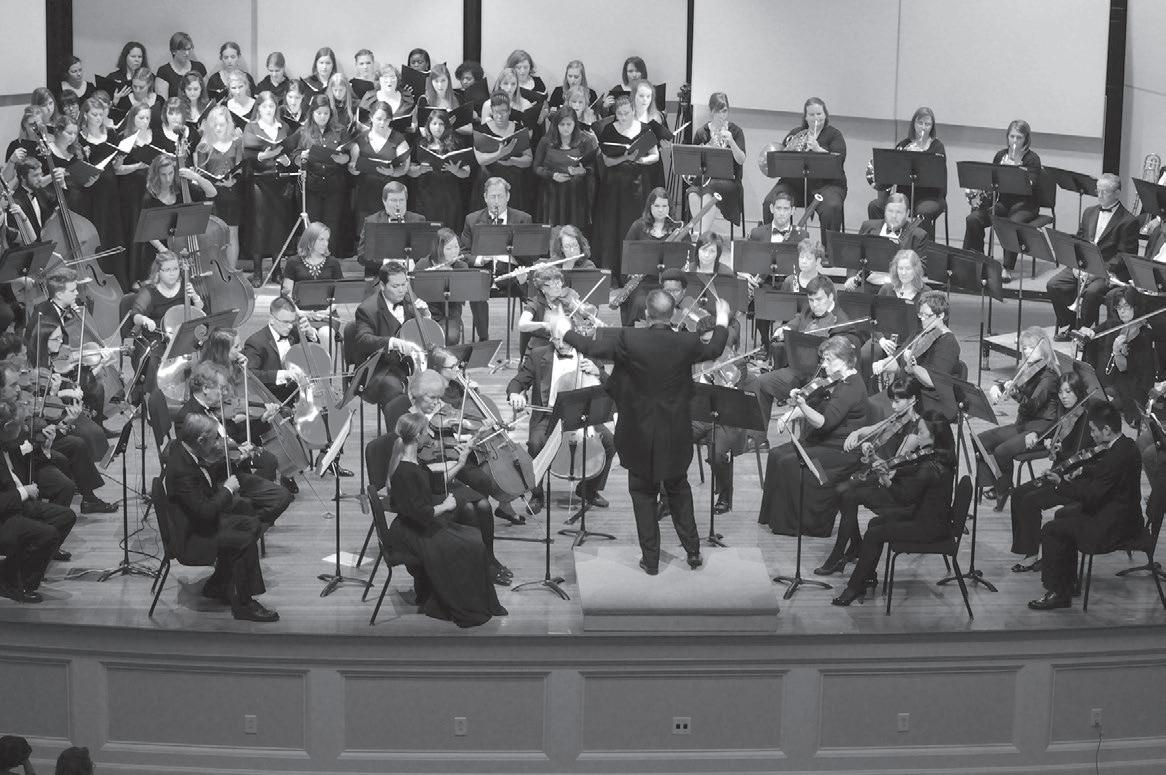
10 Southwestern Musician January 2023
Texas Tech University School of Music
WEDNESDAY, FEB 8
TMEA ALL-STATE BAND SECTIONALS
Featured Faculty: James T. Decker, Associate Professor of Trombone Richard Meek, Professor of Bassoon David Shea, Professor of Clarinet Christopher M. Smith, Professor of Horn Kevin Wass, Professor of Tuba and Euphonium
Clinician: Keith Dye, Professor of Music Education
Clinician: Keith Dye, Professor of Music Education
Host: Texas Tech University School of Music

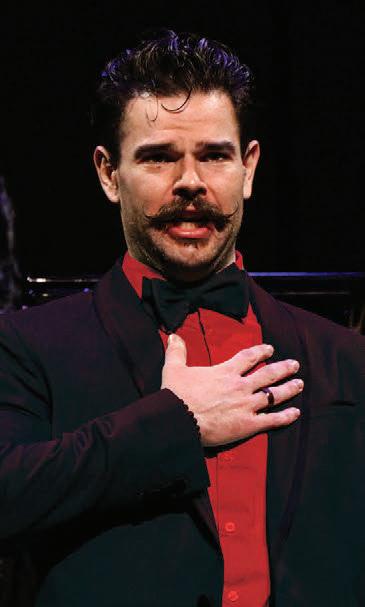
Host: TTU School of Music Clinician: David Shea, Professor of Clarinet
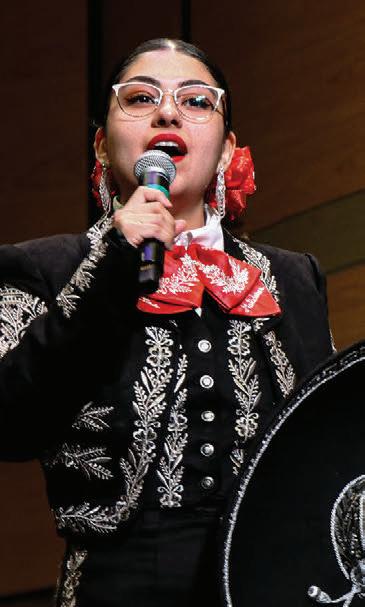
Clinician: Mark Morton, Professor of Double Bass
Clinician: Jacqueline Henninger, Associate Professor of Music Education
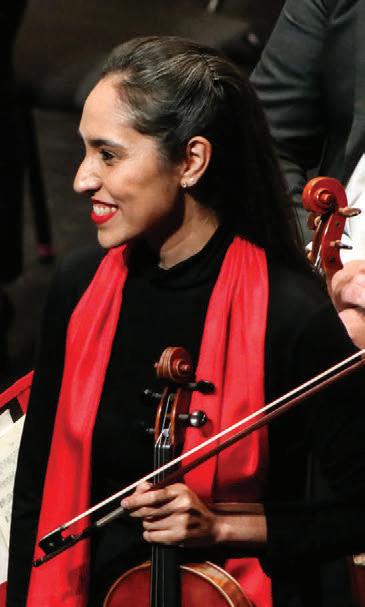
Clinician: Music Education Clinician: David Dees, Professor of Saxophone
Clinician: Lisa Garner Santa, Professor of Flute In Collaboration: Breanna Engelhardt, PresiderFirst Colony MS Clinicians: Lisa Rogers, Professor of Percussion Studies, Michael Mixtacki, Lecturer of Percussion Guest Soloist: Stephen Jones, Associate Professor of Jazz Studies
Co-Clinician
TMEA 23
TEACHING, AND THRIVING THROUGH A PANDEMIC Location: CC 207 11:30 am-12:30 pm HOW TECHNOLOGY CAN ENHANCE YOUR PROGRAM: LESSONS FROM THE PANDEMIC Location: CC 216 5-7 pm (Subject to Change) TTU PERCUSSION CELEBRATION RECEPTION; TRIBUTE TO ALAN SHINN Location: Marriott Rivercenter 6:30-7:30 pm NAVIGATING THE BERMUDA TRIANGLE OF CLARINET FUNDAMENTALS Location: CC Hemisfair Ballroom 3 FRIDAY, FEB 10 10-11 am COME AND SING! SONGS AND GAMES TO BRING US BACK TOGETHER Location: Grand Hyatt 4th Fl 3:30-4:00 pm TETRAUQ SAXOPHONE QUARTET Location: CC North Lobby Music Showcase 9:30-11:30 pm SCHOOL OF MUSIC ALUMNI REUNION Location: Marriott Rivercenter, Salon AB SATURDAY, FEB 11 8-9 am THE INCLUSIVE MUSIC STUDIO Location: CC 206 9-10 am TTU STEEL DRUM BAND AND AFRO-SAMBA ENSEMBLE Location: CC Bridge Hall Music Showcase 11 am-12 pm NAFME-TEXAS ANNUAL MEMBERSHIP MEETING Location: TBA ttu.edu/Music | schoolofmusic@ttu.edu | 806.742.2270 AUDITION DATES Saturday, Feb. 18, 2023 Saturday, Mar. 4, 2023 Recorded and remote auditions are available for select instruments.
and Past President: Jacqueline Henninger, Associate Professor of Music Education Guest: Deb Confredo (President-Elect, NAfME) 3-4 pm MAKE YOUR SOFTWARE SING! BEST TECHNOLOGY FOR CHOIR Location: CC 214D THURSDAY, FEB 9 10-11 am 12 COMMON ERRORS MUSIC STUDENTS MAKE Location: CC 225 11:30 am-12:30 pm MUSICING,
must tell our story about the takeaways that are unique to music study. There is a wonderful one-page PDF entitled “Why Choose Music” in the advocacy section of our website (and printed on the adjacent page). This PDF and other materials found at www.tmea.org/teaching-resources under the Recruiting and Retention heading can assist you in delivering that message to prospective music parents during the recruiting window. Combined with the wonderful Centennial videos, our message is compelling and convincing.
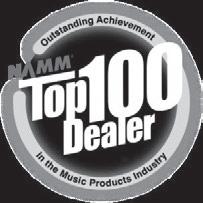
I would share this information with your counseling staff as well. Also, the degree of emphasis and support for each arts discipline and course offered still rests with the local campus or district, and that is where you can influence the support for music the most.
I must add that when it is appropriate to tell our music story rather than fine arts, our Executive Board takes advantage of that opportunity. A recent example is the purchase of full-page color ads promoting the convention in each state administrator

association publication this past fall.
At the capitol there is a long-standing joke that the writers of the Texas constitution got it wrong when stating that the legislature meets every two years for 140 days. What the authors meant to say was that the legislature will meet every 140 years for two days. Whatever they meant, our Texas legislature will be coming to town January 10 for 140 days. Members have already filed over 1,000 bills!
So, what is the legislative plan for fine arts being developed by the Texas Arts Education Campaign? Primarily, we are having serious discussions with key legislators about a funding plan for fine arts. While we have lauded the legislature for supporting fine arts through the years, it is time we have that discussion, where fine arts funding currently must come from local dollars and booster clubs. Secondly, we will be supporting the advancement of the ECC program that could ultimately give campuses and districts credit in the accountability system for extracurricular and co-curricular involvement and participation.
Moreover, we will be on the defensive to ensure we do not get caught in the passage of a well-meaning piece of legislation that could limit student access to arts programs. I issue one more plea for each of you to support the Texas Arts Education Campaign and respond to each call to action you receive from us to ensure a successful effort during this upcoming 88th legislative session.

In closing, we are the Texas Music Educators Association, and our mission, as well as my personal passion, is to provide quality experiences in music for the public and private school students in our state. But who among us is not touched by the beauty in visiting the Chicago Art Institute, or attending a Broadway performance, or supporting local arts performances or visual arts exhibits? The arts touch the soul differently from any other experience in our lives, and we must collectively embrace music, art, theatre, and dance if we are to protect arts experiences for children who will attend our public schools in the future.
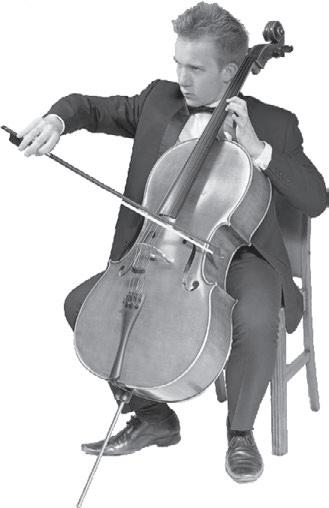
SupportingBandandOrchestraProgramsWith Sales,Rentals,RepairsandGreatCustomerService
Odessa•Midland•Abilene•Aledo ntunemusic.com
12 Southwestern Musician January 2023
0
Why Choose Music?
Music students have fun while they learn. They also:

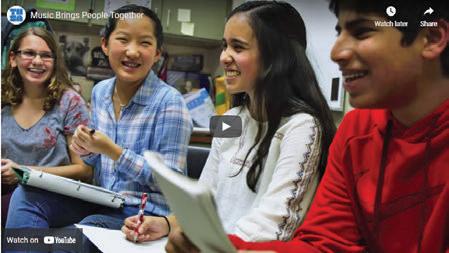
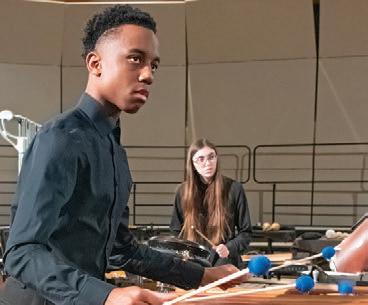


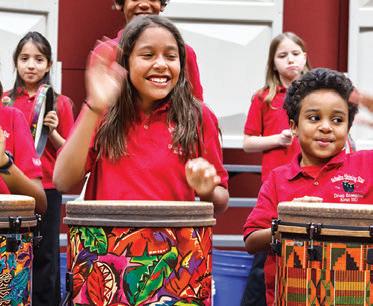
• Experience joy making music with their friends.
• Express their emotions in an inviting and encouraging space.
• Develop musical independence so that music can always be part of their life.
• Build awareness and respect of all peoples through the study of music from many cultures.
• Improve in other academic subjects as well.
• Make lifelong friendships through musical collaboration.
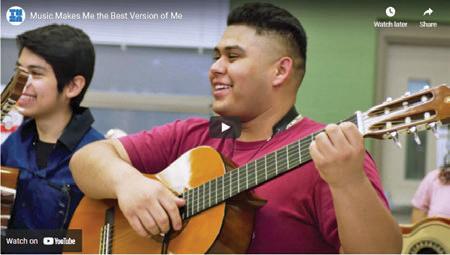
• Learn how to work with others and champion their successes.
• Develop the skills and perseverance needed for success in every future endeavor.
“The theory of relativity occurred to me by intuition, and music is the driving force behind this intuition. My parents had me study the violin from the time I was six. My new discovery is the result of musical perception.”1
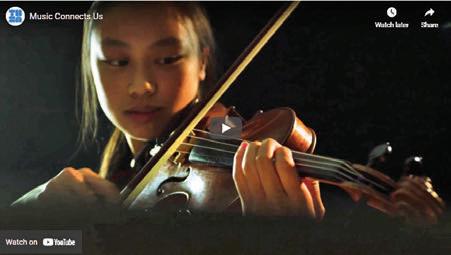
—Albert Einstein, Theoretical Physicist
“It is in Apple’s DNA that technology alone is not enough—it’s technology married with liberal arts, married with the humanities, that yields us the results that make our heart sing.”2
— Steve Jobs, Apple Inc. Co-founder
“I believe the foundation for any success I have had is derived more from my music education than my engineering study.”3
—David Borland, Amazon Web Services Director of Machine Learning Acceleration (retired)
It’s not just about a career in music
1. Nurtured
Love. A New Approach
2. The New Yorker
Steve Jobs:
3. Testimony
In music, these students found a place where they belong and motivation to excel. Learn more about Emma, Jamsel, Joyce, and Nicholas at www.tmea.org/itstartswithmusic Download This Page! tmea.org/teaching-resources 13 Southwestern Musician January 2023
by
to Education, Shinichi Suzuki, 1969
,
“Technology Alone Is Not Enough,” October 7, 2011
to the Texas House Public Education Committee, March 9, 2021
Executive Board Candidates
TMEA President-Elect will be elected by electronic ballot on February 9, after the General Session (voting closes at 10 p.m.). Orchestra, Vocal, and Elementary Division Vice-Presidents will be elected in their business meetings, February 9, at 5:15 p.m
Candidates for President-Elect: Jesse Cannon II & Jed Ragsdale
Jesse Cannon II
Present Position: Director of Vocal & Elementary Music, Fort Worth ISD (2022–current).

Previous Positions: Choir Director/ Secondary Choral Coordinator, Duncanville HS, Duncanville ISD (2017–2022); Assistant Choir Director, DeSoto HS, DeSoto ISD (2012–2017); Music Teacher, Della Icenhower Intermediate, Mansfield ISD (2011–2012).
Education: Bachelor of Music Education, Dallas Baptist University (2011); Master of Music Education, Mississippi State University (2021).
TMEA Offices and Positions Held: TMEA Vice-President, Vocal Division Chair (2021–current), Region 20 President (2020–2021); Region 20 Vice-President (2018–2020); TMEA State Board (2018–2021); Region 20 Vocal Chair (2016–2018); Region 20 Vocal Chair-Elect (2015–2016); Region 20 Vocal Secretary (2013–2015); TMEA College Division Assistant (2008–2010).
Other Offices and Positions Held: TMEA Diversity, Equity, and Inclusion Committee, TMEA Vocal Division COVID-19 Resource Committee, SWACDA Repertoire & Resources Chair–HS Mixed (2018–2020), SWACDA Conference Committee, SWACDA Board Member, TMEA President’s Public Relations Committee, TMEA Performing Group Guide, TMEA Clinic Presider, TMEA & UIL Contest Organizer, DBU All-State Choir Camp Director, Oak Cliff Bible Fellowship Worship Staff.
Professional Affiliations: TMEA, TFAA (formerly TMAC), TMAA, TCDA, ACDA, and Phi Mu Alpha Sinfonia.
Honors/Accomplishments: Country Music Association Foundation Music Teacher of Excellence (2022); Grammy Signature School–Duncanville HS Choir (2022), American Prize in Choral Performance Finalists (2022), Duncanville HS Teacher of the Year (2021), Mark of Excellence National Winner–Duncanville HS A Cappella Men’s Choir (2021), ACDA Invited Performing Choir, Duncanville HS A Cappella Men’s Choir (2021), TMEA Invited Performers for It Starts with Music production (2020), Active Clinician and Adjudicator.
Statement: I am honored and excited to be nominated for the office of TMEA President-Elect. Through service as a member of the Executive Board and previous service to the association, I have seen the positive effect TMEA has on its members, teachers, and students. As Vocal Division Vice-President, I have seen that this organization is a vital part of the legislative direction and visibility of music education and fine arts in our state. My leadership experience with TMEA and other national organizations has broadened my lens to understand and address inequities that exist for our students and teachers within our profession.
During my time as Vocal Vice-President, I created our division’s All-State Resources Committee, working with directors and voice teachers across the state to provide resources to aide students as we maintained rigorous repertoire. I have worked to streamline audition policies and procedures across divisions.
In my new role as Director of Vocal and Elementary Music in Fort Worth ISD, I have gained valuable insight into the needs of each area of music education. My job responsibilities take me into elementary, middle school, and high school classrooms, concerts, administrative meetings, and even college recruitment events.
As TMEA moves forward, we must recognize, embrace, and put into meaningful and sustainable action an intentional move toward diversity in the selection of clinicians, clinic topics, and repertoire to fully represent the vast cultural richness represented from our membership. We must think globally as we create a template for how inclusivity translates in the world of music.
It is imperative that TMEA work to improve arts advocacy and engage policy makers in a deep understanding of and commitment to the connection of music education to the whole child and mental health of millions of our students. Arts education must be valued as much as literacy and numeracy, and we must work to ensure that music education is preserved and enhanced to enrich and improve the lives of all students.
Why choose Jesse Cannon II as your next TMEA PresidentElect? I will be your most powerful and energetic advocate. I will continue to devote time, focus, and energy to provide members with a valuable and meaningful convention experience while offering students amazing opportunities for musical growth in the classroom, through the TMEA audition processes and clinic/ concerts. I will work tirelessly to provide quality music education for every student in Texas. It is very important that in this election you vote for the candidate with a proven track record with vis-
Prepare to Vote Electronically for TMEA President-Elect
TMEA will email these ballots to eligible voters after the February 9 General Session. Complete the following before February 9:
1. Ensure the primary email on your TMEA member record is accurate. Go to tmea.org/memberinfo. You can update and save a new email address in your record.
2. If you will be at the convention on February 9, be sure you can access that email account remotely (on your personal device or over the Internet on a computer, such as at your hotel). If you are unable to access a computer elsewhere, you can go to the TMEA Help Desk by Onsite Registration (Thursday 10 a m –5 p m.).
3. Add membership@tmea.org to your safe senders list to prevent the email from being blocked.
WWW.TMEA.ORG/ELECTION
14 Southwestern Musician January 2023
ibly measurable outcomes. As President-Elect, I look forward to learning from and working with leaders from each division. It is through collaboration that our association will grow.
I ask for your vote and for the opportunity to continue working at the state level to support and amplify music education.
Jed Ragsdale
Present Position: Director of Choirs, Tomball Memorial HS (2016–present).
Previous Positions: Director of Choirs, Cy-Fair HS, CFISD (2005–2016); Associate Choir Director, Jersey Village HS, CFISD (2004–2005); Associate Choir Director, Langham Creek HS, CFISD (1998–2004), Voigt Elementary, Round Rock ISD (Spring 1998).
Education: Bachelor of Music Education, Southwestern University (1998); Master of Educational Leadership, Lamar University (2009).
TMEA Offices and Positions Held: TMEA Vice-President and Vocal Division Chair (2019–2020); All-State Mixed Choir Organizer (2018–2019); Area F Chair (2016–2018); Vocal Division Convention Coordinator (2016–2017); Area E Chair (2014–2015); Facilities Manager (2012–2013); Region 27 Vocal Chair (2006–2009).

Other Offices and Positions Held: Music Director at Rose Hill United Methodist Church (present), UIL PML Committee, TCDA Ways and Means Committee, TCDA Hospitality Chair.
Professional Affiliations: TMEA, TCDA, ACDA.
Honors/Accomplishments: TMEA Invited Performing Choir (2004), Lincoln Center Choir Performance, Carnegie Hall Invitation, Consistent UIL Sweepstakes awards, Multiple National Awards and Choir Championships, Active Region Conductor, UIL Adjudicator, and Clinician.
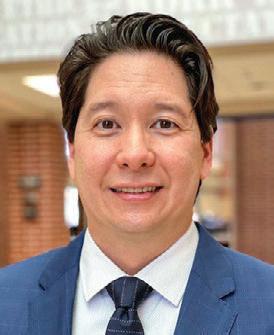
Personal Information: One title is most important to me: Dad. I am an extremely proud father of two amazingly musical kids: my daughter Avery is a member of the Waller HS Choir program, and my son Aidan is a saxophonist in the Waller HS Band program.
Statement: It is with great honor and deep respect I have for our association that I accept the nomination for the office of PresidentElect a second time! I was trusted to serve as the TMEA Vocal Division Vice-President and, you may recall, it was during this time we celebrated our association’s centennial with the most incredible TMEA Convention celebration. However, we immediately proceeded into the most challenging period of modern history.
It was during this unprecedented time that I worked with the Executive Board in a continuous effort meeting weekly, virtually. During our collaboration, TMEA developed a platform to update musicians on COVID-19 protocol, resources for PPE equipment, the online audition process, online performance platforms, the virtual TMEA Clinic/Convention, and a support system for sharing ideas through the Connections virtual events. I was proud to serve on a team that thought beyond existing barriers to develop or discover tools needed to provide a solid music education for all students in various unconventional settings—preK through college. Some of these tools are still being utilized in classrooms today. It was also during this period that I assisted in the development of the much-needed DEI Committee, which offered insight
and guidance during an evaluation of the various TMEA policies and procedures. The above experiences were life-impacting and altering.
Moving forward, it is with these experiences, in addition to organizing numerous moving parts of two of the grandest and monumental conventions, as well as being part of every level of the All-Region, All-State, and Invited Ensemble processes, that I feel a continued desire to contribute and give back even more to our great association. I have served TMEA in nearly every capacity during twenty-two of my twenty-five years as a music educator.
As President-Elect, I will utilize all I have gained as a servantleader and the insight I possess to propel our association to even greater heights of music education, music performance, cultural understanding and sensitivity, and I will work to ensure an equitable auditions process across all divisions. I will strive to maintain the appropriate traditions that have made TMEA the best music association in the nation and be forward-thinking in the area of mental health awareness. I will seek all possible pathways to allow our students to become the best musicians and community members in the healthiest manner through inspired teaching practices and available resources.
I will work diligently to maintain transparency, a key component of trust, equity, and inclusion, in our association and will advocate for underrepresented communities. I will ensure TMEA maintains a strong rapport with state representatives and legislators, so that you, the music educator, receive the strongest support. Our students need music more than ever, which means they need you more than ever. With the experience I possess, I hope you will allow me an opportunity to serve our association once again, this time as TMEA President-Elect. I respectfully ask for your vote in this very important election in February.
Note: Nominee Ann G. Smith has withdrawn her candidacy for President-Elect.
TMEA.ORG/CONVENTION Join Thousands of Music Educators at the 2023 TMEA Clinic/Convention FEBRUARY 8–11 • SAN ANTONIO 15 Southwestern Musician January 2023
Candidates for Orchestra
Vice-President: Jennifer Martin & Joshua Taylor
Jennifer
Martin
Present Position: Orchestra/ Mariachi Specialist, Fort Worth ISD (2022–present).
Previous Positions: Director of Orchestras, Boles JH & Moore Elementary, Arlington ISD (2014–2022); Orchestra Director, Moore/Swift/Wood Elementary (2011–2014), Orchestra Director, Ashworth/Pearcy/Williams Elementary (2008–2011); Director of Orchestras, Midway HS (2006–2008); Director of Orchestras, Midway MS (2003–2006).
Education: Bachelor of Music Education, Baylor University (2003).
TMEA Offices and Positions Held: Region 5 Orchestra Chair (2018–2020); Region 8 MS Coordinator (2006–2008); All-State Orchestra Organizer (2004, 2011); TMEA Honor Orchestra and Invited Orchestra Adjudicator.
Other Offices and Positions Held: Boles JH Fine Arts Department Lead (2021–2022); AISD Online Beginning Orchestra Curriculum Committee Lead (2020–2021).
Professional Affiliations: TMEA, TODA, TMAA, TFAA (formerly TMAC), Mu Omicron.
Honors/Accomplishments: Arlington ISD AWARE Teacher of the Year Finalist (2022), Winner of the Smile Doctors Arlington Rockstar Teacher Contest (2021), TODA Reading Session Conductor, TMEA Region Orchestra Clinician, Consistent UIL Sweepstakes Award Winner, Active Clinician/Adjudicator.
Personal Information: I have been happily married for 20 years to my amazing husband, Jimmy, who teaches middle school history. Our greatest pride and joy is watching our two children Haley and Joe grow up. They have each found friendship and confidence playing cello and violin in their school orchestra program. I enjoy performing in the viola section of the Waco Symphony. I also play for the worship services at my church, and I volunteer with the orchestra booster club for my children’s school.
Statement: I am truly grateful and humbled to be nominated for the office of Vice-President and Orchestra Division Chair of TMEA. Throughout my career, I have consistently sought out opportunities to serve and lead for the betterment of orchestra education in Texas. As a recent Region Chair, I am well-versed in TMEA All-State and Honor Orchestra rules and procedures. I believe strongly in servant-leadership, and if elected, I will work tirelessly to advance orchestra education and serve TMEA.
I have recently started in a new position as the Orchestra/ Mariachi Specialist for Fort Worth ISD. The past three school years have been some of the most difficult times for educators and specifically music educators. Experienced and novice orchestra directors alike are leaving the profession in high numbers. One of the things that motivated me the most to apply for the specialist position is the opportunity to mentor, coach, encourage, and support directors. As Orchestra Division Vice-President, I will work to keep the Mentoring Network strong and thriving, as well
as work to support and invigorate teachers in all stages of their careers.
I am excited about the new Invited Orchestra approved by the Executive Board for 2024. I believe this is a wonderful additional opportunity to highlight and celebrate the amazing programs across the state. A silver lining of COVID was the opportunity to put a temporary pause on Honor Orchestra competition in lieu of Invited Orchestras. The return to Honor Orchestra competition this school year has been invigorating and very successful. As I judged the JH/MS String and Full Orchestra finals at the TODA convention in July, I was blown away by all that has been accomplished by these amazing students and directors despite all the challenges! However, the Invited Process fills a need alongside Honor Orchestra to showcase orchestras selected through a different process.
TMEA has given so much to me, starting when I auditioned for Region as a shy sixth-grade viola player because Cathy Fishburn made me believe I could do it. High school brought even more amazing experiences through All-Region, All-State, and a TMEA Honor Orchestra performance. Then when I started my first year teaching 20 years ago, TMEA and the Orchestra Division community supported me as a young teacher and helped me get started on the right foot in the profession I was destined for. Should I be given the honor of serving as Orchestra Division Vice-President, I pledge that I will serve with everything I have. I will listen to and support the division’s membership and work to continue to facilitate students from all walks of life receiving the highest quality orchestral education and experience. Thank you for considering me as the TMEA Orchestra Division Vice-President.
Joshua Taylor
Present Position: Middle School Orchestra Director, Autumn Ridge MS, Humble ISD (2022–present).
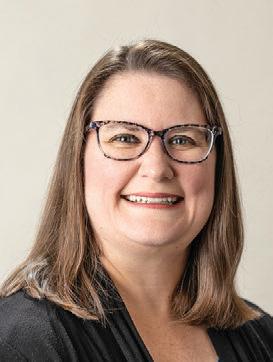
Previous Positions: High School Orchestra Director, Kingwood Park HS, Humble ISD (2014–2022); Middle School Orchestra Director, Ross Sterling MS, Humble ISD (2013–2014); Instrumental Music Teacher and Assistant Band Director, Warren County Schools (2011–2013); K-12 Instrumental and Vocal Teacher, Lake Andes School District (2010–2011).

Education: Bachelor of Music Education, Lee University (2010); Master of Educational Leadership, Lamar University (2022).
TMEA Offices and Positions Held: Region 33 Orchestra Chair (2017–present).
Other Offices and Positions Held: Region 19 Clinic and Concert host; Region 19 MS Orchestra UIL Concert & Sightreading Evaluation host; Region 33 HS Clinic and Concert host; Region 33 HS/MS Orchestra UIL Concert & Sightreading Evaluation host; Board of Directors, Kingwood Pops Orchestra.
Professional Affiliations: TMEA, TMAA.
Honors/Accomplishments: TMEA invited clinician, active adjudicator, and clinician.
Personal Information: I live in Kingwood with my Goldendoodle, Tucker, and my three cats, Alma, Oreo, and Emma. I serve as the Music Director for Kingwood Christian Church (2016–present). I serve on the Board of Directors for the Kingwood Pops Orchestra and sing tenor with the Lake Houston Chamber
16 Southwestern Musician January 2023
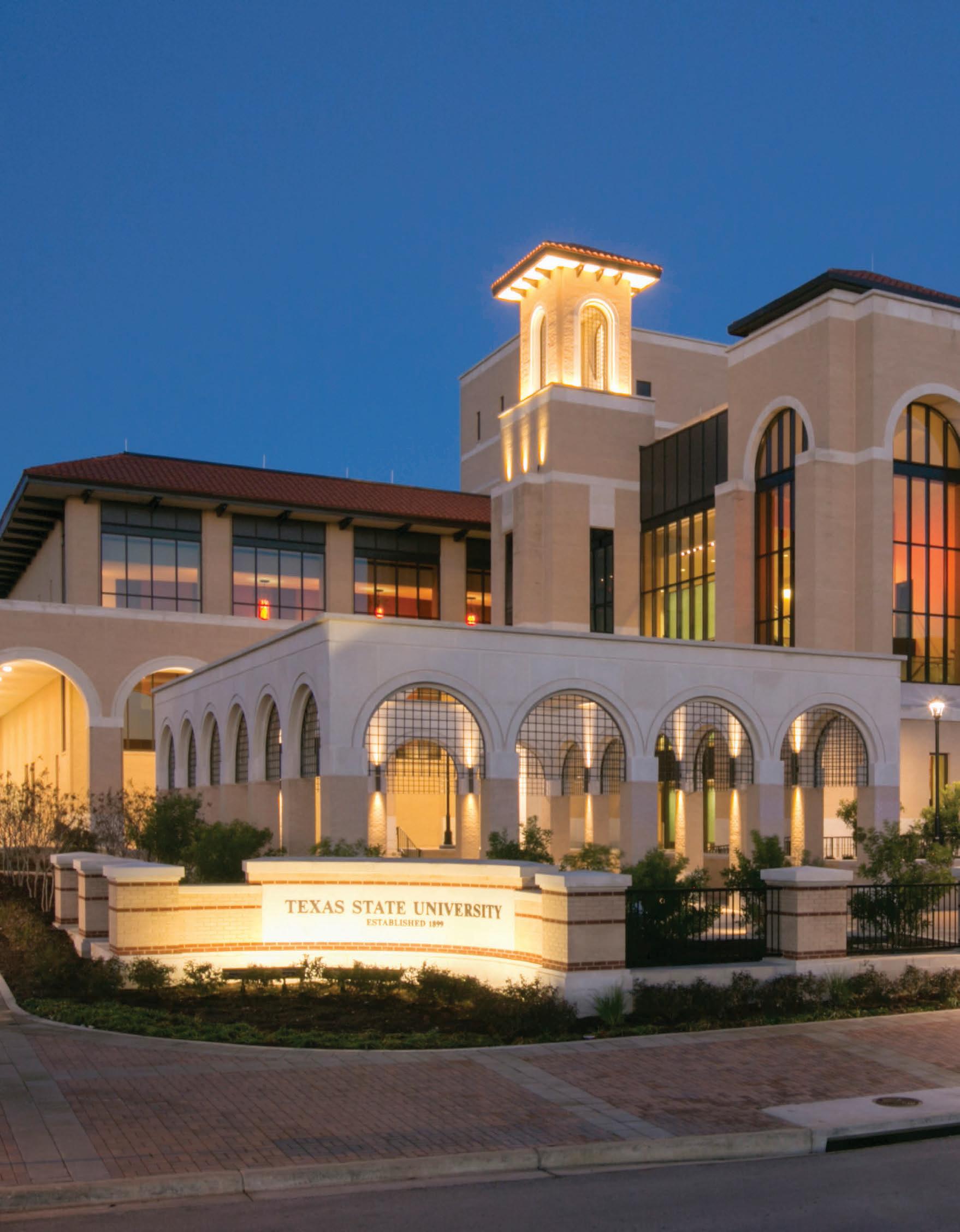
2023 AUDITIONS
or
music.txstate.edu January 28, 2023 February 25, 2023 March 25, 2023 Scholarships/assistantships available. music.txstate.edu
Texas State University, to the extent not in conflict with federal or state law, prohibits discrimination or harassment on the basis of race, color, national origin, age, sex, religion, disability, veterans’ status, sexual orientation, gender identity
expression. Texas State University is a tobacco-free campus.
Singers under the direction of Joe Weir. In my spare time I enjoy reading, organizing, visiting cultural landmarks and museums in Houston, and trying out new restaurants.
Statement: I am honored and humbled to accept the nomination for TMEA Orchestra Vice-President. My desire to run for this position stems from my passion to assist my fellow teachers across Texas. None of us are an island unto ourselves. We succeed because of those who have gone before us and eagerly shared their knowledge and best practices with us. I do not have all the answers, nor do I pretend to be all knowing. As Orchestra VicePresident I will foster a means in which to hear from teachers across Texas regularly so that I lead faithfully and with the best intentions always in mind.
I feel strongly that the Orchestra Vice-President should first and foremost provide support to orchestra directors as well as the Region Chairs to confidently provide TMEA events and allow students to fully access all opportunities afforded to them. I am proud of the work we have done in Region 33; I am fortunate to work with amazing orchestra directors who have helped create an efficient audition process and engaging clinics and concerts for our students. My years of leadership in the Region have afforded me valuable experience that I hope to share with the state’s orchestra directors as well as those finding themselves as newly elected Region Chairs. We cannot do this alone, and I will ensure that every orchestra director in the state feels confident in emailing, calling, or texting me for help.
We are at a crossroads, facing challenges far greater than any of us could have imagined. As we are finally moving past COVID-19, I am reminded time and again of relevance. What is our purpose? What is the relevance of contests, competitions, concerts? Why should students participate in the TMEA All-State process? Why is music education important? These are questions I hear repeatedly from music teachers, parents, and administrators. Our unending duty is to evaluate our events, processes, and procedures without ceasing to ensure that we offer our students only our best. We all know that our All-State process needs review. It is time we act and
create a system that works for all orchestra programs and students. It is important that we celebrate our successes and continue the wonderful traditions we have. I stand in the presence of giants— music educators who never gave up on me as a student and continue to support me as a colleague. I am honored to work alongside incredible leaders in TMEA and am excited for the opportunity to continue the strong legacy of orchestral education. I hope to give my best in everything I do and ensure that our teachers are supported, concerns are heard, and we continue to provide worldclass opportunities for our students. Thank you for your consideration for TMEA Orchestra Vice-President.
Candidate for Vocal Vice-President: Joshua McGuire
Joshua McGuire
Present Position: Head Choir Director, Rock Hill HS, Prosper ISD (2020–present).
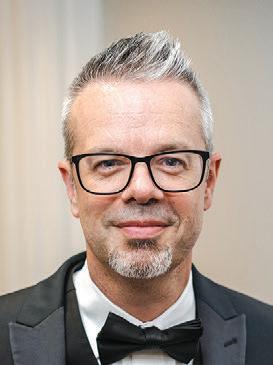
Previous Positions: Head Choir Director, Sachse HS, Garland ISD (2005–2020); Head Choir Director, Reed-Custer HS, Braidwood, Illinois (2000–2003).
Education: Bachelor of Music (Education), Western Illinois University (2000); Master of Music (Choral Conducting), Louisiana State University (2005).
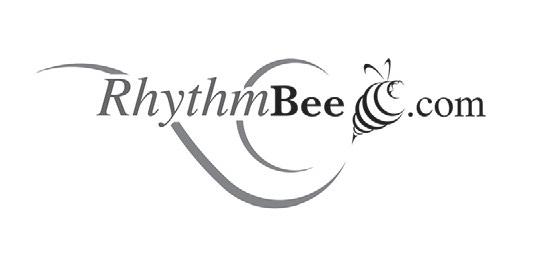
TMEA Offices and Positions Held: Area B Vocal Chair (2021–2023); Convention Ballroom Manager (2023); Vocal Division Convention and Clinic Coordinator (2020–2021); State Board Election Chair (2019); All-State Tenor Bass Choir Organizer (2016–2017); Small School Choir Committee (2016–2017); Area C Vocal Chair (2014–2018); All-State Mixed Choir Section Leader (2014); Region 3 Vocal Chair (2010–2011); All-State Tenor-Bass Choir Section Leader (2007).
Other Offices and Positions Held: King of Glory Lutheran Church Interim Choral Director (Dallas); Sachse HS Fine Arts Department Head.
Professional Affiliations: TMEA, TCDA, TMAA, ACDA.
Honors/Accomplishments: NAfME National Convention Demonstration Choir and Presenter (2016); City of Sachse Secondary Teacher of the Year (2011); Sachse HS Teacher of the Year (2010); American Classic Madrigal Festival Performance of Distinction (San Antonio 2012, 2014; Dallas 2020, 2022); Frequent MS and HS Region Choir Clinician/Conductor.
Personal Information: Service to the profession has been a top priority throughout my teaching career. In particular, work on the behalf of TMEA has equipped me to positively affect my campus, community, and
Your Choice: * Half Price (July 1, 2023 expiration) * Full Price (July 1, 2024 expiration) * * * * * * * * * * * * * * * * * * * * * * * * ** * * * * * * * * * * * * * * * * * * * * * * * * * * Sequential Animated Curricula for Band, Choir, Orchestra, Elementary Music Rhythm / Solfeggio / Curwen / Math Facts / PreK Music Reading Readiness 1 & 2 & / 1 te 2 te / Ta Ta Ti Ti * * * * * * * * * * * * * * * * * * * * * * * * * * * * * * * * * * * * * * * * * * ** * * * * * * * * * * Windows,Mac,Android orders@rhythmbee.com 903-725-3304
18 Southwestern Musician January 2023



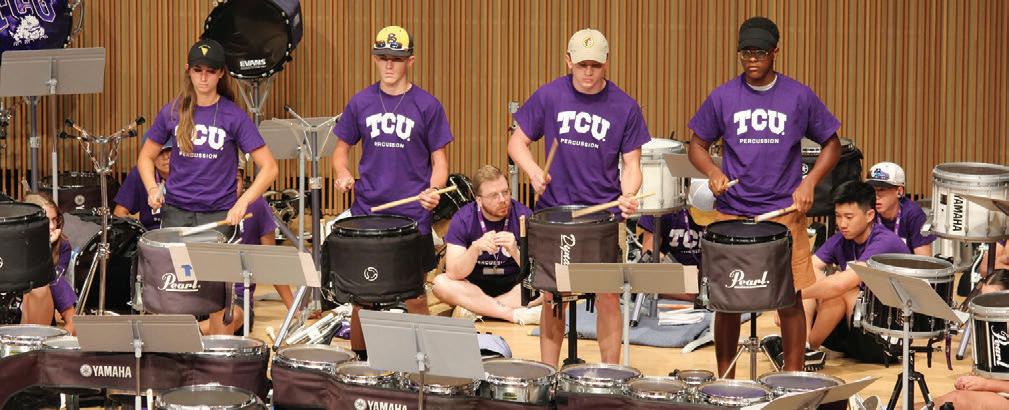
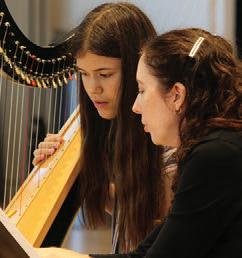
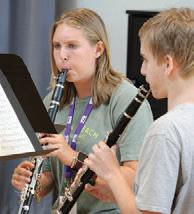
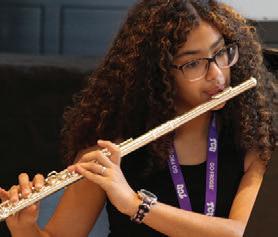
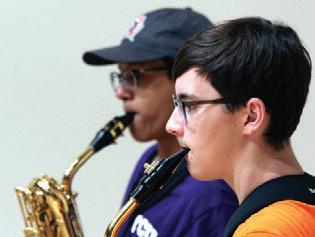

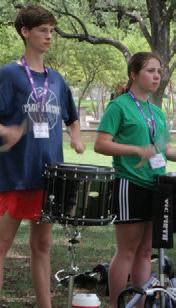
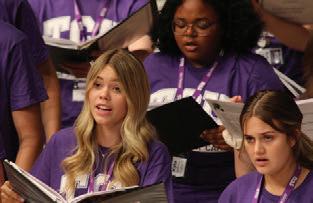
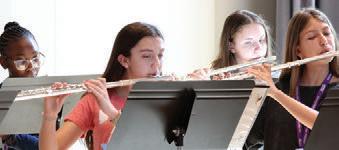
Camps & Workshops* TCU STRING FESTIVAL • MAY 30 - JUNE 4 JULIETTE HERLIN, LIZ LEE PERCUSSION CAMP • JUNE 6&7 BRIAN WEST, JEFF HODGE TCU BAND CAMPS • JUNE 11-17 BOBBY FRANCIS, BRIAN YOUNGBLOOD FLUTE WORKSHOP • JUNE 21&22 SHAUNA THOMPSON SAXOPHONE WORKSHOP • JUNE 21&22 TBA HARP WORKSHOP • JULY 5-7 KELA WALTON ALL-STATE CHOIR CAMP • JULY 9-15 CHRISTOPHER ASPAAS, MARLA RINGEL CLARINET WORKSHOP • JULY 18&19 COREY MACKEY STAR WARS AND THE MUSIC OF JOHN WILLIAMS • JULY 17-20 PAUL CORTESE FOR REGISTRATION INFO*, PLEASE VISIT OUR WEBSITE AT WWW.MUSIC.TCU.EDU/SMI.ASP *ALL EVENTS SUBJECT TO CHANGE IN RESPONSE TO COVID-19 School of Music 2023 SUMMER MUSIC TCU School of Music
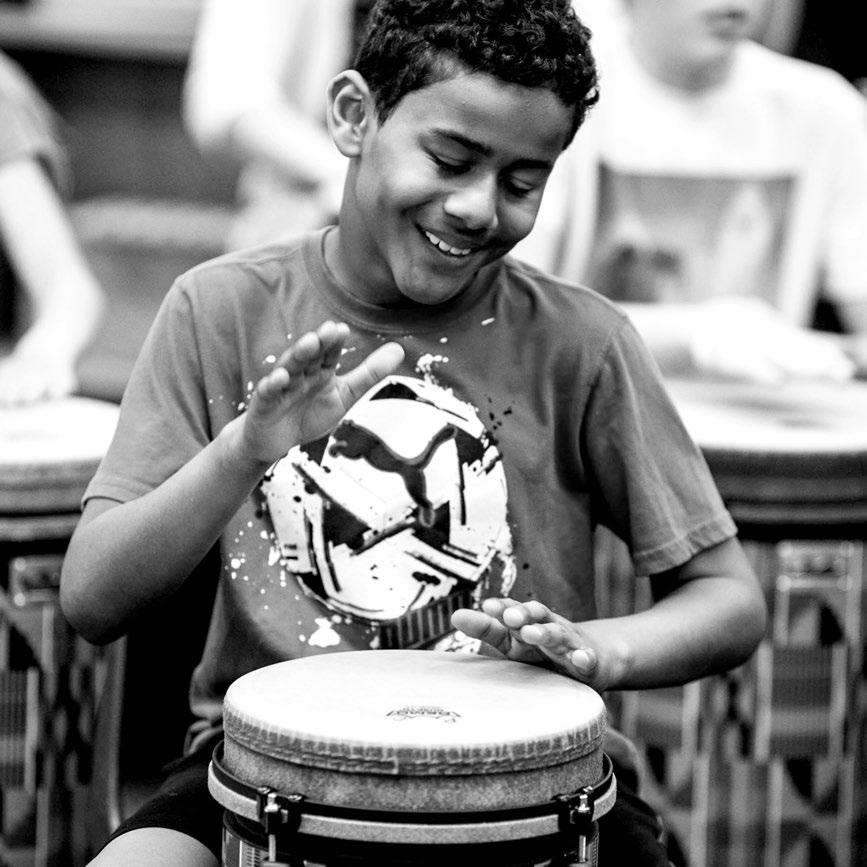

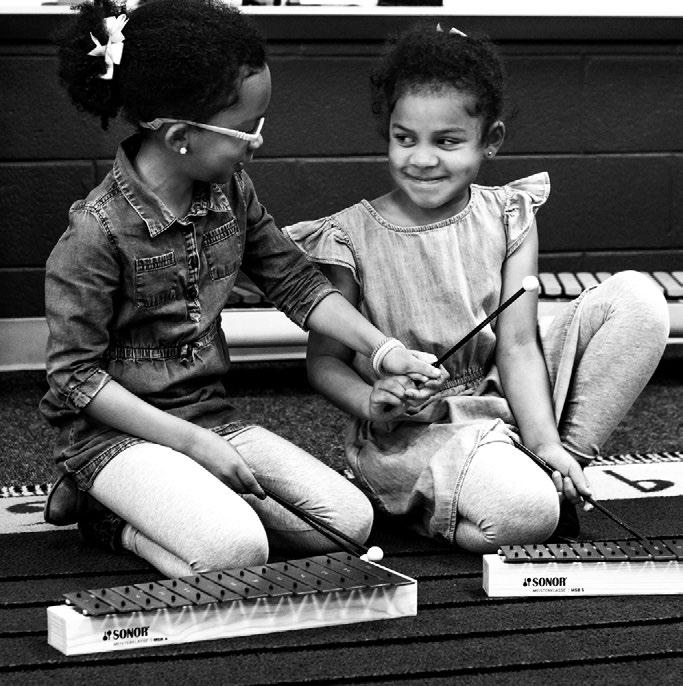

Ask us NOW about the deals for session room instruments! Contact us today! Call or email us at 800-397-9378 or educationconsultants@westmusic.com! See you at TMEA, booths #1427 and 1527!
colleagues in profound ways. Through these experiences I have seen how impactful our organization is to our profession and to the students and teachers of Texas. It is both challenging and rewarding to be a part of bold innovation and strong leadership that influences music education in our country.
Statement: I am honored to receive this nomination for TMEA Vice-President and Vocal Division Chair. Through service to the organization in a variety of roles, I’ve been afforded the knowledge of our division’s processes and the inner workings of TMEAsponsored activities. With all of the challenges and changes resulting from the pandemic, I’ve come to recognize the gravity of decisions made during these challenging times. These decisions will continue to impact the students and teachers of Texas for years to come. Experienced leadership is of great importance to guide hundreds of volunteers willing to serve from the Region to the state level. Seasoned and informed voices are crucial to support TMEA staff and other elected officers as our association prepares for present challenges and future opportunities to serve music students.
Transitioning from a successful 6A high school choral program in a Title I urban district to a brand new 5A campus located within the fastest growing ISD in the state has made for some personal challenges over the last three years. Like many of you, I’ve changed my lofty professional ambitions to those that are more practical. The pandemic has given me insight as I look at the students and community I serve, the needs of my colleagues, and the importance of music education at all levels. The impact of online learning two years ago, as well as the pause of live choral performances for 18 months, has greatly impacted both middle school and high school choral programs. Like most of you, I experience the frustration of balancing rigor with reality. I’m challenged by meeting the emotional needs of my students while arming them with tools and resources needed to be resilient in a changing world. I also have the responsibility of challenging their literacy to prepare them for the high standards of UIL assessments, and at the same time, creating mountain top musical experiences that make them fine arts advocates in the future.
Over the next two years, I plan to present opportunities that engage our middle school directors—the front line of our continued recovery. I envision growth opportunities for the newcomers who have taken up the crucial roles left behind by so many seasoned veterans who left the profession early or retired. I look forward to engaging and supporting all our members who are shaping choral music to resemble the students who are singing in their ensembles. Most importantly, I promise a convention and All-State audition process that emphasizes music education as much as it celebrates student success.
Candidate for Elementary Vice-President:
Christopher Giles
Christopher Giles
Present Position: K–5 Music Specialist, Mireles ES, Northside ISD (2011–present); Adjunct Professor, University of the Incarnate Word (2019–present).
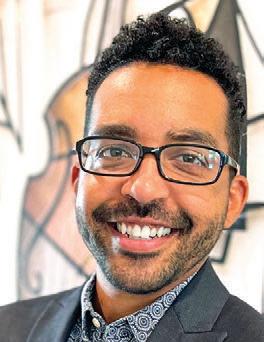
Previous Position: K–5 Music Specialist, Helotes ES, Northside ISD (2009–2011).
Education: Bachelor of Music, UTSA (2009); Orff Schulwerk Certification, Trinity University (2012); Master of Music Education, UTSA (2017); World Music Drumming II (2019); Principal Preparation Program, Lamar University (2019).
TMEA Offices and Positions Held: Region 29 Elementary Chair (2014–present); TMEA Clinic Presider; TMEA Mentor; Elementary Division Volunteer.
Other Offices and Positions Held: President of Central Texas Orff chapter (2016–2018); National Board Trustee, American OrffSchulwerk Association (2020–present).
Professional Affiliations: TMEA, TCDA, American OrffSchulwerk Association.
Honors/Accomplishments: Educator of the Year, Northside ISD (2011); Grammy Nominated Music Educator (2018); Above and Beyond Elementary Educator, Northside ISD (2018); Stellar Success in Elementary Music, Northside ISD (2018); Elementary Invited Ensemble, TMEA (2018).
Personal Information: Though I am not a Texas native, I have made it my home. Over the years I have worked to build a balance between my personal and professional sides. When not in the classroom I can be found working on a home project, going to CrossFit, listening to an audiobook, or enjoying a nice cup of coffee.
Statement: My dedication, passion, and advocacy for elementary music extends well beyond my service as a TMEA Region Chair. I have had the opportunity to serve in numerous leadership capacities, including clinician work for my school district and the greater San Antonio and Austin areas, the curriculum writing committee for Northside ISD, mentor to preservice and inservice teachers, past-president of the Central Texas Orff chapter, and as a board trustee of the American Orff-Schulwerk Association.
There is no doubt that TMEA is an incredible organization. It has been an invaluable resource to countless educators and I cannot imagine what my personal teaching career would be like without the network of teachers, professional development, and advocacy tools it has afforded me. It would be a true honor and privilege to bring my diverse leadership background to an organization that has helped guide and mold me into the educator I am today.
If elected, I would serve as a staunch advocate for the Elementary Division, building upon the work of my predecessors, and bringing forth suggestions and concerns of Texas elementary music educators. I adamantly believe that every child deserves a highquality elementary music education experience. I will work to recruit exceptional, diverse, and awe-inspiring clinicians to our annual convention to meet the needs and concerns of our membership.
0 21 Southwestern Musician January 2023
2023 TMEA Clinic/Convention
Important Deadlines Near
January 17
• Last day to cancel a reservation made through the TMEA housing system without being assessed a $50 penalty.
• Last day to make a reservation with most hotels via the TMEA housing system (while previously sold out, cancellations could open limited availability).
• Last day to modify a reservation made through the TMEA housing system. After that, contact the hotel directly (wait several days, as there is a delay in the hotels downloading their reservation data).
January 19
Last day to register online at the lowest rate! After this date, online registration continues, but at the higher rate. Go to www.tmea.org/register today!
January 19
If mailing a check with your registration fee, it must be postmarked by January 19 to be honored at the early convention fee. Purchase orders emailed to susand@tmea.org must be received by January 19 to be honored at the early registration fee.

President’s Concert
Create an Online Schedule
The online convention schedule will be available in January from www.tmea.org/2023schedule. Create an account online and then add events to your schedule to help maximize your time at the convention. When you download the TMEA convention app from your app store in February, log in using the same credentials to access that schedule you created in advance. In the mobile app, you can update that schedule, connect with attendees, and find exhibitors. Following the convention, look for an email from TMEA about creating your CPE record based on that schedule.
ATTEND THE BEST MUSIC
EDUCATORS CONVENTION!
8–11 • Henry B. González
•
February
Convention Center
San Antonio
The Singing Sergeants of the U.S. Air Force Band Wednesday, Feb. 8 • 8 p.m. • Lila Cockrell Theatre • Free! Go directly to Lila Cockrell Theatre for admission to the concert (no tickets).
SEE YOU IN SAN ANTONIO!
22 Southwestern Musician January 2023
AUSTIN: JUNE 5-8 Amy Pollard, Bassoon Professor at University of Georgia Andrew Parker, Oboe Professor at University of Texas
HOUSTON: JUNE 19-22 Rachel Frederickson, Bassoon Professor at University of Alabama Emily Tsai, Oboe Kennedy Center Orchestra
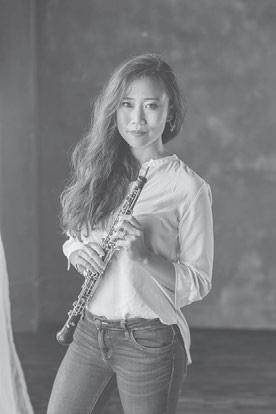
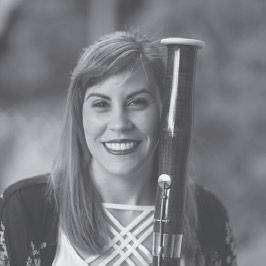
DALLAS: JULY 10-13 Leigh Munoz, Bassoon Professor at UMKC Euridice Alvarez, Oboe Professor at Baylor University
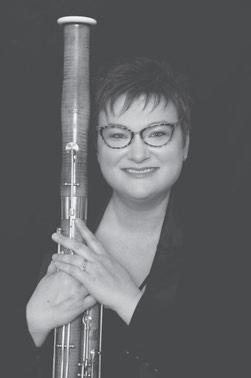
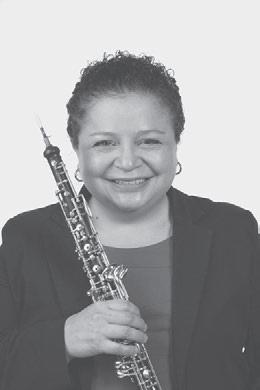




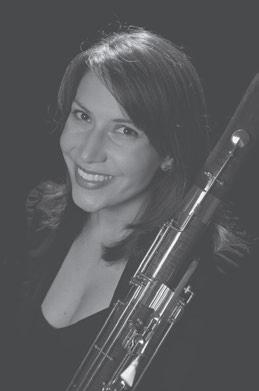
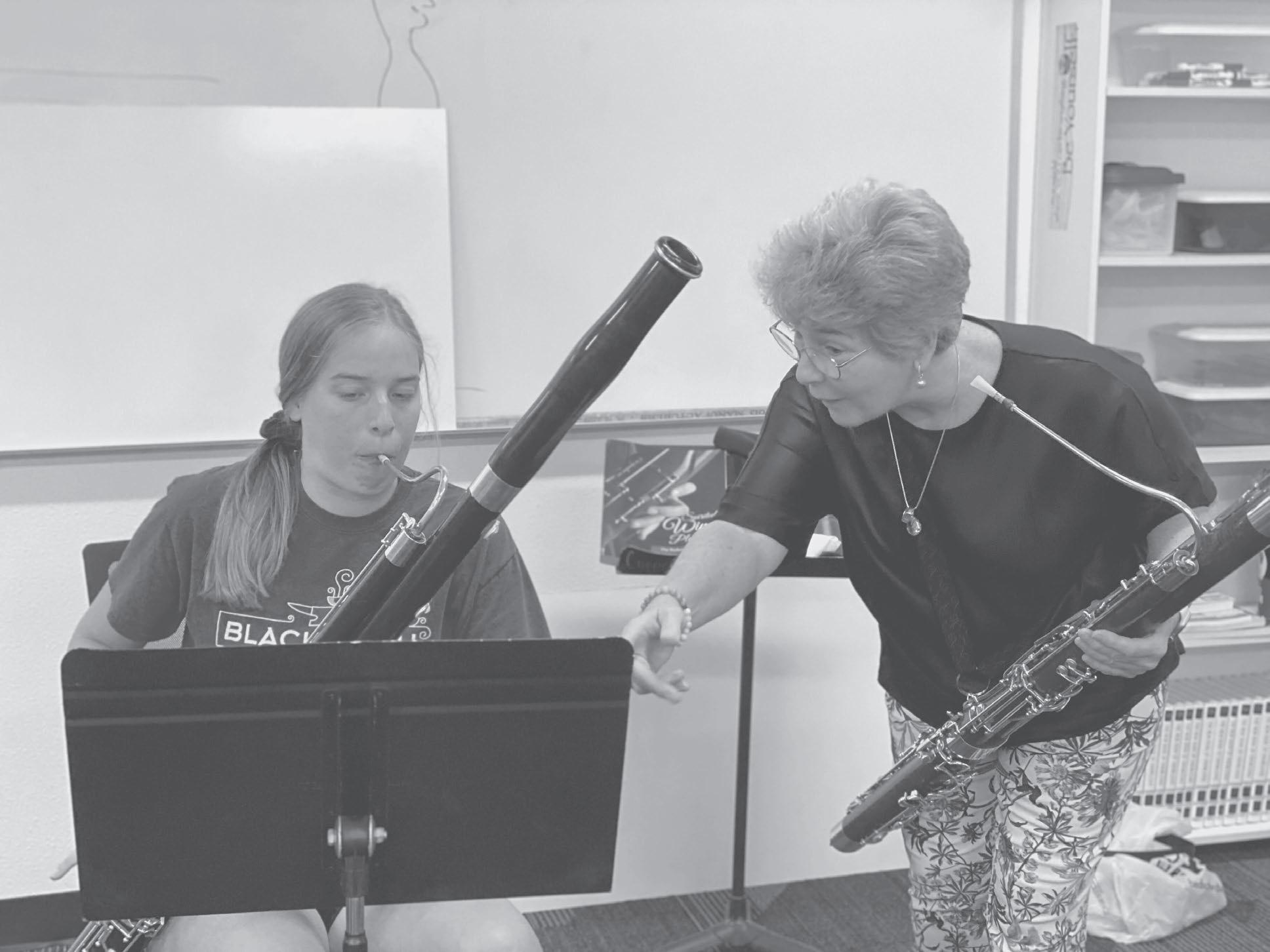

VIRGINIA: JULY 10-15 Ryan Romine, Bassoon Professor at Shenandoah University Stephen Key, Oboe Professor at Shenandoah University



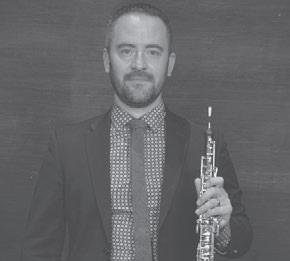
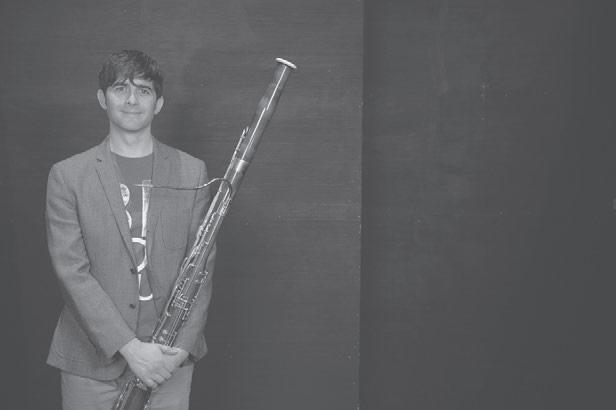
ADRIT ADRIT Summer Summer 2023 2023 ADVANCED ADVANCED BASSOON BASSOON & OBOE & OBOE WORKSHOPS WORKSHOPS HOUSTON, TX FOR MORE INFORMATION: 214-377-8278 kevin@bocalmajority.com www.bocalmajority.com DALLAS, TX AUSTIN, TX WINCHESTER, VA For advanced high school students Advanced reed-making seminars Masterclasses Connect with high-level professors By audition only - due March 1
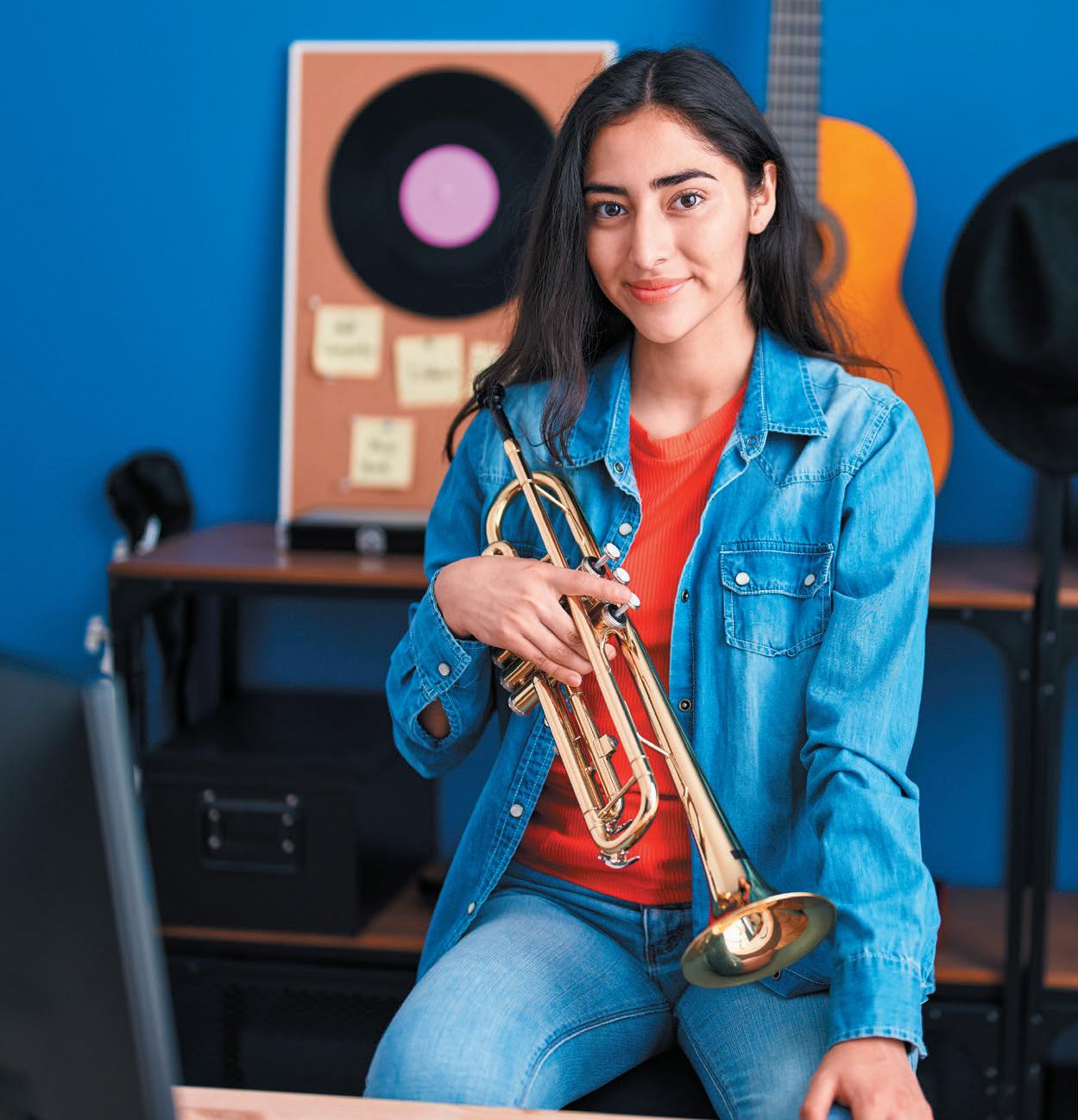

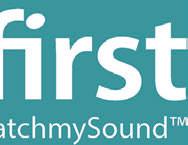
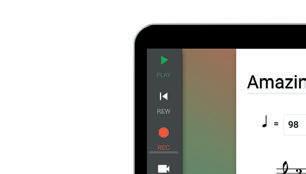
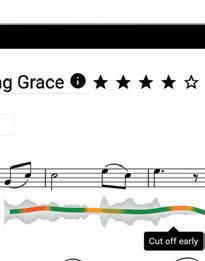

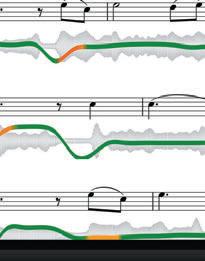

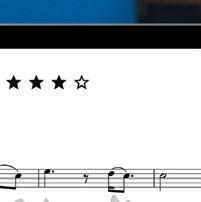



















Bandworks Publications • Boosey & Hawkes • C.L. Barnhouse Company • Excelcia Music Publishing G. Schirmer, Inc. • GIA Publications, Inc. • Grand Mesa Music Publishers • Grand Mesa Strings • John McAllister Music • Kendor Music Publishing • Neil A Kjos Music Company • PDF Band Music • Piquant Press • Queenwood Publications • RBC Publications • Randall • Standridge Music Publications • Ed Music Publications • Tempo Press • Wingert-Jones Publications • YourScore • Bandworks Publications •Boosey & Hawkes • C.L. Barnhouse Company • Excelcia Music Publishing • G. Schirmer, Inc. • GIA Publications, Inc. • Grand Mesa Music Publishers • Grand Mesa Strings • John McAllister Music Kendor Music Publishing • Neil A Kjos Music Company • PDF Band Music • Piquant Press • Queenwood Publications • RBC Publications • Randall • Standridge Music Publications • Ed Sueta Music Publications Tempo Press • Wingert-Jones Publications • YourScore• Bandworks Publications • Boosey & Hawkes Barnhouse Company • Excelcia Music Publishing • G. Schirmer, Inc. • GIA Publications, Inc. • Grand Mesa Music Publishers • Grand Mesa Strings • John McAllister Music • Kendor Music Publishing • Neil Kjos Music Company • PDF Band Music • Piquant Press • Queenwood Publications • RBC Publications Randall • Standridge Music Publications • Ed Sueta Music Publications • Tempo Press • Wingert-Jones Publications • YourScore • Bandworks Publications • Boosey & Hawkes • C.L. Barnhouse Company Excelcia Music Publishing • G. Schirmer, Inc. • GIA Publications, Inc. • Grand Mesa Music Publishers Grand Mesa Strings • Kendor Music Publishing • Neil A Kjos Music Company • PDF Band Music • Piquant Press • Queenwood Publications • RBC Publications • Randall • Standridge Music Publications • Ed usic Publications • Tempo Press • Wingert-Jones Publications • YourScore • Bandworks Publications tions • Boosey & Hawkes • C.L. Barnhouse Company • Excelcia Music Publishing • G. Schirmer, Inc •Grand Mesa Music Publishers • GIA Publications, Inc. • Grand Mesa Music Publishers • Grand Strings • GIA Publications, Inc. • Kendor Music Publishing • Neil A Kjos Music Company • PDF Band Music • Piquant Press • Queenwood Publications • RBC Publications • Randall • Standridge Music Publications • Ed Sueta Music Publications • Tempo Press • Wingert-Jones Publications • YourScore• Bandworks Publications • Boosey & Hawkes • C.L. Barnhouse Company • Excelcia Music Publishing G. Schirmer, Inc. • GIA Publications, Inc. • Grand Mesa Music Publishers • Grand Mesa Strings • John McAllister Music • Kendor Music Publishing • Neil A Kjos Music Company • PDF Band Music • Piquant Press • Queenwood Publications • RBC Publications • Randall • Standridge Music Publications • Sueta Music Publications • Tempo Press • Wingert-Jones Publications • YourScore • C.L. Barnhouse Company • Excelcia Music Publishing • G. Schirmer, Inc. • GIA Publications, Inc. • Grand Mesa Music Publishers • Grand Mesa Strings • John McAllister Music • Kendor Music Publishing • Neil A Kjos Music Company • PDF Band Music • Piquant Press • Queenwood Publications • RBC Publications • Randall Practice made perfect. Standridge Music Publications • Ed Sueta Music Publications • Tempo Press • Wingert-Jones Publications Try PracticeFirst FREE for 30 days practice rst.com Available exclusively from Find your favorite method books and repertoire in the newly-expanded PracticeFirst library.
TMEA Band Vice-President
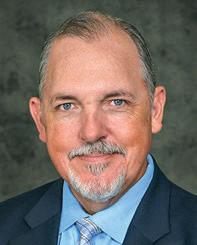 SHANE GOFORTH
SHANE GOFORTH
A Journey of Lifelong Learning
January—Renew your membership and register for the convention.
January—Make your TMEA convention hotel reservation.
January 7—Area Band and Vocal auditions.
January 17—Convention hotel cancelation deadline.
January 19 —TMEA convention early registration deadline.
February 8–11 —TMEA Clinic/Convention in San Antonio.
February 9, 5:15 p.m.—Band Division Business meeting at the convention.
February 10, 5:15 p.m.—TMEA Region meetings at the convention.
This fall, I have had the great fortune and privilege to be in the presence of many of my mentors—men and women who have freely poured their knowledge, experience, and love into my life at every opportunity. They have all played such pivotal roles in my development as a leader, a teacher, and a human being, and I am so grateful for their service and generosity. While I have enjoyed my charmed life as the world’s luckiest mentee, I have been doubly blessed to have been able to serve as a mentor to an awesome group of teachers and students. Watching them grow and flourish has simultaneously been humbling and immensely gratifying. I truly believe that the secret to being successful in either of the roles lies in maintaining the equilibrium of giving as a mentor and receiving as a mentee.
I don’t know who first stated the importance of being a lifelong learner, but the value of that concept on one’s journey in music education, or in any other endeavor for that matter, would be difficult to calculate. While we can discover or formulate novel concepts in isolation, most of what we learn comes from other people. Therefore, if we desire to fill our minds with the highest quality information, we need to surround ourselves with the highest-quality people. In the modern age, technology offers almost limitless access to experts in every field. On YouTube alone you can learn everything from how to repair your dishwasher to how to conduct the Hindemith Symphony. So, if the information is already out
I truly believe that in maintaining the equilibrium of giving as a mentor and receiving as a mentee, lies the secret to being successful in either of the roles.
MARK YOUR CALENDAR check www tmea org for updates 25 Southwestern Musician January 2023
there, why do we need a mentor? In a word, relationship
I really struggled in my first job at a small middle school in North Texas, and I knew I needed a lot of help. Dick Clardy was doing incredible work just down the road at The Colony HS, and I was lucky enough to end up standing behind him in a line at a TMEA convention. After finally mustering the courage, I introduced myself, explained that I had no idea what I was doing and had the world’s smallest budget, and asked him if there was any way that he might be able to come and clinic my band. Typical of Mr. Clardy, he responded that he didn’t need the money and wasn’t sure that he knew what he was doing either, but that he’d be glad to help. A few weeks later Mr. Clardy stood in front of my band as we prepared for UIL Concert and Sightreading. To say that he did incredible work with my group would be an understatement. It seemed like the band got a full division rating better with every change he made. I wrote down everything he said, and I was determined to use his techniques as a recipe for band director success. I taught like Mr. Clardy every day, yet we got only marginally better and were
still quite bad.
The problem was relationship, or rather the lack thereof. At that point, Mr. Clardy was simply a clinician, not yet my mentor. He didn’t really know me and was simply being the polite gentleman he is. Not having had time to develop a good relationship yet, he wasn’t free to itemize the real problems with the ensemble that ranged from poor tone quality and tuning issues to articulation and timing issues and beyond.
Our progress and our relationship were further delayed by my ego’s need for Mr. Clardy to think that I was good. The vain desire for approval motivated me to make constant excuses for myself and my students. Administration doesn’t support us. The students don’t have good instruments or private lessons. The list could go on but suffice it to say that every excuse I made entrenched me deeper into the thirddivision mire I was in and further away from progress toward my goals.
When I was finally able to get over myself, Mr. Clardy could actually talk with me about what was wrong and I was able to really listen. My progress after that point was exponential and the primary reason
for the growth was that I allowed myself to be mentored. My continued growth as a mentee over the last 26 years has been the most valuable (and enjoyable) element in my development as a music educator. I encourage you, no matter your age or level of experience or expertise, to continue to develop relationships with your mentors and work to become an ever-better mentee. For no matter where we are on our journey, we are not done yet.
My mother always said that it is better to give than to receive. While I have loved being taught and molded as a mentee, perhaps the only thing better is the joy I have found being a mentor. Having the opportunity to share the incredible knowledge that has been so freely given to me with my students and colleagues has been one of the most rewarding experiences of my career. I learned to be a mentor from my mentors. They modeled mentorship in many ways, but they all had core principles in common.
• Develop a relationship. The most important part of any mentor–mentee partnership is the relationship. Without developing a real relationship
This program has been in place for many years and is a win-win for the students in the all-state ensembles and YOU.
This is your opportunity to purchase quality, used only at the convention, percussion products at below school bid pricing.
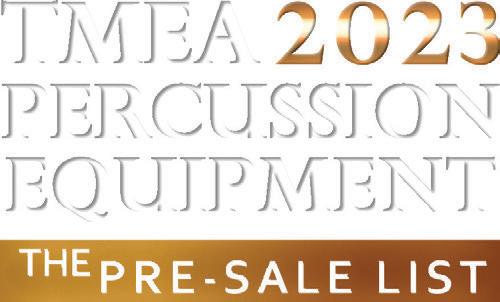
All items are reserved on a “first-comefirst-served” basis and FREE delivery will be made to your school after the convention.
 The Ludwig-Musser percussion products needed for All-State ensembles at TMEA 2023, has been selected and is ready for shipment to San Antonio.
The Ludwig-Musser percussion products needed for All-State ensembles at TMEA 2023, has been selected and is ready for shipment to San Antonio.
26 Southwestern Musician January 2023
This program is sponsored by the Conn-Selmer & Brook Mays / H&H Music Companies.


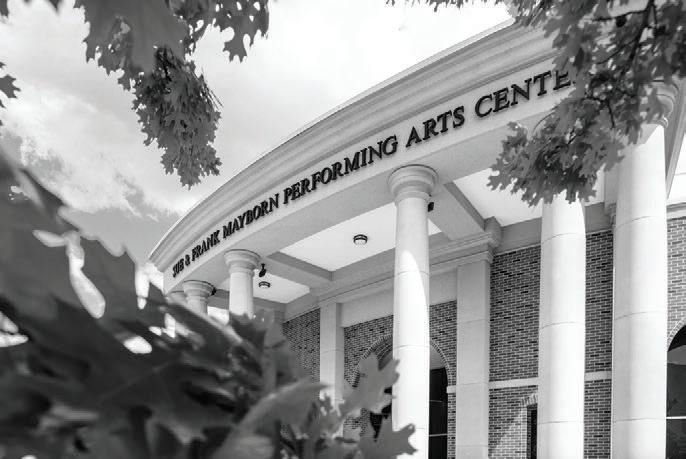

2023 auditions Music Scholarships Available up to FULL TUITION January 28 | February 25 April 1 | April 22 Programs in Church Music Music Education Music Business Worship Technology Performance STUDY MUSIC at For more information music@umhb.edu | umhb.edu/music
SUMMER 2023
Art of Band Conducting and Rehearsing Workshop
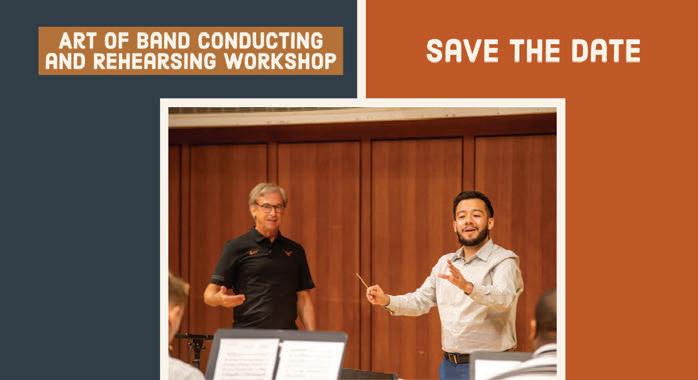
Sunday, June 11, 2023Thursday, June 15, 2023
FEATURED GUEST CLINICIANS:
Dr. Robert Carnochan
Director of Wind Ensemble Activities, Music Director/ Conductor of the Frost Wind Ensemble and Professor of Conducting at the Frost School of Music
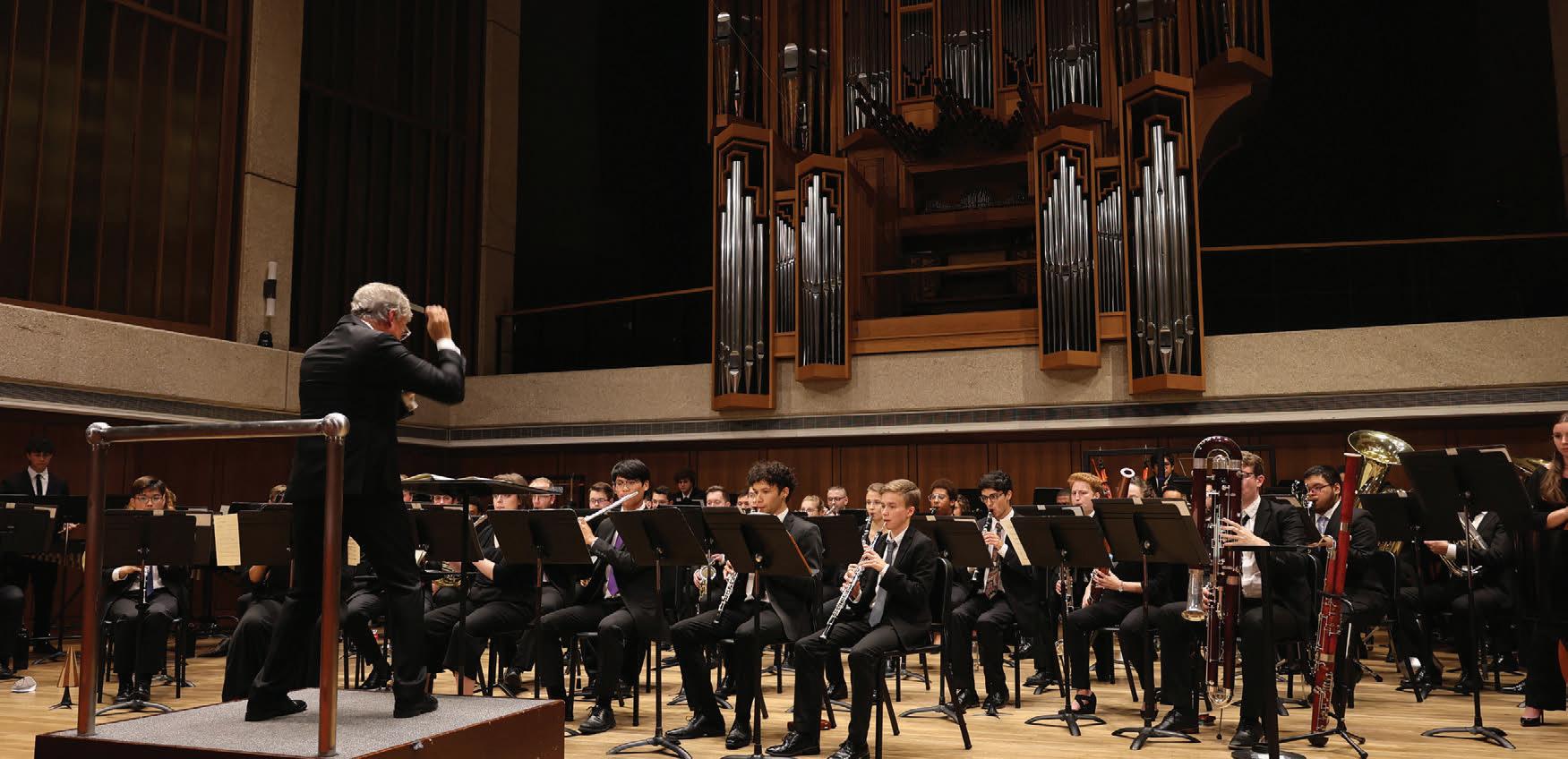
Professor Jerry Junkin
Division of Conducting and Ensembles
Vincent R. DiNino Chair for the Director of Bands University Distinguished Teaching Professor

Mr. Richard Floyd
Director Emeritus, University Interscholastic League
Registration opens January 17, 2023
$750 - Conducting Participants
$400 - Observers
TMEA C LI NIC/CONFE R ENCE 2023

Ryan Kelly
Changing the Climate: Mental Health in the Music Classroom Thursday, February 9 | 10:00 AM - 11:00 AM | CC 220
Weston Lewis
Use Your Teacher Voice! Forming Your Teaching Identity Thursday, February 9 | 11:30 AM - 12:30 PM | CC 205
Ogechi Ukazu
Austin Collective Brass | CC Bridge Hall Music Showcase Friday, February 10 | 9:30 AM - 10:00 AM
Tyler Ehrlich
Three Keys for an Artistic Performance of Band Repertoire Friday, February 10 | 4:00 PM - 5:00 PM | CC 217
It’s All About Culture: Building a Music Program Through Positive Standards and Expectations Saturday, February 11 | 11:00 AM - 12:00 PM | CC 214
Ogechi Ukazu
Time for Grad School? An Honest Talk About Leveling Up Saturday, February 11 | 11:00 AM - 12:00 PM | CC 210
JUST R ELE ASE D!
“Migration” is the newest album of the University of Texas Wind Ensemble under the direction of Professor Jerry Junkin. This recording session features Symphony No. 2: Migration by Adam Schoenberg, a spectacular performance by UT Associate Professor of Clarinet Jonathan Gunn on John Corigliano’s Concerto for Clarinet, Jennifer Jolley’s The Eyes of the World are Upon You, and Stephen Montague’s Intrada 1631. This recording project can be purchased on the Reference Recordings website and can also be found on major streaming platforms! Purchase today at https://referencerecordings.com/recording/migration/
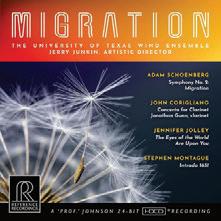
TEXASBANDS.ORG
with your mentee, any real teaching or development is going to be very difficult. My mentors have always been open about their families and other interests and worked hard to find subjects outside of our professional obligations that we could talk about.
• Make yourself available. Beyond the obvious need to make regular visits to their rehearsals, make sure to have multiple open channels of communication with your mentee. Don’t just reply to their messages and answer their phone calls, try to reach out to them and check in regularly. While I was writing this article, one of my mentors sent me a text wishing me luck at our marching contest and our exchange ended up in an incredibly productive conversation about programming. When possible, find time to share a meal or at least coffee. Just a little time spent together outside the rehearsal space can prove rewarding and productive.
• Be patient. I am so thankful that Mr. Clardy and my other mentors were able to look past my faults and ego and continue to work with me. Without their patience and understanding I am not sure where I would be. Whatever the speed of your mentee’s progress, remember that this is a process and one that is going to take time.
• Be honest. Try, in as tactful a manner as possible, to tell your mentee the

Attend the Band Division Business Meeting Thurs. Feb 9, 5:15 p.m. Hemisfair Ballroom 3 29 Southwestern Musician January 2023
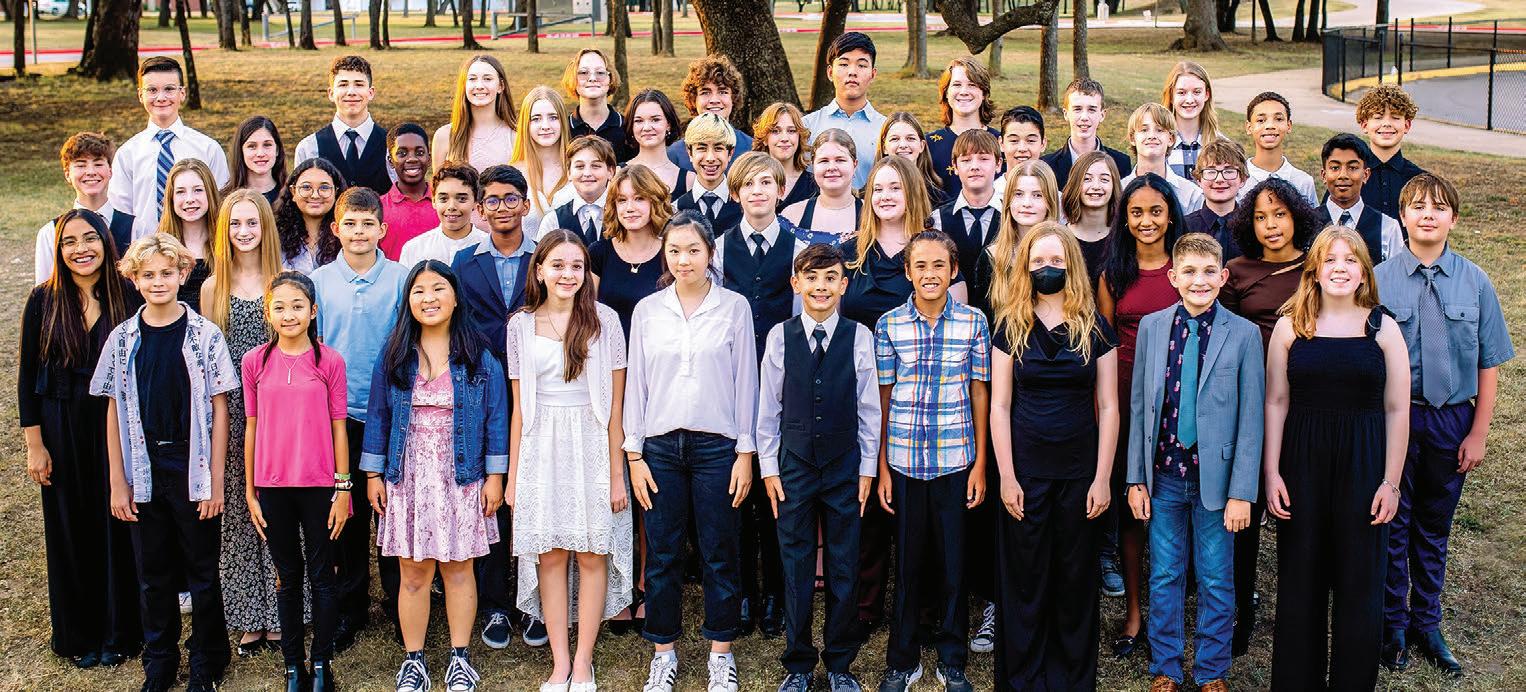
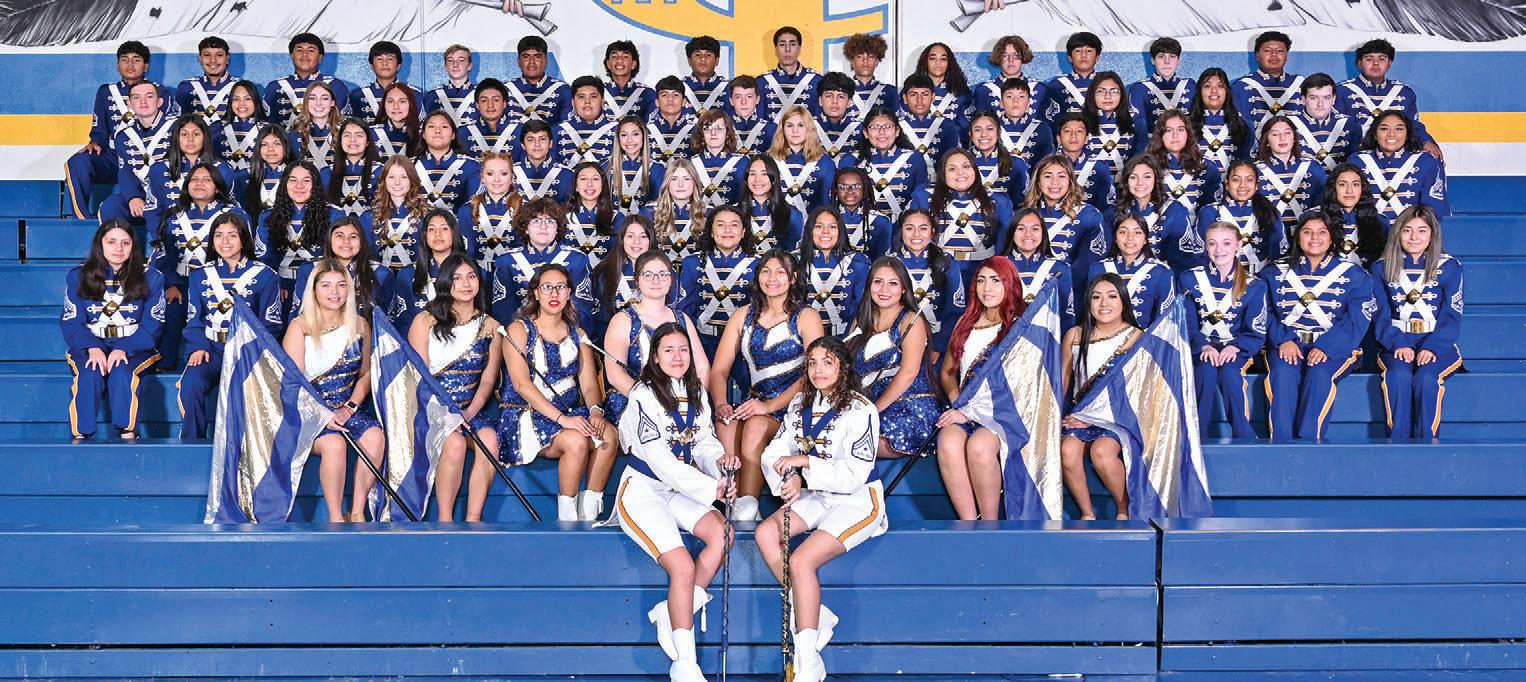
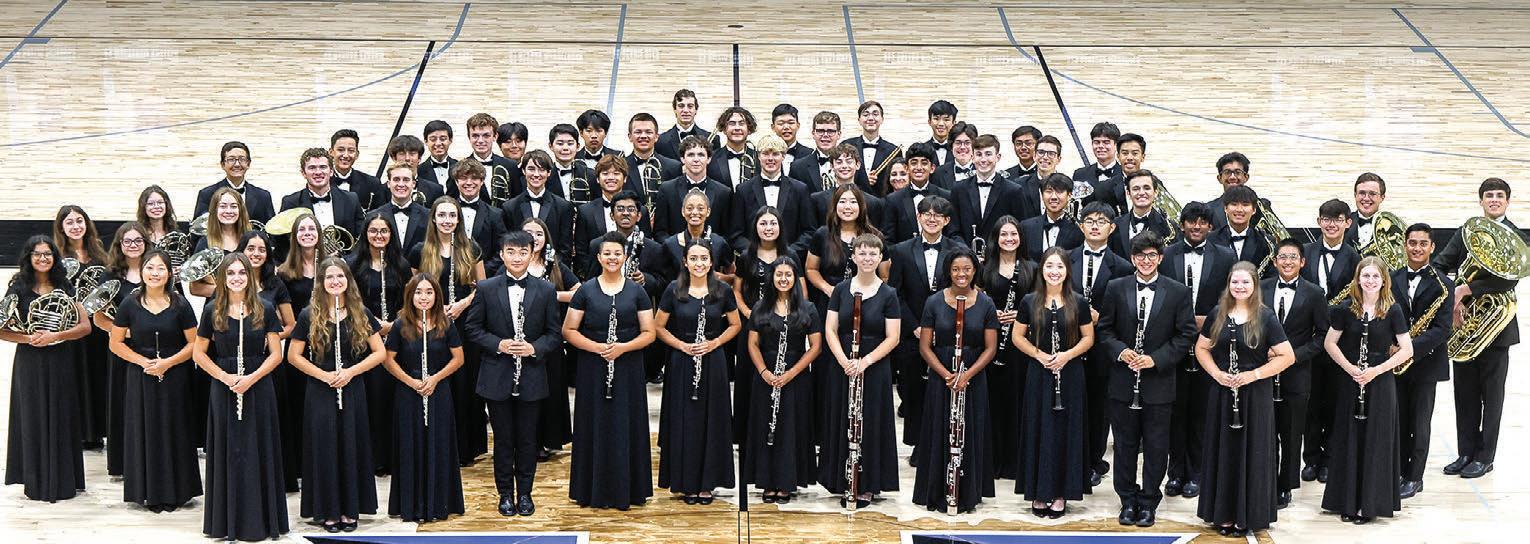 Wiley MS Wind Ensemble
Carlisle HS Band
Wiley MS Wind Ensemble
Carlisle HS Band
30 Southwestern Musician January 2023
Hebron HS Wind Symphony
truth. Of course, the level of directness available to you will be directly proportional to the level of relationship that you have developed.
• Ask questions. As much as I needed to hear the truth about my teaching, I needed to think about why I had decided to teach that way. A little Socratic questioning can reveal thought patterns and misconceptions that need to be addressed and can have real impact on the mentee’s teaching and development.
Whether we are in year 2 or 20 of our career, operating as both a mentor and a mentee is crucial to our continued growth and success as music educators. No matter our age or level of experience, there are always those from whom we can both teach and learn. The relationships we build not only make us better teachers and people, but they also provide us with the encouragement we need to stay in the classroom and give our students the awesome experiences they deserve every day. If you haven’t already, I encourage you to work on developing relationships as both a mentor and mentee today. I know they will provide you with deeper understanding and meaning as you pursue our great profession.
Clinic/Convention Update
Only a few days remain until the early registration deadline of January 19. If you aren’t registered for the convention yet, take advantage of the discounted rate by doing so now! The online searchable schedule will be available in early January at www.tmea.org/convention/schedules. From this online schedule, you can create an account that you’ll also ultimately use when you download the convention app. With an account, you can start creating your schedule that you’ll access from your device with the convention mobile app. For the 2023 convention, you’ll download our convention app from your app store, so look for notifications from TMEA about its availability.
As the convention nears, I am proud to introduce more of our ensembles that will perform during the convention. This month, I’m highlighting our Honor Bands. These directors and their students have demonstrated a stunning level of musicianship, and I’m sure that while you read this, they are hard at work preparing for their TMEA convention performances.
I hope you are as excited as I am about attending what I’m sure will be awesome concerts by our Honor Band winners:
Class 2C Honor Band Wiley MS Wind Ensemble
Wiley Middle School, established in 2006 as a part of the Leander ISD, is northwest of Austin in the heart of Leander. The school is a diverse campus servicing just over 750 students. Under the leadership of Principal Ebony Parks, the Wiley Band program has an enrollment of 324 students offering homogeneous beginner classes and three concert bands. While the Wiley Band is committed to providing a robust music education experience for all students, its top priority is cultivating a culture of positivity, integrity, resiliency, and grit.
The Wiley Wind Ensemble is the premier performance group of the Wiley Band Program and has received countless UIL sweepstakes awards since its inception. The Wind Ensemble was invited to perform at the Western International Band Clinic in 2012 and has been named a National Winner in the Mark of Excellence National Wind Band Honors project numerous times, most recently in 2022.
Director J. Taylor Williamson is a 2014 graduate of Baylor University and began teaching at Wiley MS in 2018. Prior to Leander ISD, Williamson was Director of Bands at both Richardson North JH and Forest Meadow JH in Richardson ISD. He is a proud graduate of Garrison HS, a small 2A district located in the piney woods of East Texas.
Class 1A/2A Honor Band Carlisle HS Band
Carlisle High School Band is proud to return to the TMEA Clinic/Convention. Carlisle is in east Texas about 30 minutes southeast of Tyler. There are 80 members in this high school ensemble. Directors of the Indian Band are Chris Clifton, Gabrielle Carrillo, Isaac Fergerson, and the Drum Majors are Karolyne Estrada and Melissa Alvarez.
The high school band program has been to the Texas UIL State Military Marching Contest in 2020 and 2021, placing first in the 2A classification. They also have been to the UIL Class 2A State Marching Contest in San Antonio, placing third in 2015. The Carlisle Band was previously named the 1A/2A TMEA Honor Band in
2001, 2005, 2009, 2013, 2019.
Class 6A Honor Band Hebron HS Wind Symphony
The Hebron High School Wind Symphony (Lewisville ISD) is honored to perform as a part of the 2023 TMEA Clinic/Convention. Students engage in music-making through participation in the TMEA All-Region process, chamber music, marching band, and concert ensembles. Program goals emphasize opportunities for musical excellence, individual exploration, and personal leadership experiences. The Hebron Band was recognized by the Texas Bandmasters Association with the 2021 Exemplary High School Band award.
The Hebron Wind Symphony was recognized as the TMEA Honor Band and performed for the 2011 TMEA Clinic/ Convention. The Wind Symphony also performed at the 64th and 70th Annual Midwest Band and Orchestra Clinics respectively. In 2018, the Wind Symphony performed for the 84th National Convention of the American Bandmasters Association. The ensemble was awarded the Sudler Flag of Honor from the John Philip Sousa Foundation in 2012. The Wind Symphony is under the direction of Andrew Sealy. 0
BAND DIVISION
EVENT LOCATIONS
When you create your convention schedule, take note of the clinic locations (especially if you’ve attended for several years).
Clinics hosted by the Band Division will be held on the south side of the convention center in second-floor rooms CC 214 and CC 217 and in the third-floor Hemisfair Ballroom 3. Our Invited Jazz and Percussion Ensembles will perform in the Hemisfair Ballroom 1–2.
As we’ve mentioned before, be sure to examine clinics hosted by other divisions as many will support your work (especially those listed as General Membership, College, and Technology).
31
Southwestern Musician January 2023
NOTE: Class 4A, Argyle HS Wind Ensemble, will be featured in the February 2023 issue.


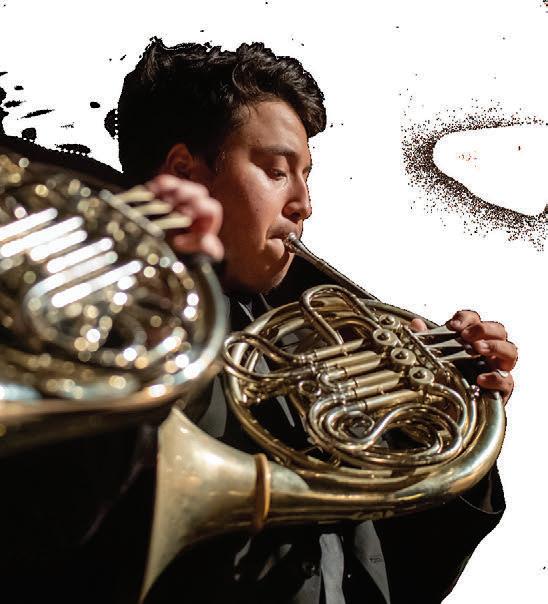
A Member of the Texas A&M University System 2023 Admission & Scholarship Audition Dates: January audition dates are available upon request. Auditions are required of all entering and transferring music majors and minors. February 18 February 25 (Instrumental Majors only) March 4 (Vocal Majors only) March 11 April 1 (Instrumental Non-music Majors only) DEPARTMENT OF MUSIC An All-Steinway School with Spirio Designation OFFERING BACHELOR’S AND MASTER’S DEGREES IN MUSIC EMPHASIZING MUSIC EDUCATION OR PERFORMANCE PERFORMANCE PASSION PRIDE @TAMUCMusic • @TAMUCBands • @TAMUCChoirs tamuc.edu/music • 903-886-5303
How to Listen & What to Say Effective Rehearsal Strategies
By Phillip Clements
The ability to hear performance issues and convert the errors you hear into efficient, clear solutions is the basis of effective rehearsal techniques. In rehearsal, we often spend our time reacting when we hear an error and spend even more time attempting to solve it. If instead we would listen proactively, we could experience more effective and efficient rehearsals. We can accomplish this through focused score preparation, a defined rehearsal process, and advance preparation on how we will listen and what we should say.
Developing an aural image of a piece is critical. We develop that image through detailed study and preparation, ensuring our rehearsal focus is on delivering the musical intent of the composer. For a deeper dive on my thoughts about listening and score study, please read more at www.tmea.org/listen-study. What I offer here starts from the place where a director has completed that focused study and is ready to implement targeted strategies for improving student listening, communication, long-term retention, and understanding of musical concepts.
Direct and target the students’ listening: Students must learn to listen the same way you do and for the same things (tone, pulse, intonation, style, balance, etc.). It is important to remember that they can’t hear what you hear from podium. Help them listen for and understand the following:
•Pulse givers (voices primarily responsible for pulse)
•Pitch givers (voices with the root of the chord or those playing their same pitch)
•Their role in the music (melody, bass, accompaniment, counter-melody)
•Blend and balance priorities (within the musical layers)
•Phrasing, contour, and direction of line
•Entrances into sound and silence
•Specifics of style
Utilize layering in rehearsals: We must develop a clear understanding of the layers of the music in any given section of a piece to effectively hear errors and to create the musical outcome we desire. Even the most complex music can usually be distilled into 4–5 layers through detailed score study. A productive rehearsal includes a clear plan to combine the layers in the most efficient and effective manner to promote student listening and understanding. We can use the following processes or variations of these to separate and combine the layers within both slow and faster music.
Layering of Slow Music
•Start with the melody and craft the musical line of melody while setting the dynamic contour.
•Combine the melody with the bass voice and adjust dynamics as needed to protect the melodic dynamic (this also allows for students to hear vertical intonation). The bass voice may follow the dynamic contour of the melody but use a less extreme contour.
•Listen to the harmonic layers or counter-lines alone, adjusting the dynamic contour to protect the melody and balance the harmony. Then combine with the bass voice for dynamic adjustment to allow those students to hear vertical intonation.
•Combine harmonic or counter-lines with the melody to ensure dynamic balancing.
•Combine all layers (adjust dynamics, balance, and intonation as needed) and repeat.
Layering of Fast Music
•Start with the melody and craft the musical line of melody while setting the dynamic contour. Utilize a metronome as the pulse giver. Avoid starting with the pulse layer and adding
33 Southwestern Musician January 2023
layers upward to the melody. This could cause the melody to overplay to be heard, and you will inadvertently lose your lower dynamic spectrum.
• Combine the melody with pulsegivers. This allows for melody players to hear pulse and to maintain overall dynamic.
• Listen to the harmonic layers or counter-lines alone, adjusting the dynamic contour to protect the melody and balance the harmony. Use the metronome for pulse.
• Combine harmonic or counter-lines with pulse-givers to align pulse and allow for dynamic adjustments.
• Combine all (adjust dynamics, balance, and intonation as needed) and repeat.
Pace rehearsals correctly to engage student listening: It is important to monitor the effectiveness of all rehearsals. Ask yourself the following about your rehearsal: What is really transpiring? Are the students engaged? If not, do you have alternate plans? Is the communication effective? Is the pace of the rehearsal working? I suggest trying the following strate-
gies to help with rehearsal pacing:
• Engage the students through questioning (especially directed listening).
• Alter ensemble drills or the rehearsal seating to avoid the mundane.
• Find the most efficient, clearest way to say something. Be succinct even when teaching a concept (less talk—more rock!).
• Use nonverbal gestures (conducting) to demonstrate and communicate your point.
• Prepare multiple ways to make your point (analogies are great!).
• Use sectionals rather than full rehearsals to solve isolated issues.
• Keep everyone active in the rehearsal. Engage students who aren’t playing with specific listening instructions.
Delivering Solutions
Turn the errors (wrong) into solutions (right): When we hear an error, our first instinct is to tell the students what they did wrong. It’s important to remember that the first thing we say is what often has the most
significant impression. We must convert the errors we hear into positive solutions before speaking. It takes practice to do this, but changing this one approach in your rehearsal can make a huge difference in the tone of the rehearsal. For example, rather than saying: “Trumpets, you entered late at measure nine,” perhaps we phrase it as: “Trumpets, listen to the snare drum as you prepare for your entrance at measure nine so you enter in time.” By giving them the intended goal along with a specific solution we can set a positive image in their minds. Remember, students prefer being told what to do rather than what not to do.
Use Who, Where, What, How, and Why as you give instructions: For clarity, utilize the following order when addressing students and imparting information and corrections:
• Who: Players or instrument
• Where: Rehearsal letter or measure number
• What: What you want them to do (positive outcome)
• How: How should they accomplish it
• Why: Why this is important
Rather than saying “Trombones don’t crescendo so much at measure 58,” perhaps instead say “Trombones, at measure 56, please delay your crescendo to measure 59 and crescendo only to mezzo forte to protect the melody in the oboe solo.” In one sentence, you will have covered all five areas. Practice this outside rehearsal until it becomes automatic.
Focus on the why: The why is what gives our instructions meaning. It is equally important that we teach the relevant information about the piece and the composer while we teach the performance aspects of the music. Do background research and share what you find with the students or have them do the research themselves. Explain the why early in the process and throughout the rehearsals by continuing to relate the solutions to the musical reasons.
Ask questions of students to promote comprehension. Note that these are the same questions we must ask ourselves when studying the music. You will find that most answers relate to a feeling that the composer is trying to elicit. Sample questions include:
• Why did the composer choose that instrument here?
Instruments Accessories Rental Repair 1849 University Ave. Berkeley, Ca 94703 800-322-6263 510-845-7178 www.forrestsmusic.com Your one stop shop for all things double reed since 1944 We must convert the errors we hear into positive solutions before speaking. It takes practice to do this, but changing this one approach in your rehearsal can make a huge difference in the tone of the rehearsal. 34 Southwestern Musician January 2023
TWU is proud to announce our new Zero Tuition Guarantee. Visit twu.edu/zero for more information, and make sure to submit your FAFSA by March 1, 2023.


twu.edu/music 940-898-2500
SCHOLARSHIP AUDITIONS
SCHOOL OF MUSIC DEPARTMENT HEADS
Douglas R. Boyer Director, School of Music and Director of Choral Activities dboyer@tlu.edu 830-372-6869 or 800-771-8521
Eric Daub Director of Piano Studies edaub@tlu.edu
Liliana Guerrero Director of Vocal Studies lguerrero@tlu.edu
Richard Herrera Interim Director of Bands riherrera@tlu.edu
Eliza Jeffords Director of Strings ejeffords@tlu.edu
FACULTY
Adam Bedell Instructor, Percussion
Carol Brittin Chambers Composer in Residence & Composition
William Hayter
Asst. Professor, Clarinet & Music Education

Sean Holmes Asst. Professor, Horn & Music History
Hilary Janysek
Asst. Professor, Flute & Music History
Michael Keplinger Instructor, Guitar
Elizabeth Lee
Asst. Professor, Cello

Ingram Lee, IV Instructor, Trombone & Euphonium Deborah Mayes Choral Accompanist
Scott McDonald
Instructor, Saxophone, Jazz Band & Music Education
Carla McElhaney
Asst. Professor, General Music David Milburn
Instructor, Double Bass
Angela Moretti Instructor, Bassoon
Nicole Narboni
Asst. Professor, Piano Daniel Orban Instructor, Trumpet Sung-Eun Park
Asst. Professor, Collaborative Pianist
Keith Robinson
Instructor, Tuba & Music Education
Jill Rodriguez Instructor, General Music
Eric Siu
Asst. Professor, Violin Yu-Hsin Teng
Asst. Professor, Collaborative Pianist
Shareen Vader Instructor, Piano & Music Education
Mika Valenzuela Instructor, Oboe
Yvonne Vasquez Instructor, Mariachi
TEXAS LUTHERAN UNIVERSITY SCHOOL OF MUSIC
BACHELOR OF MUSIC IN ALL-LEVEL MUSIC EDUCATION BACHELOR OF MUSIC IN PERFORMANCE BACHELOR OF ARTS IN MUSIC Scholarships are available for both music and non-music majors. These awards are intended to provide recognition for scholarship and talent in the study of music. SCHOLARSHIP AUDITION DATES: Saturday, January 21, 2023 | 1-3 p.m. Friday, February 17, 2023 | 1-3 p.m. Saturday, March 25, 2023 | 1-3 p.m. Saturday, April 15, 2023 | 1 - 3 p.m. Individual audition dates may be requested if necessary.
www.tlu.edu/music For specific qualifications for each award, visit www.tlu.edu/music-scholarships.
• Why does the harmony become thicker at letter A?
• Why is it important to release on beat two?
• Why should the trombones be heard above everyone at measure 26?
• Why do we need to take more time with the end of the phrase?
• Why is the horn sound more important than the saxophones in this passage?
Question students clearly: While it is great to ask questions, we often ask them and get no answer or the wrong one. This can happen because we asked the question in an incorrect format or used inefficient timing. A common mistake is asking questions after a passage has been played. By prompting students in advance, we can increase student listening and evaluation: “Let’s play from letter A to B; I want you to listen for who has the melody in this section.” Another issue is posing questions that are too vague. Instead of “What do you think is happening in the music here?” ask more targeted questions like “Is the harmony getting more or less dense here?” or “Why do you think the composer is choosing to add a ritardando here?”
By asking thoughtful questions proactively, we can help students understand musical relationships, why the composer crafted something a specific way, and how they should adjust as an ensemble member.
Teach with Specifics (The What and the How)
It is important to be specific in our comments when addressing an error. This is the what and the how of our process noted above. We must offer clear solutions to remedy the error and be ready to offer an alternate solution if needed. For example, discuss specific articulations such as T and D rather than saying harder or softer, and offer specific dynamics such as forte or forte plus rather than saying louder or softer. Guide students to listen to specific instruments when directing their listening. For example, say: Listen to third trumpet to find the pitch of the concert C before you enter rather than simply saying listen down. Finally, be sure they write all the information in their parts to ensure retention.
Explore the use and value of analogies: Analogies can be powerful tools for ensuring deeper understanding and lasting
as they relate the unknown to the known. This relationship is at the heart of all great teaching. For example, instead of asking for notes to be shorter and lighter, say: “Flutes, please make these staccato eighth notes sound more like small, delicate rain drops.” Of course, the best analogies both explain and inspire: “This decrescendo must be performed so slowly, like a sunset at the end of a day you never want to
I hope that putting some of these strategies into practice will help you communicate more clearly and efficiently, resulting in a more productive and enjoyable experience for both you and your students. 0
Phillip Clements is the Director of Bands and Instrumental Activities at Texas A&M UniversityCommerce.
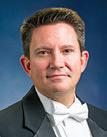
W Fobes Clarinet and Saxophone mouthpieces Responsive, Reed friendly, Reasonably priced! I am very pleased to return to the TMEA conference after a 2-year hiatus due to COVID. BOOTH #753 As usual, I will have a limited amount FREE Debut mouthpieces to give away to any TMEA member teachers. We will also have our 10K clarinet and bass clarinet mouthpieces and a variety of clarinet barrels for sale at 10% off! www.clarkwfobes.com We will be running some online specials as well during the week of the TMEA convention! Use code TMEA2023 for 10% discount on any item over $175 with FREE shipping! Debut NOVA San Francisco 10K LEUTHNER ISHIMORI PILGERSTORFER
Clark
comprehension
end.”
37 Southwestern Musician January 2023
When students build rapid response to music theory concepts, their sight reading and understanding go through the roof –and so do rehearsals! Level the playing field and accelerate your performance programs integrating Breezin’ Thru Theory, while keeping things fun. And, it frees up valuable class and marking time, so you can do what you love most – getting students excited about performing!







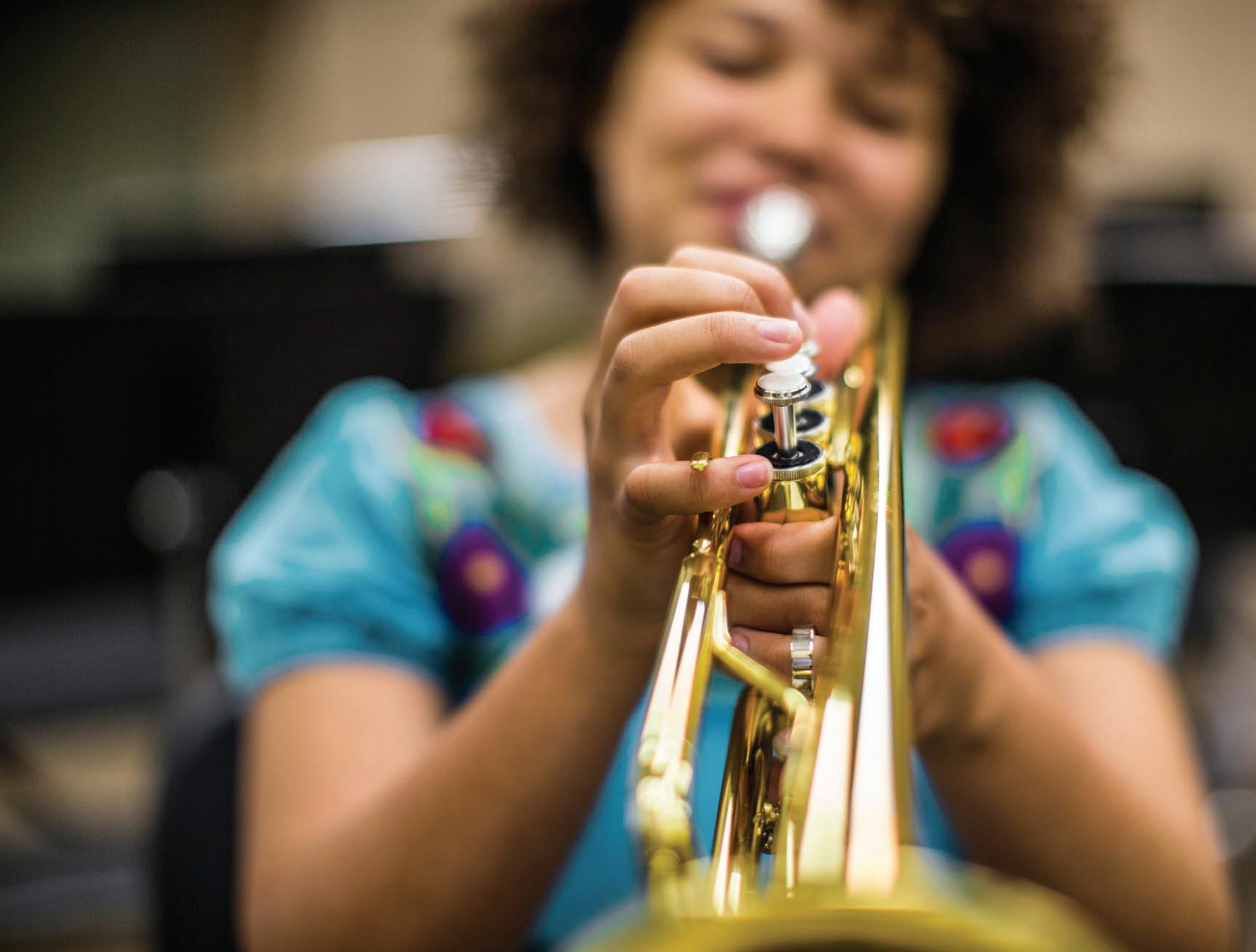
Grades 5-12
Grow Your Program! Fun for Kids, Easy for Teachers! BreezinThruTheory.com 1-855-265-3805 info@breezinthrutheory.com
The Texas textbook adoption funds that helped furnish many instructional materials and licenses for music is ending June 2023. The next funding is expected in 2027. With Breezin’ Thru’s special pricing promotion, you can bridge the 3-year funding gap. And, with the complete curriculum, you’ll quickly close learning gaps at the same time. Save money while students quickly build mastery as well as self-confidence!
Special 3-year pricing!
never been a better time to start Breezin’ Thru. Contact Us Now for a Quote or Demo! 1-855-265-3805 or info@breezinthrutheory.com
There’s
See Us at the 2023 TMEA
Hey Texas!
Convention
TMEA Orchestra Vice-President
 ANN G. SMITH
ANN G. SMITH
Navigating This Stressful Season
MARK YOUR CALENDAR check www.tmea .org for updates
January—Renew your membership and register for the convention.
As you receive this issue of Southwestern Musician, we are entering the most stressful time of the school year, with impending UIL Concert and Sightreading Evaluations ahead of us. I cannot count the number of times I have interacted with directors who were experiencing high levels of stress and anxiety in this evaluation season. When I encounter my stressedout colleagues, I often ask myself whether all this is a necessary part of our job? The answer is no. These heightened levels of anxiety and stress are not a necessary part of our job, and we shouldn’t be spending the months of January, February, and even March in this negative state. Not only is it detrimental to us but it also has a negative impact on our students and ultimately makes the journey to our UIL performance more difficult than it should be. So how do we better manage our response to the preparations for UIL Concert and Sightreading Evaluation? There are several things to keep in mind during what can be a difficult season.
As program directors, we often define our program’s success through earning UIL Sweepstakes awards. We see program biographies that tout sequential years of earning these awards, and it’s often a topic of recruiting
January—Make your TMEA convention hotel reservation.
January 13—All-State string seating audition excerpts released online.
January 16–18 —Directors record/upload All-State string seating auditions.
January 17—Convention hotel cancelation deadline.
January 19 —TMEA convention early registration deadline.
January 21—All-State string seating auditions adjudicated.
February 8–11 —TMEA Clinic/Convention in San Antonio.
February 9, 5:15 p.m.—Orchestra Division Business meeting at the convention.
February 10, 5:15 p.m.—TMEA Region meetings at the convention.
As we approach UIL season we need to be prepared, both for rehearsals and for our response to the stress brought on by this time of year.
40 Southwestern Musician January 2023
conversations. I remember a time when I was concerned for my job security if each of the ensembles I led didn’t get the coveted Sweepstakes. I now realize that was an irrational thought. The first action we need to take to keep the stress in check is to be realistic about what the UIL rating means. It should reflect our high-quality daily teaching. It should reflect strong teaching technique and scope and sequence. And our UIL rating should reflect growth and progress. Are our programs and students growing and progressing through instruction and practice?
As we approach UIL season we need to be prepared, both for rehearsals and our response to the stress brought on by this time of year. In preparation for the rehearsal, select your music early. Study the scores and create a rehearsal plan for the UIL season. If it is an eight-week rehearsal cycle or more, make an overarching plan. This plan should include a plan for holidays, testing, and any other missed rehearsals. Plan activities for these days that will keep your students practicing for the days you don’t see them. Evaluate your plan regularly and adjust accordingly. Creating a plan will help you have greater control of the process.
As you create your plan for the UIL cycle, schedule days for guest clinicians. We all know the impact a good quality clinician can have on our group even outside of the UIL season. The greatest impact a clinician can have is allowing us to step away from the ensemble and hear it from a different perspective. Outside clinicians will offer your students a varied perspective as well. It always seems to be the case that a clinician will say the same thing we have but in a different way, and it just clicks with our students. Another benefit is that students will want to perform well for a guest, thus creating an atmosphere similar to the UIL performance. This gives them an early opportunity to practice their performance.
The last idea to help with the stress of the UIL season is to trust your students. Trust that they will execute their performance in a way that reflects what you taught. Ultimately, your students want to be successful, and if you provide them with the correct tools, they will be set up for that success.
You are the professional. You know which teaching techniques work and the skills students need for progress and suc-
cess in their ensemble. Keep searching out the knowledge and skills that will benefit your students. The 2023 TMEA Clinic/ Convention includes many opportunities to learn and grow as a teacher and director. A tremendous amount of thought and preparation has gone into the clinics and concerts that will be offered, and I hope you will take advantage of convention to strengthen your teaching during every season of the year.
TMEA Clinic/Convention Update
It is hard to believe that the school year is halfway over and our convention is just around the corner. I hope you were able to secure a hotel reservation and are registered to attend.
In early January, the online searchable schedule will be available at www.tmea.org/2023schedule. From this online schedule, you can create an account that you’ll use when you download the convention app to your mobile device. With w
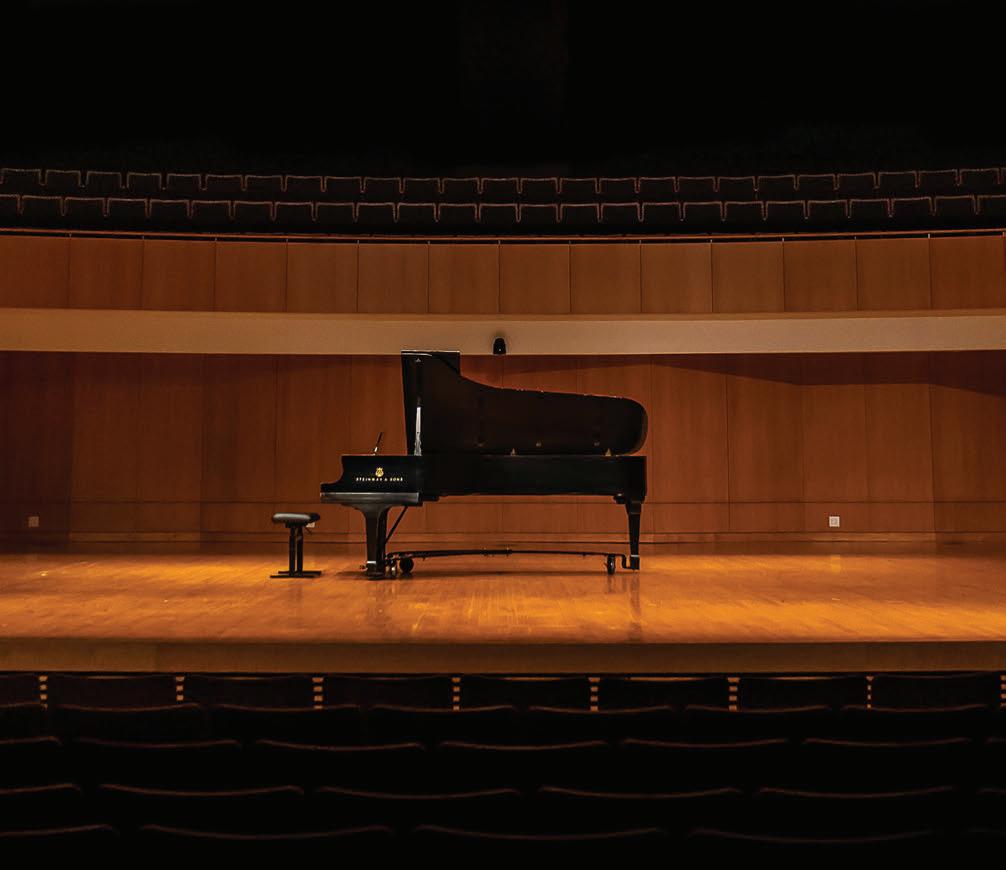
FOR MORE INFORMATION visit shsu.edu/music 936.294.1360 1751 Ave. I, Suite 225 Huntsville, TX 77340 SAM HOUSTON STATE UNIVERSITY | COLLEGE OF ARTS & MEDIA SCHOOL OF MUSIC NOVEMBER 19 Voice and All Instruments Excluding Guitar JANUARY 28 Voice and All Instruments Excluding Percussion & Guitar FEBRUARY 4 Voice and All Instruments Excluding Percussion FEBRUARY 25 Voice and All Instruments Excluding Guitar MARCH 4 Voice and All Instruments Excluding Guitar APRIL 3 Voice and Percussion Only Non-scholarship 2022-2023 AUDITION DATES 41 Southwestern Musician January 2023
HS String Honor Orchestra Results
find times of open rehearsals included in the schedule). They have amazing repertoire, and there is a lot to be learned from observing our three amazing conductors.
Of course, performances by our Invited and Honor Ensembles are a must-add to your schedule. This month, I’m featuring information about our invited university orchestra and our High School String Honor Orchestra. Our other ensembles were featured in the November issue.
University of Texas at Arlington Symphony Orchestra
that account, you can begin creating your schedule online and then access it from the convention app while in San Antonio. For the 2023 convention, you’ll download our convention app directly from your app store, so look for notifications from TMEA about its availability.
As you develop your schedule consider the many clinic opportunities available to you and be sure to include in your schedule clinics presented by the Orchestra Division Featured Clinician, Robert Gillespie. I am
excited that we once again have him presenting at convention. He will be presenting clinics on maximizing rehearsal time, motivating our students, developing leadership skills for our program, and diagnosing some of the most common bowing problems.
The clinics presented at our convention include a wide variety of topics by our colleagues from across the state. Schedule into your convention plan time to attend the All-State Ensemble rehearsals (you will
Conducted by Clifton Evans, the University of Texas at Arlington Orchestras present a season of concerts consisting of major works from the standard orchestral repertoire and new music commissioned by the ensemble, as well as operas, musicals, and operettas in collaboration with the Maverick Theatre Company. The flagship ensemble is the University of Texas at Arlington Symphony Orchestra. Evans and the orchestra have collaborated on five world premieres during his tenure and have just commissioned a new work by Quinn Mason that will be presented during their TMEA Clinic/Convention performance.
ORCHESTRA
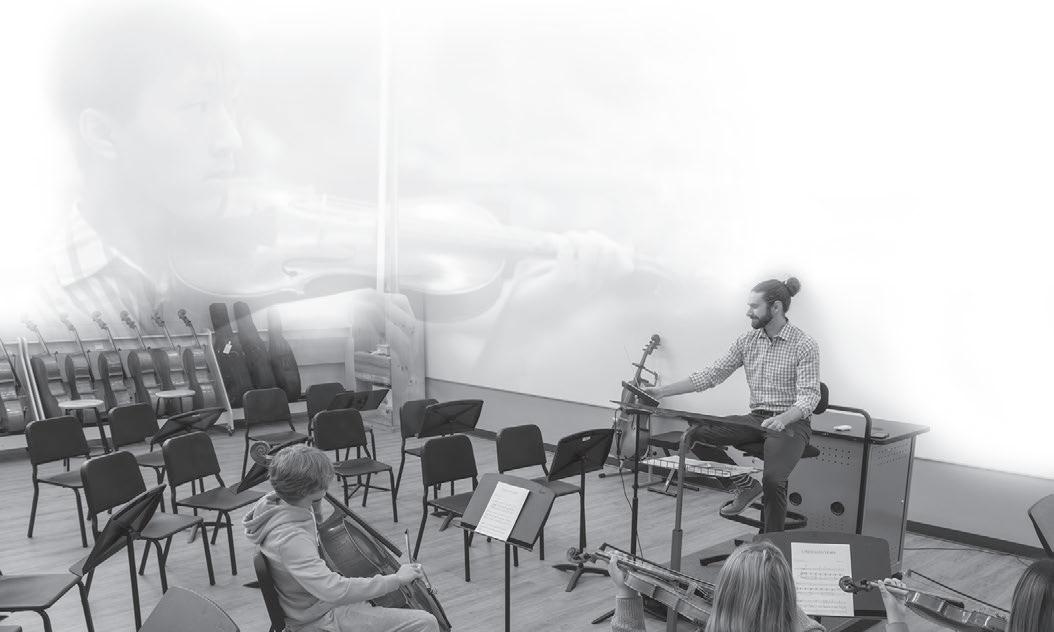
DIVISION EVENT LOCATIONS
When you create your convention schedule, take note of the clinic locations (especially if you’ve attended for several years).
Most clinics hosted by the Orchestra Division will be held on the north side of the convention center in second-floor rooms CC 221 and CC 225. Our Invited Mariachi will perform in the Hemisfair Ballroom 1–2, located on the south side on the third floor.
As mentioned before, be sure to examine clinics hosted by other divisions as many will support your work (especially those listed as General Membership, College, and Technology).
Rank
..............................................................................Directors 1 Tompkins
.....................................................................
2
Jamie
3
David
4 Westwood
................................................... Joshua
5 Seven
.................................................................Desiree
6 Klein
.........................................................Sundas
7 Clear
..........................................................Bryan
8
....................................................................... Matthew
9
Sixto
10
Congratulations to the following orchestras and their directors for this outstanding accomplishment:
School/ISD
HS/Katy ISD
Matthew Porter
Martin HS/Arlington ISD
Ovalle
Allen HS/Allen ISD
DeVoto
HS/Round Rock ISD
Thompson
Lakes HS/Katy ISD
Overree
Cain HS/Klein ISD
Mohi-Truong
Lake HS/Clear Creek ISD
Buffaloe
Jasper HS/Plano ISD
Moreno
Reagan HS/North East ISD
Elizondo IV
Flower Mound HS/Lewisville ISD Stephen Clink
Discover more at wengercorp.com or call us at 1.800.4WENGER EVERYTHING YOUR MUSIC PROGRAM NEEDS 42 Southwestern Musician January 2023
Honor Orchestras
It was an exciting time and a pleasure to welcome back the Honor Orchestra competitions that ultimately named our Honor Orchestras that will perform next month. Thanks go to our hosts for the listening rounds of the competition and to all directors who served as judges and gave up personal time for the listening rounds. Across all Honor Orchestra listening rounds, there were 40 judges and 7 playback monitors who dedicated their time and focus to this process.
With the conclusion of this competition, there is no doubt or question that orchestra education remains strong. All orchestra performances were well prepared, musical, expressive, and of the highest quality. Congratulations go to
the finalists from the HS String Honor Orchestra Competition, with an extended accolades to the winner, Tompkins HS Sinfonia Orchestra and its directors.
HS String Honor Orchestra
Tompkins HS Sinfonia Orchestra
Obra D. Tompkins HS (Katy ISD) is among the most culturally diverse schools in Texas, educating over 3,000 students from around the globe. The orchestra program has grown from 57 students in 2013 to now include over 240 student musicians in grades 9–12, thanks in part to the success of its feeder programs at Tays, WoodCreek, and Cinco Ranch Junior Highs. Sinfonia Orchestra is under the direction of Matthew Porter and Sarah Marts.
The Tompkins orchestras have consistently earned UIL Sweepstakes awards and top honors at contests and festivals around the state. Musical pit orchestras under Porter’s direction earned the distinction of being named Tommy Tune Best Orchestra in 2016 and 2022. In 2018, the Sinfonia was the first Katy ISD high school orchestra to be named TMEA HS String Honor Orchestra. Orchestra graduates have gone on to study at prestigious music schools including Oberlin, Eastman, North Texas, and the Mannes School of Music. 0
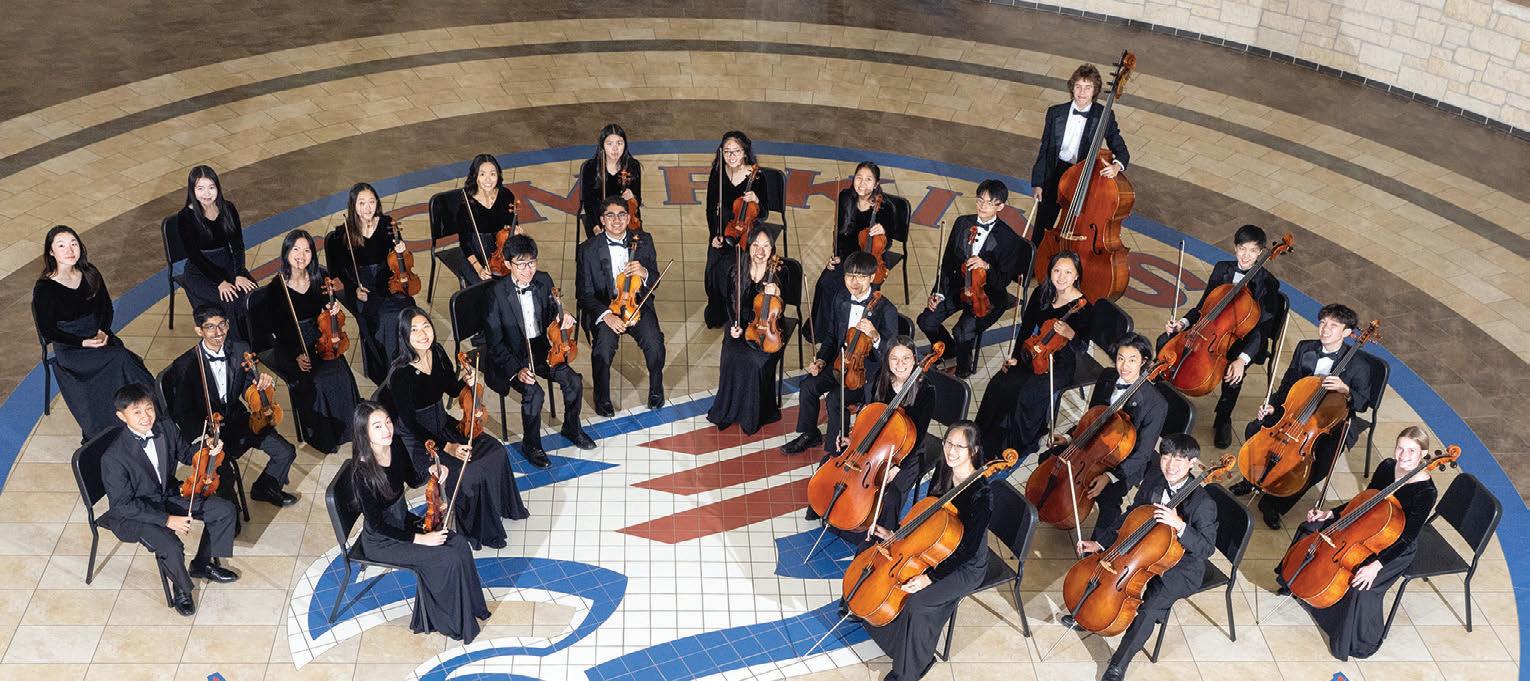
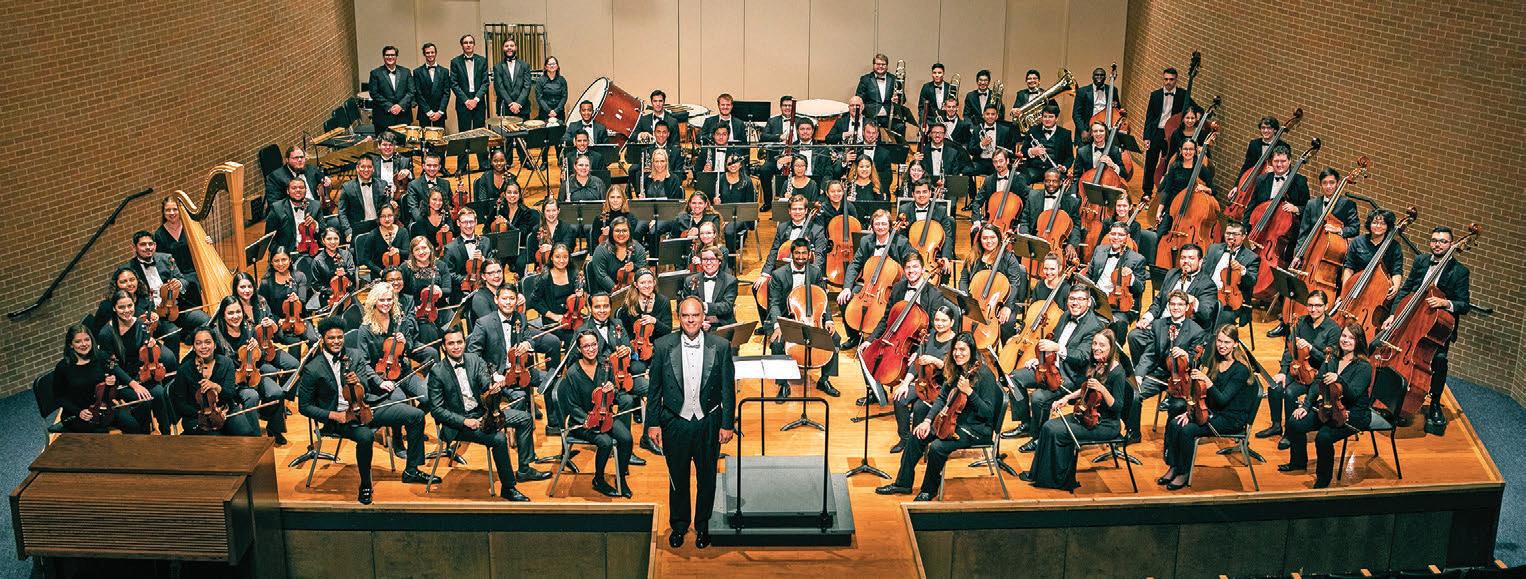 University of Texas at Arlington Symphony Orchestra
University of Texas at Arlington Symphony Orchestra
43 Southwestern Musician January 2023
Tompkins HS Sinfonia Orchestra
The Web of Life
Weaving connection, community & wellness into the music
By Rachel L. Dirks
experience
Research in the field of mental health has revealed staggering rates of anxiety, stress, and depression in the youth of today—trends that were emerging prior to the pandemic.1 Unfortunately, when students struggle with their mental or emotional health, teachers may also be impacted by those burdens.2 Whether the stressors students experience stem from the pandemic, social media, or traumas from poverty, neglect, or abuse, the over-arching consequence is social disconnection. As humans, we are genetically wired to seek connection and to live in community—thus, the current societal disconnections could be seen as a “disease.”3 The silver lining? If disconnection is the disease, then connection is the cure—and the music classroom is all about connections.
This we know: All things are connected like the blood that unites us. We did not weave the web of life, we are merely a strand in it. Whatever we do to the web, we do to ourselves.

—Chief Seattle
Weaving Teacher–Student Connections
Acknowledging that teachers and students can impact the mental and emotional wellness of each other, teachers have the opportunity to positively influence the emotional development of their students, especially when the teachers themselves are emotionally, mentally, and physically healthy.⁴ How do we nurture this development? One approach is to intentionally choose daily activities that focus on the wellbeing of all classroom stakeholders. Make time to play get-to-know-you games, even beyond the first week of school, share in deeper conversations about current events, participate in local activities as a group, or purposefully include stretching or deep breathing as a consistent element in your lesson plans. Each of these can make a significant difference in the healthy development of your students, and yourself.
Another way to encourage a more positive learning experience is to nurture a collaborative learning environment. In her book Compassionate Music Teaching, Karin Hendricks suggests the music education experience is one of sharing information and learning from one another. Working and learning alongside one’s students forges trust, student engagement, and ultimately, community. Hendricks also challenges us, however, to forge these connections in a healthy way:
Compassionate teachers keep professional and personal boundaries and maintain appropriate relationships with their students. Compassionate teachers are compassionate with themselves first and enjoy a healthful personal life outside of teaching so that they don’t place too much energy or emotion on their students either during or outside of teaching time (p. 8).
Regardless of how we choose to utilize these strategies, when we make time to develop healthy connections with our students, we enrich everyone’s music-making experience as well.
Weaving Student–Student Connections
The community atmosphere that students often experience in the music classroom is vital as we look to strengthen enriched connections within our programs. Research that highlights how the music classroom is a home away from home⁵ reinforces how many students see the music classroom as a space where they feel welcomed and safe and can express themselves authentically without fear of judgment.
One of the most powerful ways to cultivate authenticity and trust in a music program is by embracing student ownership and leadership as a foundational facet of your program. Do you have ways in which each student may contribute to the growth of your program? Incorporating a community-service project within your curriculum each semester can significantly shift how students
44 Southwestern Musician January 2023
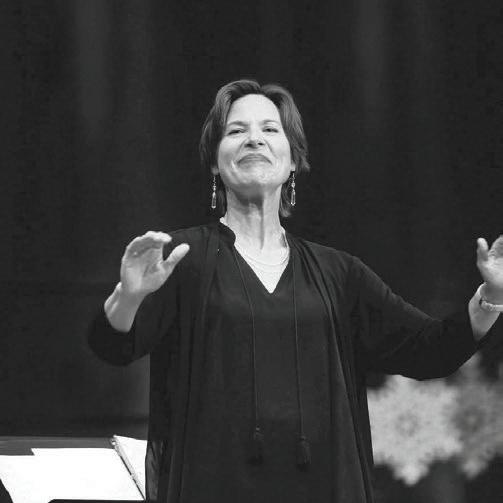
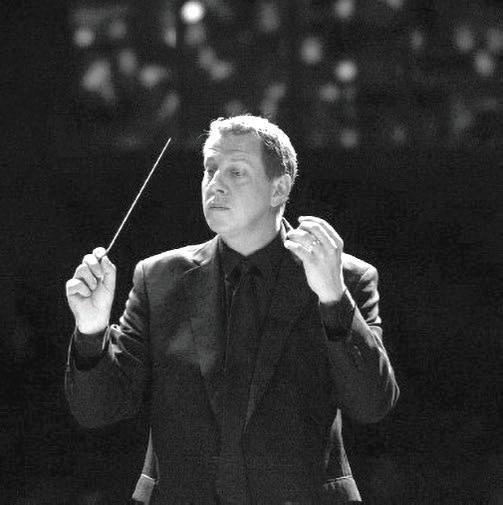

view their importance in your space. For example, students might have the opportunity to give back to the program directly by doing simple things like stuffing folders or setting up the stage after school. Or, perhaps a high school student could serve as a mentor for a budding young musician in need of extra help. Serving others can be a powerful tool toward boosting one’s mental wellbeing—when we feel needed, we feel connected.
Another way to encourage student ownership and connection is by developing a leadership team for your program. Student leaders not only gain the rewards of service but also help shape the musical and social goals of the program, all while serving as active role models. Speaking with students about how to make their program stronger, identifying its core values, and developing strategic goals for strengthening those values can be incredible experiences for your students. In addition, empowering students to forge their own connections between each other and those who are affected by their efforts is a fantastic way to bolster their wellbeing long-term.
Chamber music is one of my favor-
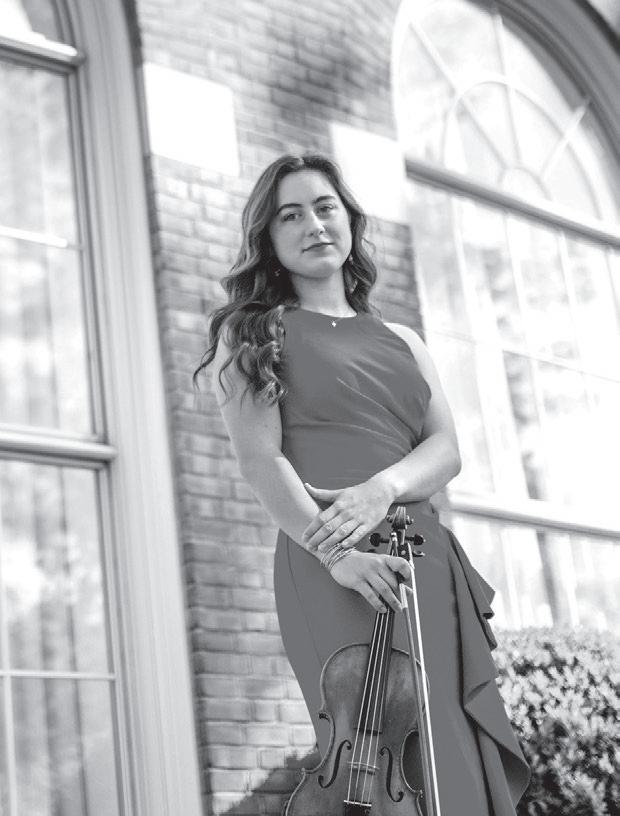
ite activities that promotes connections while empowering student autonomy. Developing the skills needed to communicate in a collaborative and supportive way, while learning to become self-reliant as a musician, creates a multitude of opportunities for student growth and ownership.
If you haven’t attempted to incorporate chamber music into your program curriculum, I strongly encourage you to give it a try. The musical and personal rewards are invaluable, and the student–student connections that develop can last a lifetime.
Weaving Program–Stakeholder Connections
Within the field of adolescent mental health research, psychologist Dr. Jean Twenge has published numerous studies and books revealing a connection between historic societal norms and the impacts of these norms on the mental wellbeing of adolescents. While the cause for the current mental health crisis is uncertain, growing evidence suggests that newly introduced technological and social behaviors as well as environmental factors may play a role in these trends. By 2019, Twenge revealed a cohort generation (current adolescents and
young adults) whose anxiety and depression have been dramatically impacted by some of these factors.⁶ Following the impact of the COVID-19 pandemic, the data are even more alarming.⁷
How do we begin to counteract these effects our students are experiencing? By weaving one connection at a time. You might start by building partnerships with your colleagues in school, including your administrators. Do you know a physics teacher who loves music? Invite them to share their expertise about the physics of sound production with your students. Do you have a principal who seems uninterested in what you do? Invite them to serve as an emcee or narrator on your next concert.
Weave connections with your students’ families as well. Parents and guardians want to be involved, even if they don’t have the time or resources to do so. Get creative; ask them how they’d like to participate. While some parents have the time to haul the drumline trailer or serve at a cookout, others might want to contribute but don’t know how. Ask for what you need, and you’ll be surprised by the number of family stakeholders who find unique
Samford University offers degrees in composition, commercial music, music education, music and worship, instrumental, piano, and voice performance, and piano performance and pedagogy. at Samford’s School of the Arts Division of Music wiou in arts@samford.edu • 205-726-4111 • samford.edu/arts Visit our website to learn more about the Division of Music. Samford University is an Equal Opportunity Educational Institution/Employer. 46 Southwestern Musician January 2023
Title 1 Middle School





Choir Directors!
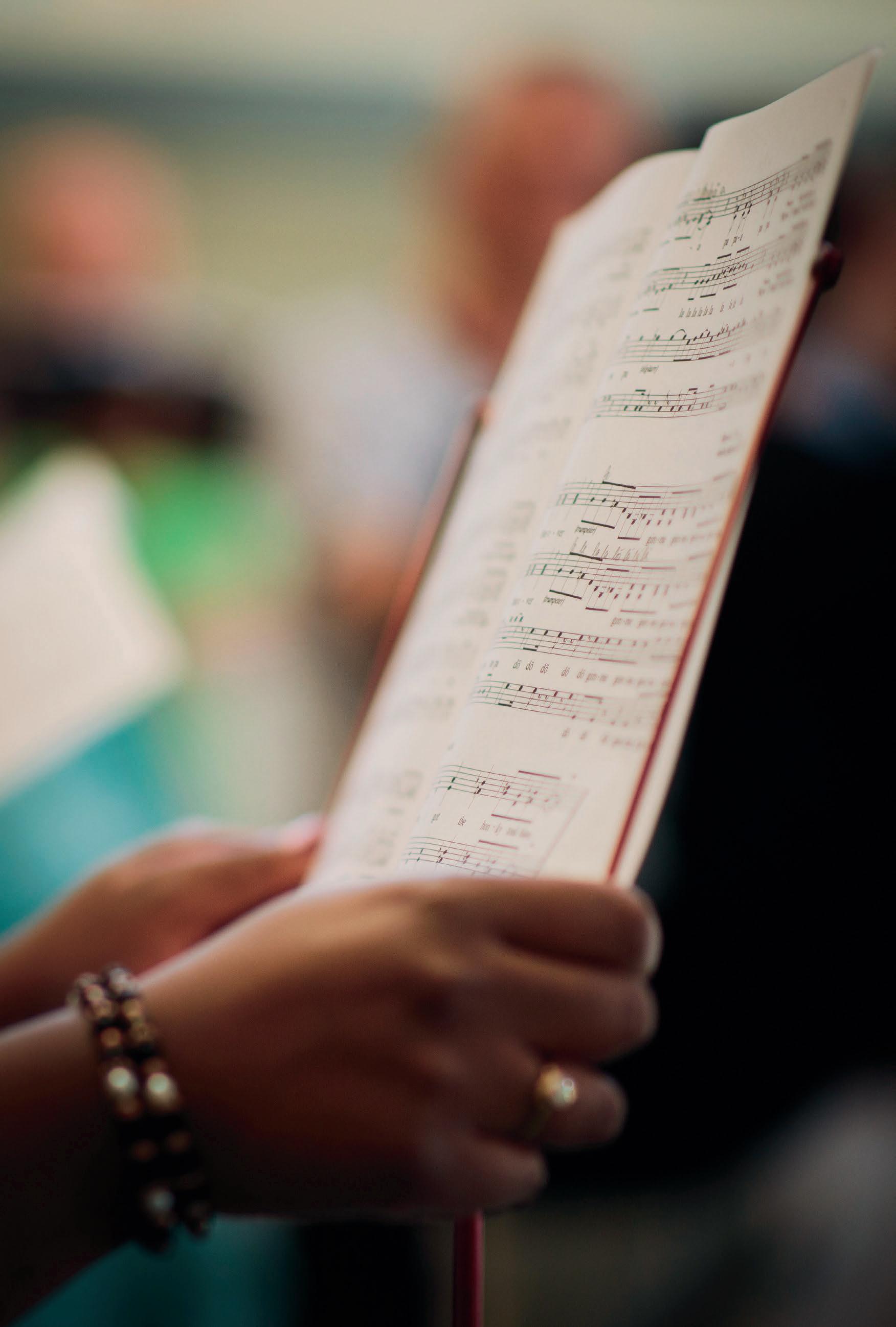
Sponsored in part by a grant from
www.fortworthchorale.org/ scholacantorumproject

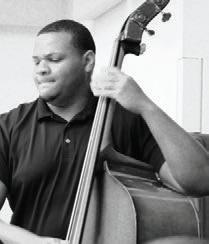
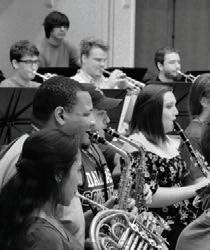
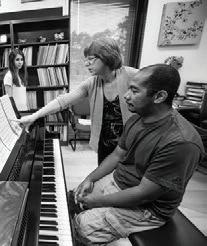

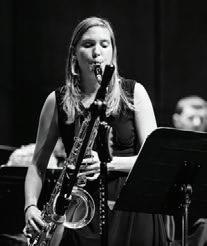

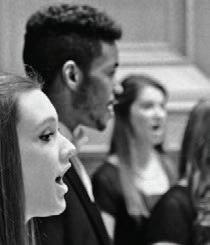

YOUR FUTURE Dates uttyler.edu/music/admissions/auditions Scan the code for our Concert Calendar!
and meaningful ways to connect as they respond to those needs.
Ultimately, to change how our students engage with society we must weave connections that extend beyond our classroom walls. Forming chamber ensembles to perform for retirement communities, local events, and preschools is a first step in expanding your program’s outreach into the community you serve. Ask your students how they might like to give back to their community. A few ideas include serving at the local soup kitchen, picking up trash at a nearby park, or collecting donations for the town food pantry (all while wearing their program T-shirts). These types of projects yield instant rewards and generate lasting impact. Many of these projects might become the traditions upon which your program is strengthened and eventually defined.
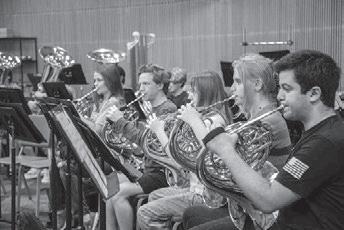
The ways in which you support your students and empower them to interact with others throughout the music experience weaves a web of connection between you, your students, student families, colleagues, administrators, and your community. This web is your program. The more connections you weave, the stronger the
program. And yes, each strand represents relationships between students and families and teachers, and sometimes these can be shaken or even torn. Nonetheless, the web can be rebuilt and made stronger with each connection.
I look forward to continuing deeper conversations with you at the TMEA Clinic/Convention about mental health and music teaching, and how we move forward. Until then, keep weaving—you are a powerful strand in the web of life! 0
Rachel L. Dirks is Director of Orchestral Studies and Assistant Professor of Music at Kansas State University. Dirks is a 2023 College Division Featured Clinician.
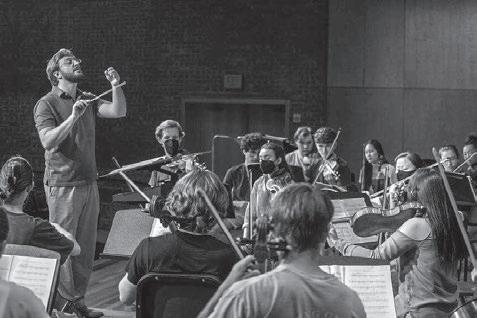
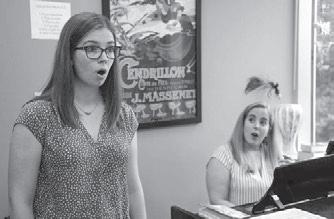


References
1. Twenge, J. et al. (2019). Age, period, and cohort trends in mood disorder indicators and suicide-related outcomes in a nationally representative dataset, 20052017. Journal of Abnormal Psychology, 128(3), 185–199.
2. Dirks et al (2022, in press). Mental
health and string education: Identifying key concerns within the American String Teachers Association community. String Research Journal.
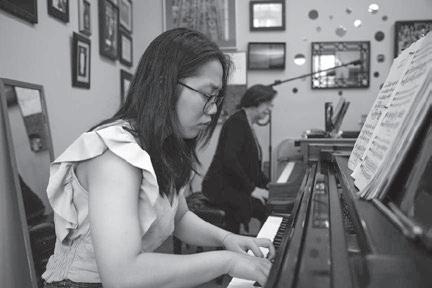
3. Perry, B. & Winfrey, O (2021) What happened to you? Conversations on trauma, resilience, and healing. Flatiron Books.
4. Oberle et al. (2018). Positive mental health and supportive school environments: A population-level longitudinal study of dispositional optimism and school relationships in early adolescence. Social Science and Medicine, 214, 154–161.
5. Adderly et al. (2003). A home away from home: The world of the high school music classroom. Journal of Research in Music Education, 51(3), 190-205.
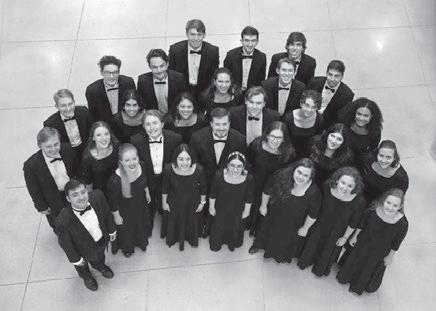
6. Twenge, J. et al. (2019). Age, period, and cohort trends in mood disorder indicators and suicide-related outcomes in a nationally representative dataset, 20052017. Journal of Abnormal Psychology, 128(3), 185–199.
7. CDC (2022). New CDC data illuminate youth mental health threats during the COVID-19 pandemic. https:// www.cdc.gov/media/releases/2022/ p0331-youth-mental-health-covid-19.html
Music scholarships available to non-music majors trinity.edu/music The Trinity University Music Department is recognized as an ALL-STEINWAY SCHOOL by Steinway and Sons, for its commitment to excellence think. perform. explore. ■ Faculty who focus on undergraduates ■ 16 ensembles, with national and international ensemble touring opportunities ■ Degrees in music education, performance, and composition ■ Master of Arts in Teaching, a 5th year program with a full year of student teaching and 100% job placement (25 consecutive years) ■ Located in culturally vibrant San Antonio ■ Study Abroad opportunities
49 Southwestern Musician January 2023
TMEA Vocal Vice-President
JESSE CANNON II
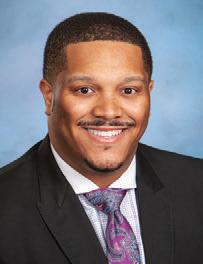
Collaborative Thinkers in Your Ensemble
Once we allow students to contribute to the rehearsal, we need to make sure we follow through on their observations. If students are providing input, we need to honor that and support the students’ problem-solving processes.
As teachers, our goal is to provide a safe space to foster students’ cognitive development where we first model and then coach students through the process of critical thinking. One approach for modeling in the rehearsal is to think aloud.
Instead of simply telling students how to adjust their performance, try explaining what we are hearing, why we want to change what we hear, and how we will make that change.
Sharing this sequence reveals our thought process to our students, so they can have a clear model of thinking critically through music. The more frequently we ask instead of tell, the more actively our students are thinking about the musical experiences they are having and the deeper they move into understanding the music they make.
Team Planning
Once critical thinking is a common practice of the ensemble, students can make meaningful decisions about the rehearsal. If we want students to become independently capable musicians, we must provide them opportunities to impact the music rehearsal by sharing in its planning.
Collaborating in the rehearsal starts with the teacher discussing
January—Renew your membership and register for the convention.
January—Make your TMEA convention hotel reservation.
January 7—Area Vocal and Band auditions.
January 17—Convention hotel cancelation deadline.
January 19 —TMEA convention early registration deadline.
February 8–11 —TMEA Clinic/Convention in San Antonio.
February 9, 5:15 p.m.—Vocal Division Business meeting at the convention.
February 10, 5:15 p.m.—TMEA Region meetings at the convention.
for
50 Southwestern Musician January 2023
MARK YOUR CALENDAR check www.tmea .org
updates
with students the considerations made as an ensemble director. What do you see? What could cause trouble? What do you want to bring out of the music? This leads to the discussion of specific strategies for addressing issues and assigning those strategies specific names so students know both how and why to isolate segments of the music they are working on.
Once students are familiar with this process, they can share during rehearsal planning. This can happen using exit tickets, online discussion boards, or shared Google Docs that ask students to note what they want to work on and how to go about that task. This shared decision-making can also happen in real time.
Importantly, once we allow students to contribute to the rehearsal, we need to make sure we follow through on their observations. If students are providing input, we need to honor that and support the students’ problem-solving processes.
Taking the First Step
If you are new to collaborating with your class, start by recreating your ensemble as an active thinking space. Incorporate modeling of your thinking and asking
students guided questions. Once your students become accustomed to this, the possibilities for constant engagement through collaboration are limitless!
2023 Clinic/Convention Update
Only a few days remain until the online early registration deadline of January 19! The online searchable schedule will be available in early January at www.tmea. org/convention/schedules. From this online schedule, you can create an account that you’ll use when you download the convention app to your mobile device. With an account, you can start creating your schedule on our website and then access it from the convention app while in San Antonio.
For the 2023 convention, you’ll download our convention app directly from your app store, so look for notifications from TMEA about its availability.

As the convention nears, I am proud to introduce the final six 2023 Invited Choirs (other choirs were featured in November). These friends and colleagues will appreciate your support and attendance at their concerts as they share their students’ gifts with us all.
Trinity University Chamber Singers
The Trinity University Chamber Singers are 35 undergraduate musicians under the direction of Gary Seighman. Representing 18 majors, this ensemble epitomizes the liberal arts experience, with a commitment to choral artistry of the highest quality.
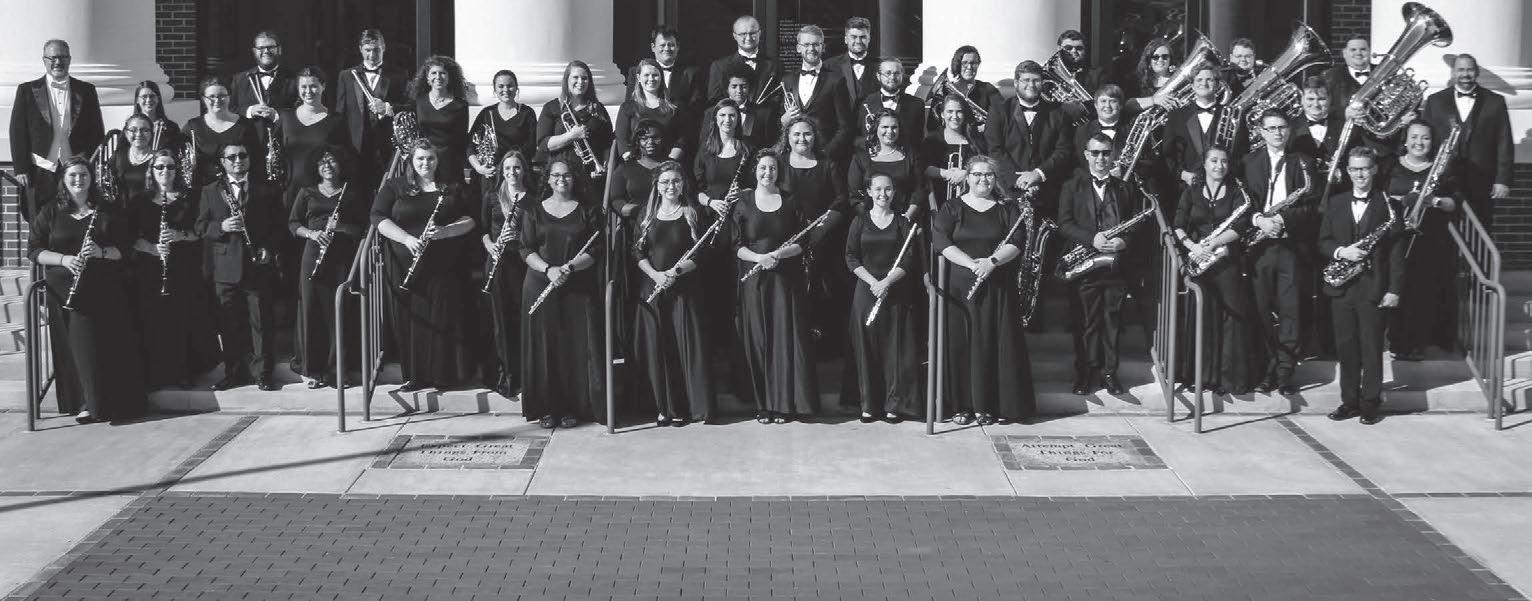
They have performed for NCCO, TMEA, and the CMS National Conference. They served as ensemble-in-residence for the 2018 Eisenstadt Classical Festival in Austria and at Carnegie Hall for MCP. Last spring, they collaborated with Californiabased Sinfonia Spirituosa on a program of French Baroque music.
Other recent collaborations include New York Polyphony, the Waldon Chamber Players of Boston, Chanticleer, and Cantus. In 2022 they premiered works by Ēriks Ešenvalds and Taiwanese composer Chihchun Chi-sun Lee. They are a 2022 National Finalist for The American Prize as the smallest school in the college/ university choral division.
Hebron HS A Cappella Choir
The Hebron HS A Cappella Choir, under the direction of Alexander Carr and Nathan Ratliff, is the flagship ensemble
The Winters School of Music invites you to be a part of the William Carey family! • Competitive Scholarships for Undergraduate Music Majors and Non-Music Majors • Mississippi’s FIRST All-Steinway School • Undergraduate degrees offered in Music Education, Worship Leadership, Worship Technology, Music Therapy, Performance, Dance, and more! • FULLY ONLINE Doctor of Arts in Music, Master of Music Education, Master of Music in Worship Studies • Common-sense entrance requirements • Taught by caring, Christian professionals • Masters degrees completed in one calendar year • DA in Music coursework completed in two years • Affordable tuition Music at William Carey University 2022/2023 Scholarship Audition Days Friday, November 11 • 9:00 AM – 12:00 PM Friday, January 13 • 9:00 AM – 12:00 PM Friday, March 24 • 9:00 AM – 12:00 PM To reserve an audition day or request a time that works better for you, please email music@wmcarey.edu or call 601-318-6175 Save the Dates Carey Honor Choir • October 21-22 Carey Honor Band • February 23-25 Carey Jazz Festival • March 25 FOLLOW US ON SOCIAL MEDIA @wmcareymusic For More Information Scan this QR Code 51 Southwestern Musician January 2023
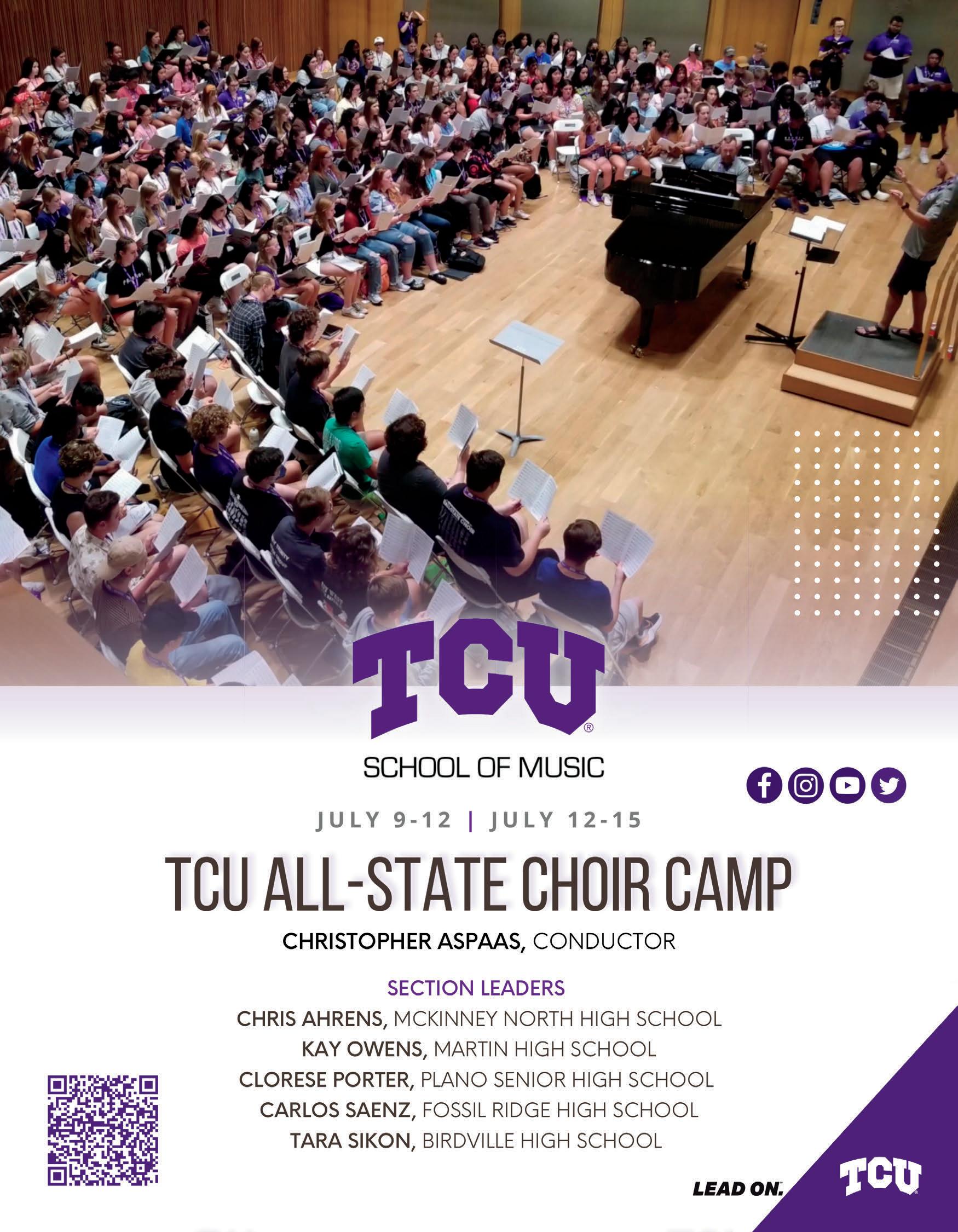
of the Hebron Choral Department. They have consistently earned UIL Sweepstakes awards and won best-in-class honors in cities such as New York, Los Angeles, San Diego, South Padre Island, San Antonio, and Houston. In 2021–2022, they were named a Mark of Excellence National Commended Winner and earned Reserve
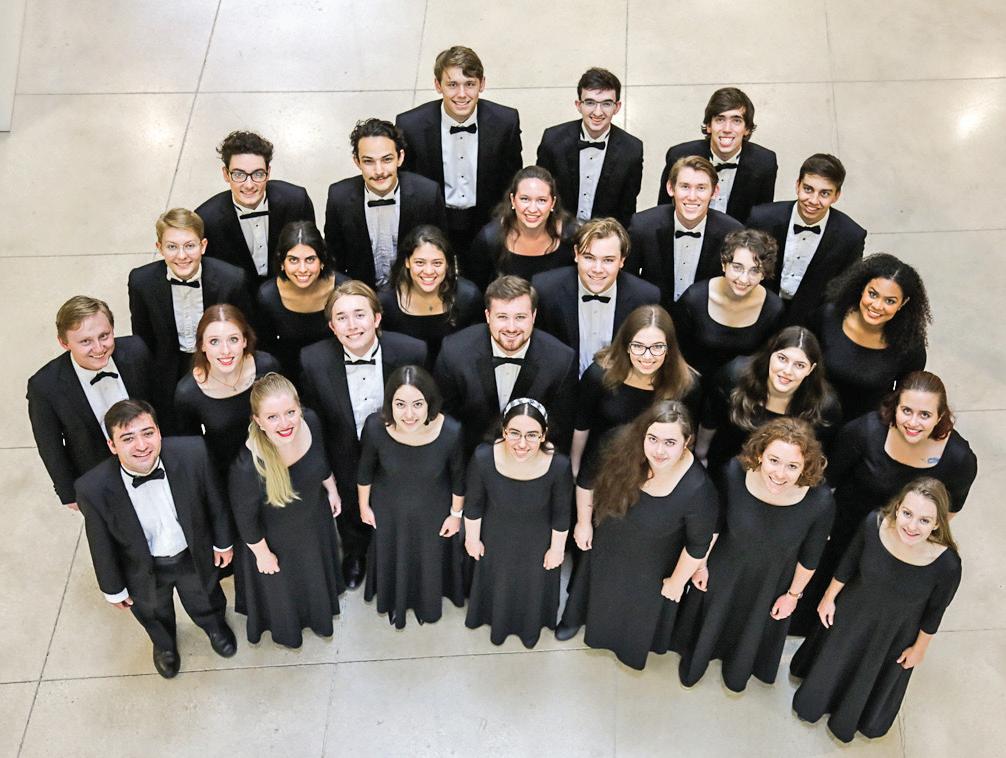
Grand Champion at Festival Di Voce. In the choir room, students are challenged daily to work to prepare, perfect, and perform varied musical genres to share with our diverse community. The members of the A Cappella Choir are honored and excited to represent Hebron HS and
Lewisville ISD at the 2023 TMEA Clinic/ Convention.
Johnson HS Dolce Sirena Varsity Treble Choir
The Johnson HS Dolce Sirena Varsity Treble Choir consists of auditioned 11th and 12th graders and is under the direction of Christie Brown and Ashley Hester. Members are enrolled in AP, On Ramps, and Honors classes, and many are at the top of their class. Several are active participants in other programs including theatre, band, orchestra, swimming, basketball, cross country, softball, student council, and Model UN. Singers in this ensemble form the soprano and alto sections of the Johnson varsity mixed choir, Cantare. Both choirs consistently earn sweepstakes at UIL Concert and Sightreading evaluations. In 2018, Dolce Sirena was recognized as a national winner in the Mark of Excellence honors sponsored by the Foundation for Music Education. This is the first TMEA convention appearance for Johnson HS (North East ISD).
Grand Prairie Fine Arts Academy MS Tenor-Bass Singers
GPFAA Middle School Tenor-Bass Singers (Grand Prairie ISD) consists of advanced 6th–8th grade vocalists. Celebrating its 10th year, the academy’s
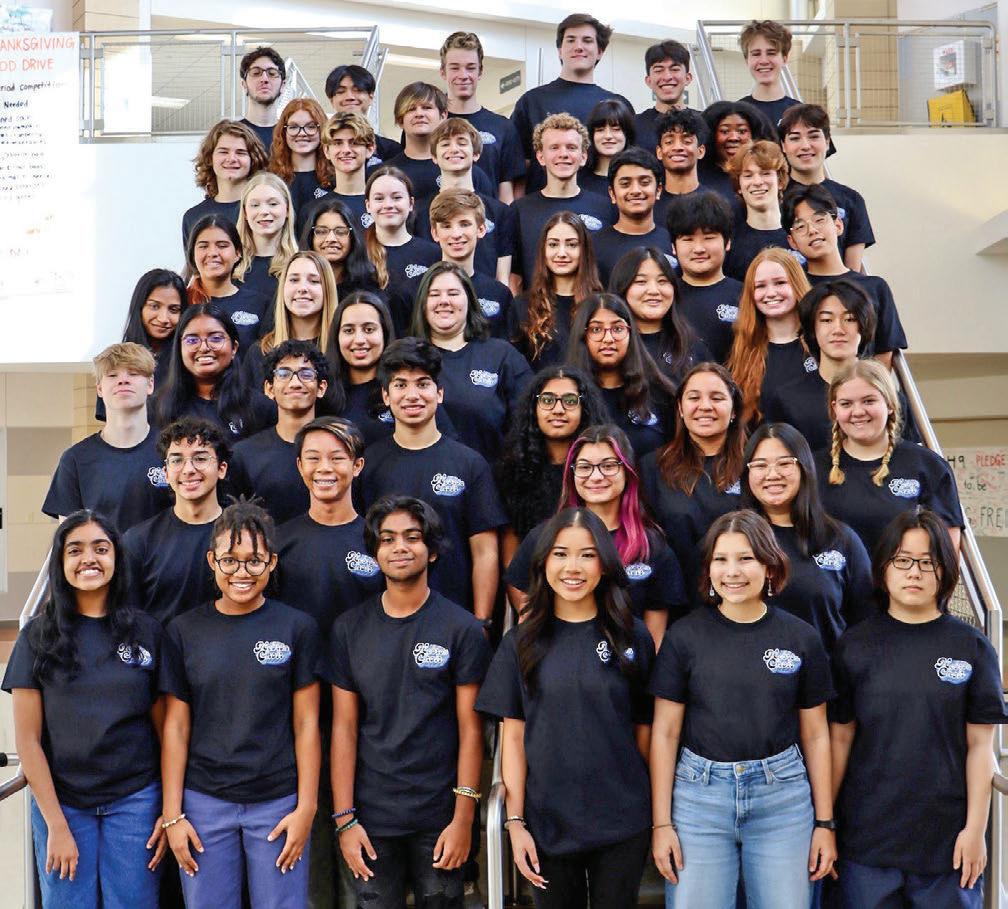
VOCAL DIVISION
EVENT LOCATIONS
When you create your convention schedule, take note of the clinic locations (especially if you’ve attended for several years).
Many clinics hosted by the Vocal Division will be held on the north side of the convention center in room CC 221 and in the third-floor Stars at Night Ballroom 1. At 2:30 p.m . on Thursday and Friday, you’ll also find Vocal clinics in the Grand Hyatt second and fourth floor ballrooms.
All performances by our 2023 Invited Choirs will be in the Stars at Night Ballroom 2–4 (third floor, north side of the center).
Trinity University Chamber Singers
53 Southwestern Musician January 2023
Hebron HS A Cappella Choir
vocal music program has consistently earned top state, regional, and national awards, including a 2021 Grammy Signature School Enterprise Award. Most recently, the MS Tenor-Bass Singers were 2022 Mark of Excellence Commended Winners. Grand Prairie Fine Arts Academy, located in the Dallas/Fort
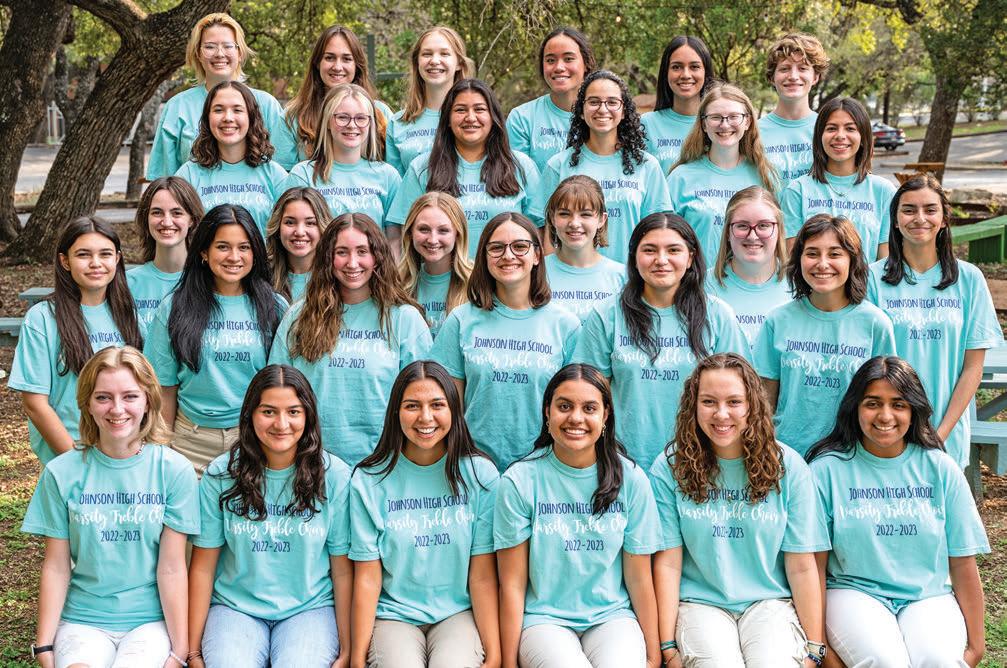
Worth Metroplex, is a 6–12th grade Blue Ribbon School that emphasizes advanced academics and comprises seven fine arts strands. This is the second TMEA Clinic/ Convention appearance for a GPFAA choir (GPFAA HS Singers performed in 2019). MS Tenor-Bass Singers are small in number but mighty in heart, mind, and
voice. Joel Duarte and Alexis Galindo serve as the 2023 GPFAA Vocal Music strand directors. The directors and GPISD are excited and honored to share this performance with their students.
Trinity Springs MS Varsity Treble Choir
Located in Keller ISD and under the direction of Clinton Hardy, the Trinity Springs MS Varsity Treble Choir is a diverse ensemble consisting of students who are dedicated to making beautiful music while learning how to become incredible humans. In our choir room, we focus on humanity and strive to always be kind and inclusive. Students are also involved in band, orchestra, art, theatre, sports, National Junior Honor Society, student council, and yearbook, and individual choir members have been named to the SWACDA and TCDA honor choirs. Varsity Treble Choir has most recently performed as an invited choir at SWACDA in 2022 and sang at TMEA in 2019. The TSMS Choirs have also been named the National Winners of the 2019, 2020, 2021 & 2022 Mark of Excellence Award given by the Foundation for Music Education.
Kingwood HS Varsity Tenor-Bass Choir
Kingwood HS is a somewhat small 6A high school (2,700 students) located in the Northeast Houston suburbs and is part of the Humble ISD. Only Men Aloud (OMA) functions as the Kingwood HS varsity tenor-bass choir, under the direction of Jason Watt. The focus of this ensemble over the years has been to establish an environment that promotes a sense of fraternity and self-confidence where young male singers can feel comfortable taking risks as they navigate their changing voices. This group celebrates the individual journeys of the developing male voice while emphasizing how those individual experiences and abilities can contribute to the improvement of the entire group. The result is a collection of young men so comfortable with who they are that they allow others to be who they need to be, and they almost never stop singing! The directors are okay with that.
0
We Are Excited to See All Our Friends at TMEA 2023 54 Southwestern Musician January 2023
Johnson HS Dolce Sirena Varsity Treble Choir
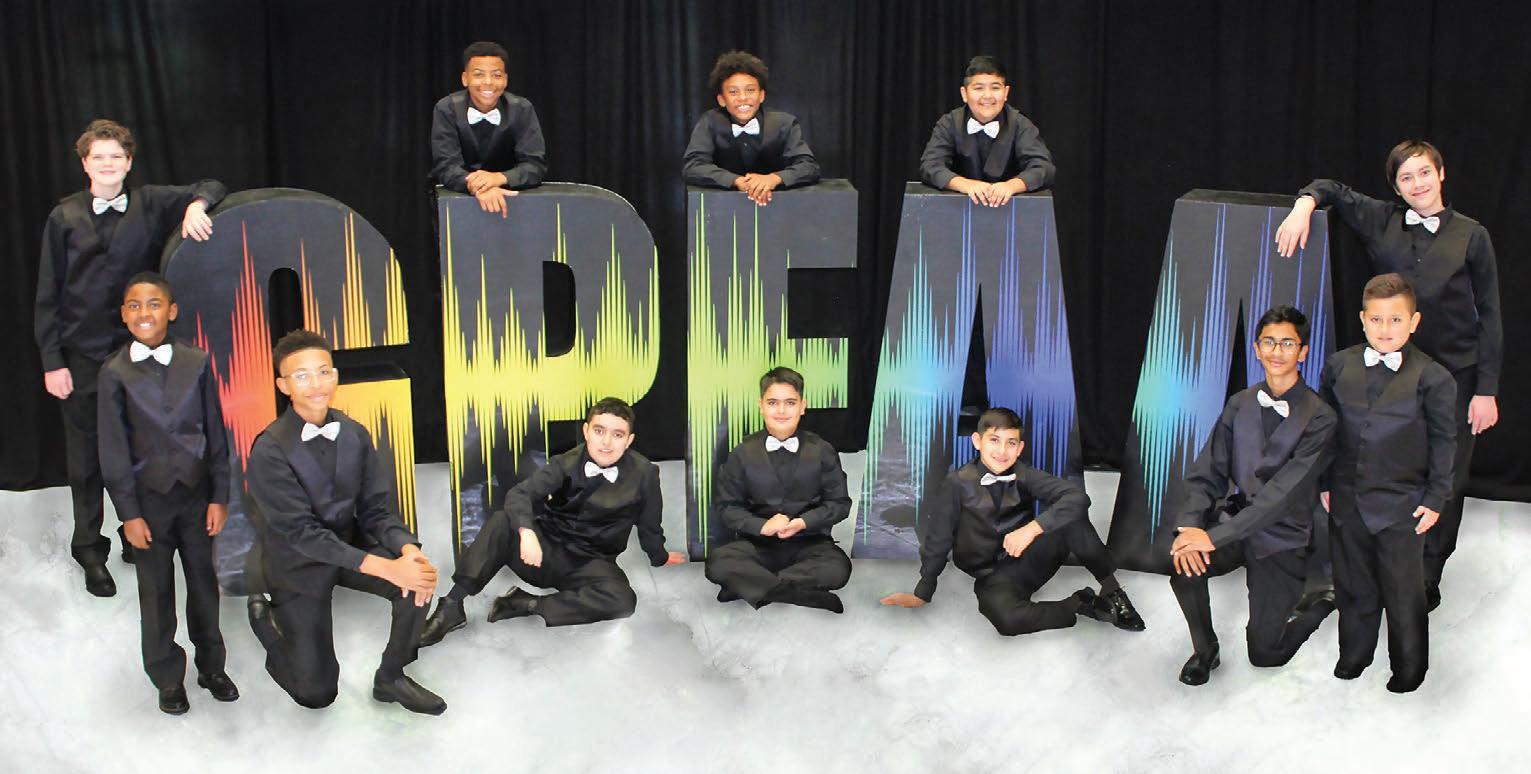

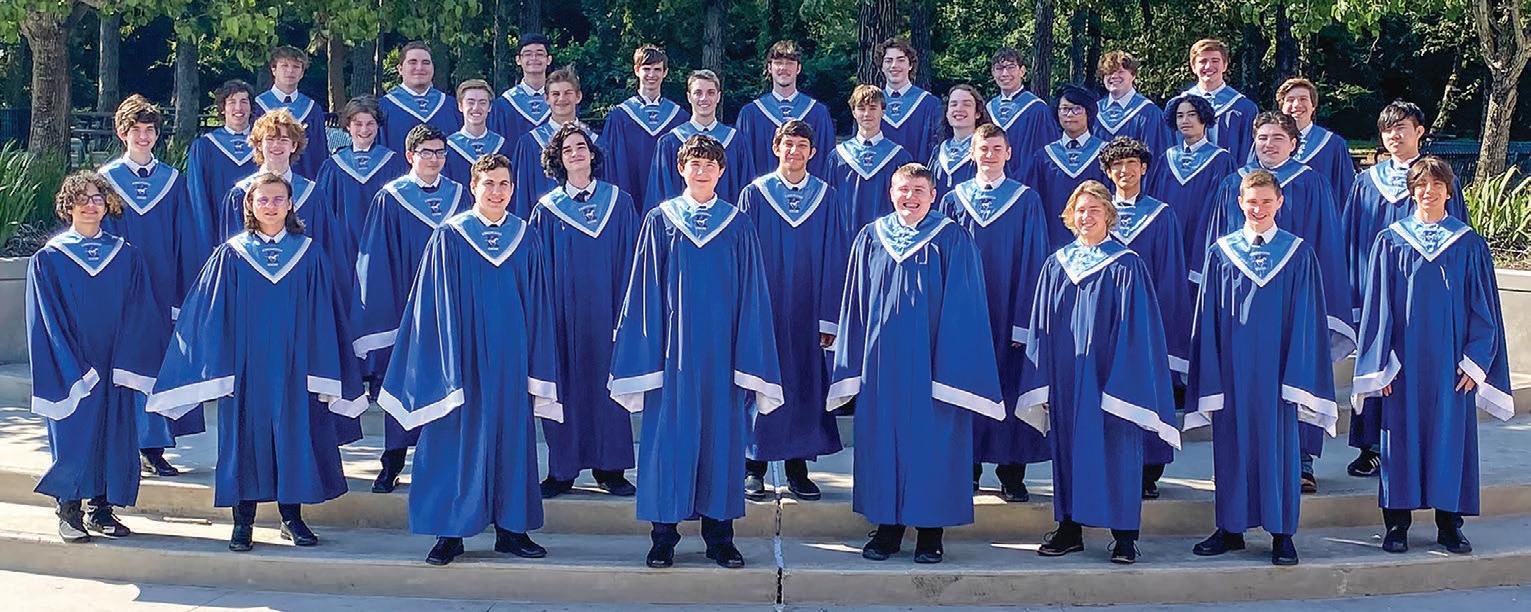 Grand Prairie Fine Arts Academy MS Tenor-Bass Singers
Trinity Springs MS Varsity Treble Choir
Grand Prairie Fine Arts Academy MS Tenor-Bass Singers
Trinity Springs MS Varsity Treble Choir
55 Southwestern Musician January 2023
Kingwood HS Varsity Tenor-Bass Choir
Supporting Music Skill Development with Data Collection
by Mo Foster
In my experience, one of the most challenging teaching practices to replicate with authenticity in the elementary fine arts classroom is data collection and analysis. As an elementary music teacher, it can be daunting to find time to observe, record data, and look for patterns with 300–900 students. That said, I will attest that it’s worth it.
My students’ skill levels rocketed after I was able to diagnose gaps in their performance (and in my instruction). I learned how to elevate so many students to the next tier of learning by observing trends in student skill level and by adjusting my instruction and rehearsal plans in response to those trends. I am also able to have authentic and meaningful conversations with administrators regarding student growth, thus allowing me to advocate for my students and my subject. But how does one even get started? You might be assuming that it’s a lot of extra work when your teaching plate is already overflowing.
For the moment, don’t stress. While I’m not going to say it’s easy or fast, I suspect it might be easier and faster than you’re imagining. Utilizing some tools and staying as organized as possible, I collect data and use it to improve student outcomes through thoughtful data analysis and planning. I invite you to learn more about my process and consider how you might implement it in your classrooms.
Rubrics
Rubrics are the key to collecting data in a performance-based classroom like music (or theater, dance, etc.). By making a rubric for the skill you want to assess, and staying consistent to that rubric, it’s simpler to give students a score quickly while you’re assessing.
When I first used rubrics, I defined levels of proficiency and assigned scoring values to them similar to the following example from a singing rubric:
Criteria: Demonstrate accurate pitch, rhythm, and intonation when singing:
• Advanced, 4 points: Student sings the excerpt with accurate pitch, rhythm, and intonation.
• Proficient, 3 points: Student sings the excerpt with accurate pitch, rhythm, and intonation, but there are a few errors that do not detract from the performance.
• Basic, 2 points: The student sings the excerpt with some errors in pitch, rhythm, or intonation that do detract from the performance.
• Emerging, 1 point: The student sings the excerpt with significant errors in pitch, rhythm, and intonation.
• Non-Performing, 0 points: The student does not attempt to perform the excerpt.
After reading those, you may think they leave something to be desired, and after I tried applying them, I thought the same. I realized I wasn’t getting accurate data because too many skills were being assessed in a single rubric. Pitch/intonation and rhythm needed to be separate categories for easier documentation of issues. That said, utilizing a 0–4 scale did help me recognize trends in ability without getting lost in unhelpful nuance (e.g., Should it be a 95 or a 94?). By assigning scores on a more limited scale, I could quickly see who was mastering the skill and who needed extra help and guided practice!
After realizing the limitation of my initial attempt, I transformed
Welcome to
Class!
Music
56 Southwestern Musician January 2023
EVEN TEACHERS NEED TEACHERS
As an educator, one of the most impactful ways to improve is by educating yourself. That’s why the Yamaha Educator Suite (YES) helps music teachers access professional development opportunities, music teacher resources, program health support, advocacy assistance and more. YES brings you a network of like-minded teachers, experts and professionals, who want to help you achieve your goals. Let us help you raise the bar. Go to Yamaha.io/educatorsSWM

my rubric criteria and its ratings into something more like the following: Criteria: Demonstrate accurate pitch when singing:
• Distinguished, 4 points: Consistently demonstrates accurate pitch with no scooping or sliding.
• Proficient, 3 points: Frequently demonstrates accurate pitch with a few errors in intonation or with scooping.

• Apprentice, 2 points: Rarely demonstrates accurate pitch, but is using a singing voice while performing.
• Novice, 1 point: Performs the song but does not use a singing voice while performing (chants the song).
• Non-Performing, 0 points: No attempt made.
Assigning scores on this rubric, I could go back and pinpoint issues I needed to help fix. Instead of wondering where it all went wrong or right, I isolated the skill the students were supposed to demonstrate and could plan for future teaching based on the patterns I saw in the scores.
Assessment in my classroom happens in several ways. Following the “aggressive
monitoring” strategy from Paul BambrickSantoyo, I walk through my classroom ensembles, recording what I hear as they perform as a class. I also use stations in my classroom as a time to pull small groups or individual students to assess or give minilessons to target gaps in skills. Finally, the students can submit recordings of their performance digitally by recording themselves as we perform as an ensemble or as they perform by themselves in class or at home. In the post-COVID teaching environment, my students and I have more opportunities and the knowledge to use technology to streamline the feedback loop.
Recording and Analyzing Data
Equipped with my improved rubric, I could now score the students. But what do I do with these scores once I have them? Enter them into a spreadsheet, of course!
I created a spreadsheet that automatically calculates the averages of all scores I take in a grading period to make a total score in each category.
Each major category corresponds to the different TEKS strands or skills I teach in that quarter. Each smaller category (Song 1 or Example 1) is one specific scoring event, and students will receive multiple scores within each category. Go to www.tmea. org/scoredata or use this QR code to view or download a sample spreadsheet:
Designed for ease of control with a rich, broad sound that’s pleasing to the ear. One of the world’s finest and best-known mouthpieces and the number one choice of advancing students, college-level players, aspiring amateurs and professional saxophonists.

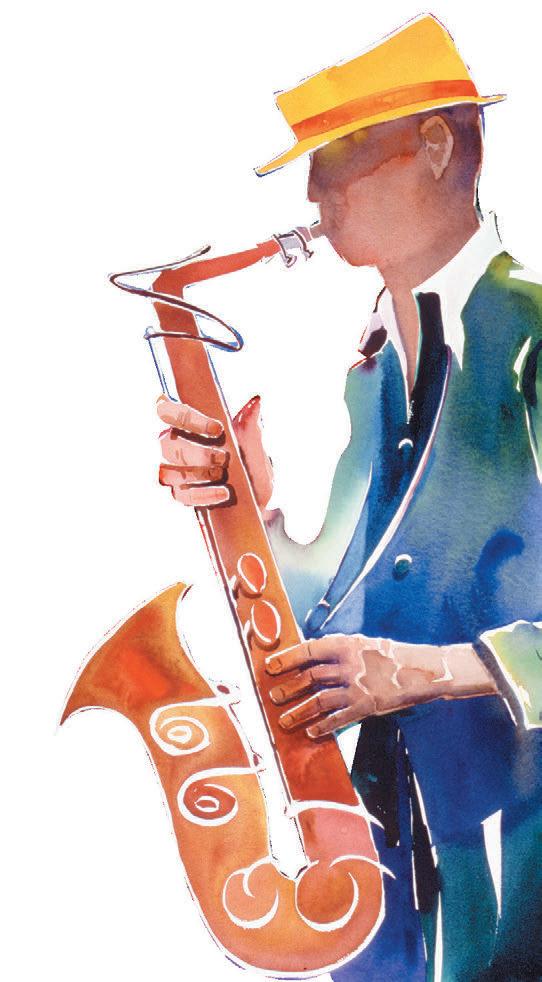
I print this spreadsheet that includes my students’ names, place it next to the seating chart, and record the scores in real time on the paper. At the end of the day, I enter the scores into the spreadsheet. With a tablet, a teacher could streamline the process further by entering scores directly to the spreadsheet.
When I look at scores in this spreadsheet, I can see the forest and the trees. I use the spreadsheet to sort scores and look for patterns. Did everyone get a lower score on the third song? Do I see a lot of low scores on rhythm activities? Is anyone consistently getting poorer scores? Those patterns help me plan reteaching, small group activities during station time,
58 Southwestern Musician January 2023
Easy & Fun to Play • Versatile • Rich Classic Sound • Flexible
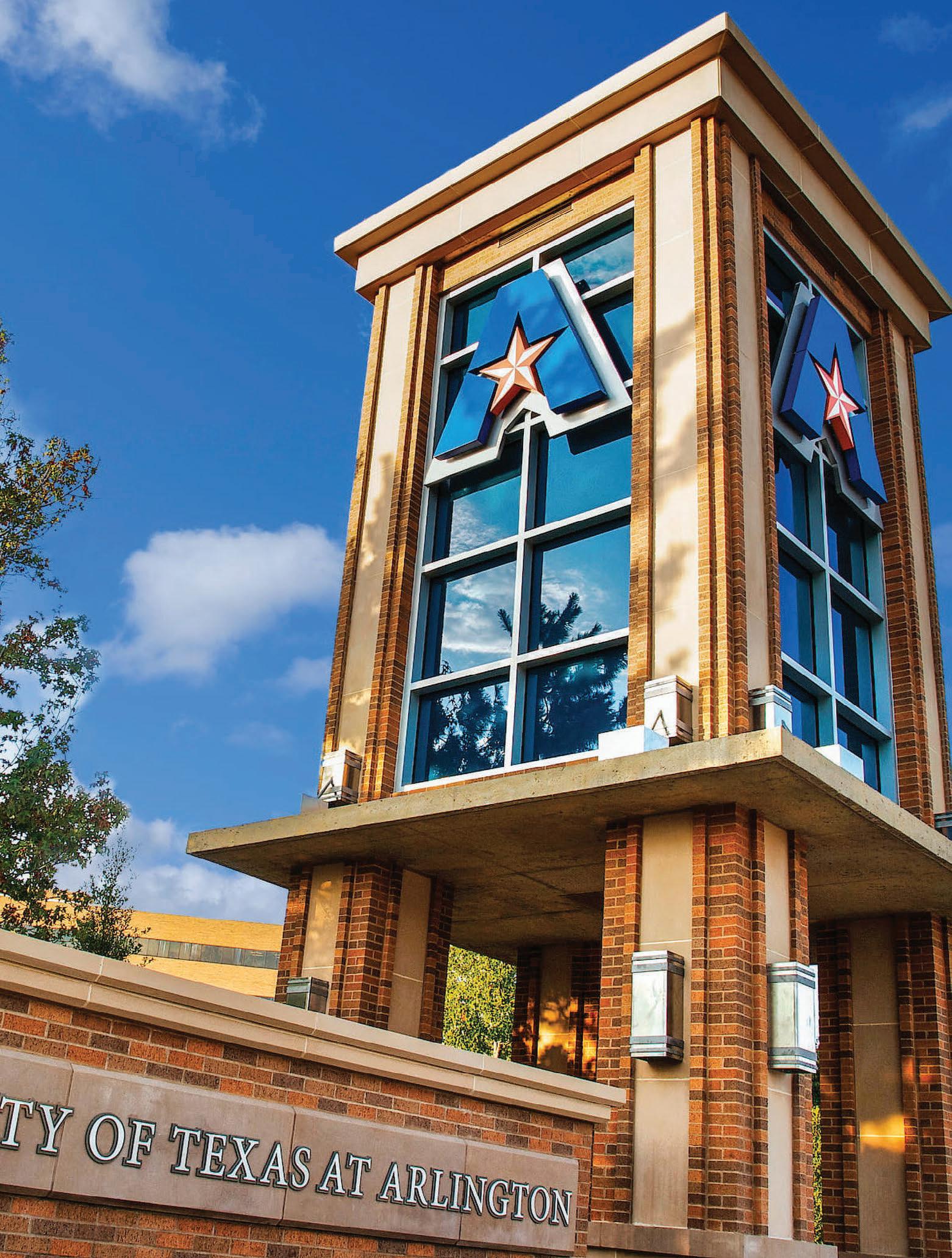


Study and Perform in the heart of Dallas-Fort Worth DEGREES OFFERED Music Education, Performance, Jazz, Theory, Composition Music Business, Audio Production For more information visit our website (uta.edu/music) ADMISSION & SCHOLARSHIP AUDITIONS March 4 and March 25 Voice Strings February 18 February 18 and March 4 Woodwinds, Brass, Percussion, Piano, Jazz *Alternate dates by appointment UT Arlington Music
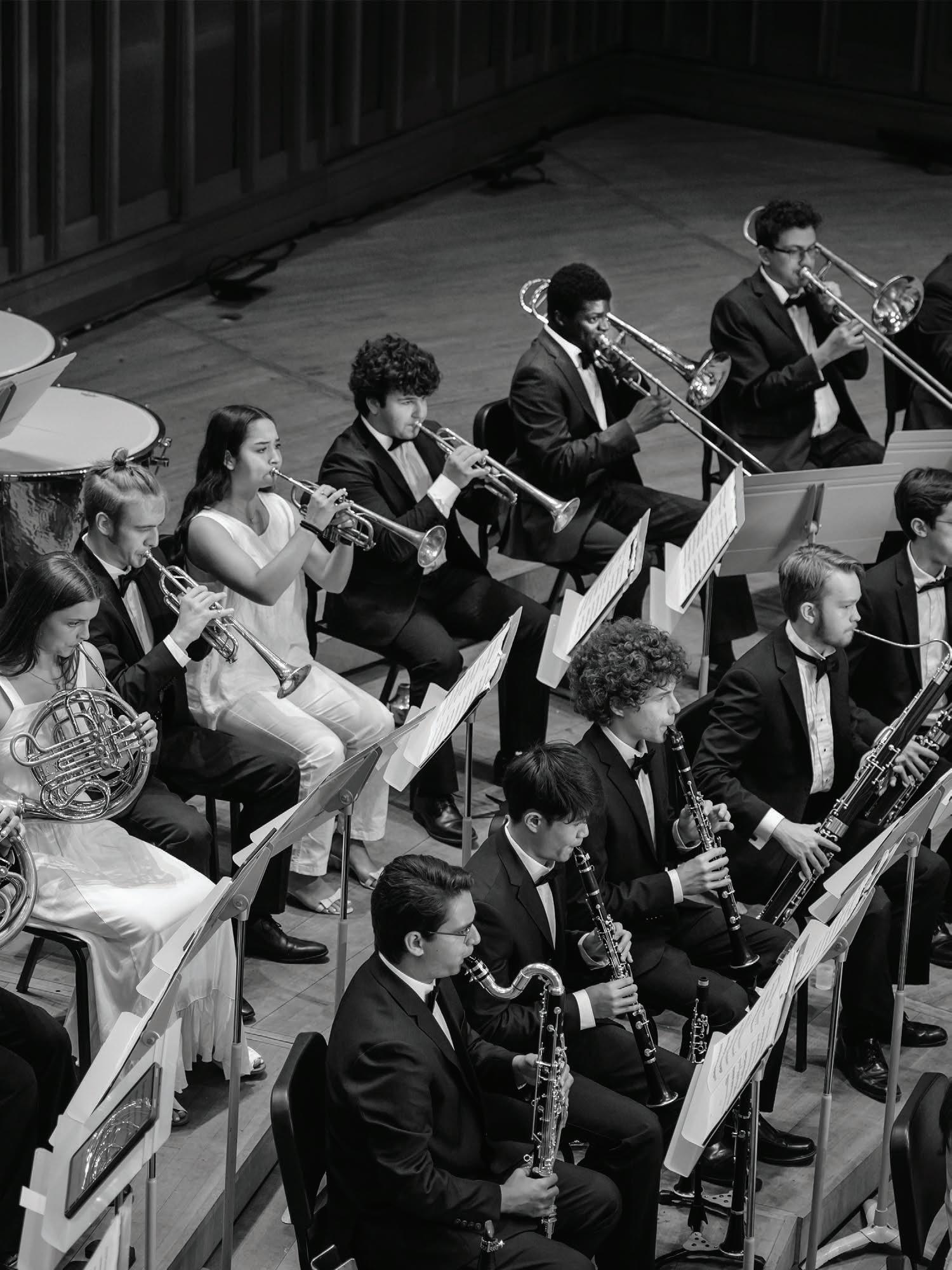


Young Artists Programs (July 2 - August 12, 2023) Young Artists Vocal Program - 6 weeks Young Artists Harp Program - 6 weeks Young Artists Composition Program - 6 weeks Young Artists Orchestra - 6 weeks Young Artists Wind Ensemble - 4 weeks • (July 2 - July 30, 2023) Young Artists Piano Program - 3 weeks • Session 1 (July 2 - July 22, 2023) • Session 2 (July 23 - August 12, 2023) Workshop Programs (June 18 - July 1, 2023) Flute • Oboe • Clarinet • Bassoon • Saxophone • French Horn Woodwind Quintet • Trumpet • Trombone • Tuba/Euphonium Percussion • Violin • Viola • Cello • Double Bass • String Quartet Composition Fundamentals • Electroacoustic Composition Learn more and apply bu.edu/tanglewood start here grow together START HERE. GROW TOGETHER.
and time allocation for teaching the different elements of the next activities. By seeing the big picture, I can use my time efficiently in future lessons.
Managing a School’s Worth of Data
Having taught at schools that average 400–600 students each year, I know it’s difficult to keep track of student work and student data in such large quantities. For me, organization is key and minimizing physical paperwork is critical. I do use some physical copies but love to digitize everything I can.
Each week, I put a copy of today’s seating charts and score records on one clipboard; all Monday classes go on the Monday clipboard, and so on. I can grab the clipboard of the day and have the information I need quickly, and I can just as easily put it away. When I’m done with the grading period, I file those sheets until the end of the year.
When the students complete physical work, like composition activities, I prefer to have them also complete digital activities. I use Google Slides and Seesaw to create digital activities with manipulatives. Using this with our Learning Management
System (LMS) makes it easy to store activities and score them, as well as quickly give feedback without getting disorganized. If the activity is physical, I record it on my score sheet in real time, and when possible, I have students take a picture of the activity and submit it as an assignment in their LMS. Performance assignments can also be recorded through Flip and viewed later if scoring students in real time is difficult.
Is It All Worth It?
For me, yes! Putting in the extra time to collect data has been a game changer in my classroom. It’s been well worth the initial time investment, for multiple reasons including the following:
Student outcomes have improved. I have been able to target students’ needs more quickly and deliver more differentiated instruction and rehearsal within fewer class periods. No longer do I have those times where my class is struggling and I am struggling equally to pinpoint the problem. Even if a student is not quite in line with their peers on a particular skill, I can encourage the student by showing them how far they’ve come.
I can advocate with my administration. My principal is used to speaking in the language of data, and so are his higher-level administrators. By being able to talk about student achievement and student growth in real numbers, I speak a language my principal understands and respects. My students are learning real skills just as they do in language arts and math classes, and I can prove that I’ve measured progress. This can go a long way to teach the administration about what I do and its value.
Collecting data is at the heart of my program’s progress and the successes my students have achieved. Having a clear picture of where my students are is the only way for me to build a pathway to get them where they need to go. While it does take some time and intentional organization, data-driven instruction in my classroom has been well worth it! 0
Mo Foster is a General Music Teacher at Northlake Elementary School (Garland ISD).
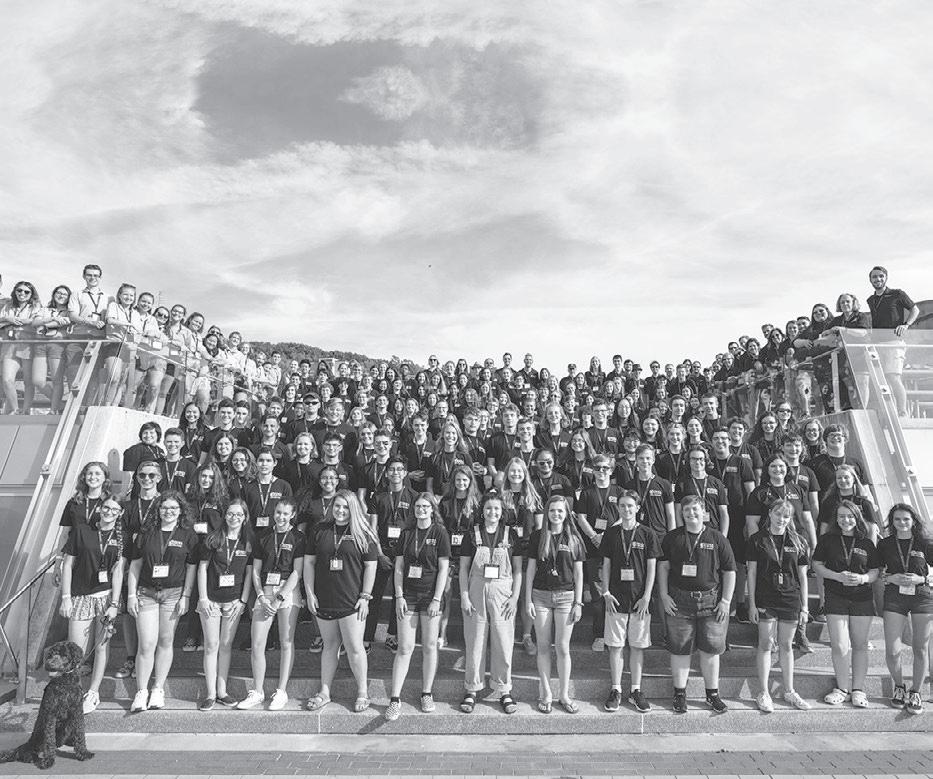
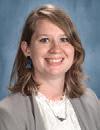
HIGH SCHOOL DIVISION JULY 9–22, 2023 • Entering grades 10–12 • Orchestra, wind ensemble, voice, and jazz programs INTERMEDIATE DIVISION JULY 23–29, 2023 • Entering grades 7–9 • Band, orchestra, and voice programs Take your musicianship to new levels in a residential, supportive environment with other musicians from across the country. Learn more at ithaca.edu/sma. Summer Music Academy PERFORM AT YOUR HIGHEST LEVEL. Registration now open! 61 Southwestern Musician January 2023
TMEA Elementary Vice-President
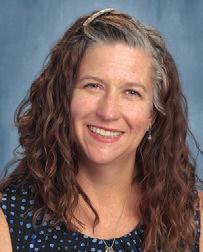 KATHERINE JOHNS
KATHERINE JOHNS
Feeding Your Musical Soul
My hope is that you find something to feed your musical soul, without thinking about others. Do this just for yourself. Believe me, your students will benefit even when they weren’t the reason you went.
In Memoriam
Loretta Walker 1958–2022
In October, I was blessed with a musical experience I almost didn’t take. Many years ago, I met Peter and Mary Alice Amidon, and we became friends. They introduced me to a gathering of folk dancers called Pourparler that happens annually. Pourparler is a French word meaning to talk. Another definition of the word is “to pour out one’s soul.” This gathering was started over 20 years ago by Sanna Longden, who has written many folk-dance instruction manuals for elementary music teachers. She had a vision to bring teachers of music, folk, traditional dance, and creative dance at schools and in communities together to share. There is no headliner, although there are a lot of names familiar to anyone who teaches folk dance in schools. Everyone gathers to share dances and tips for teaching. Most of the teachers gathered work with community groups, and many of the dances presented are advanced and intended for adults.
After being introduced to the group, I attended only a handful of times. There are many reasons I made excuses not to attend. One is the travel expense. The second is taking time away from my classroom. To attend the entire event, I would miss two days of school. This year has introduced a new challenge of teaching my classes once every eight school days. I missed one day in early October and was still trying to catch up that day’s classes. And I don’t walk away with a certificate. This isn’t professional development. Although I would learn things for my classroom, that is not the focus of the weekend.
MARK YOUR CALENDAR
check
January—Renew your membership and register for the convention.
January—Make your TMEA convention hotel reservation.
January 17—Convention hotel cancelation deadline.
January 19 —TMEA convention early registration deadline.
February 8–11 —TMEA Clinic/Convention in San Antonio.
February 9, 5:15 p.m.—Elementary Division Business meeting at the convention.
February 10, 5:15 p.m.—TMEA Region meetings at the convention.
www.tmea .org for updates
62 Southwestern Musician January 2023
ENYA

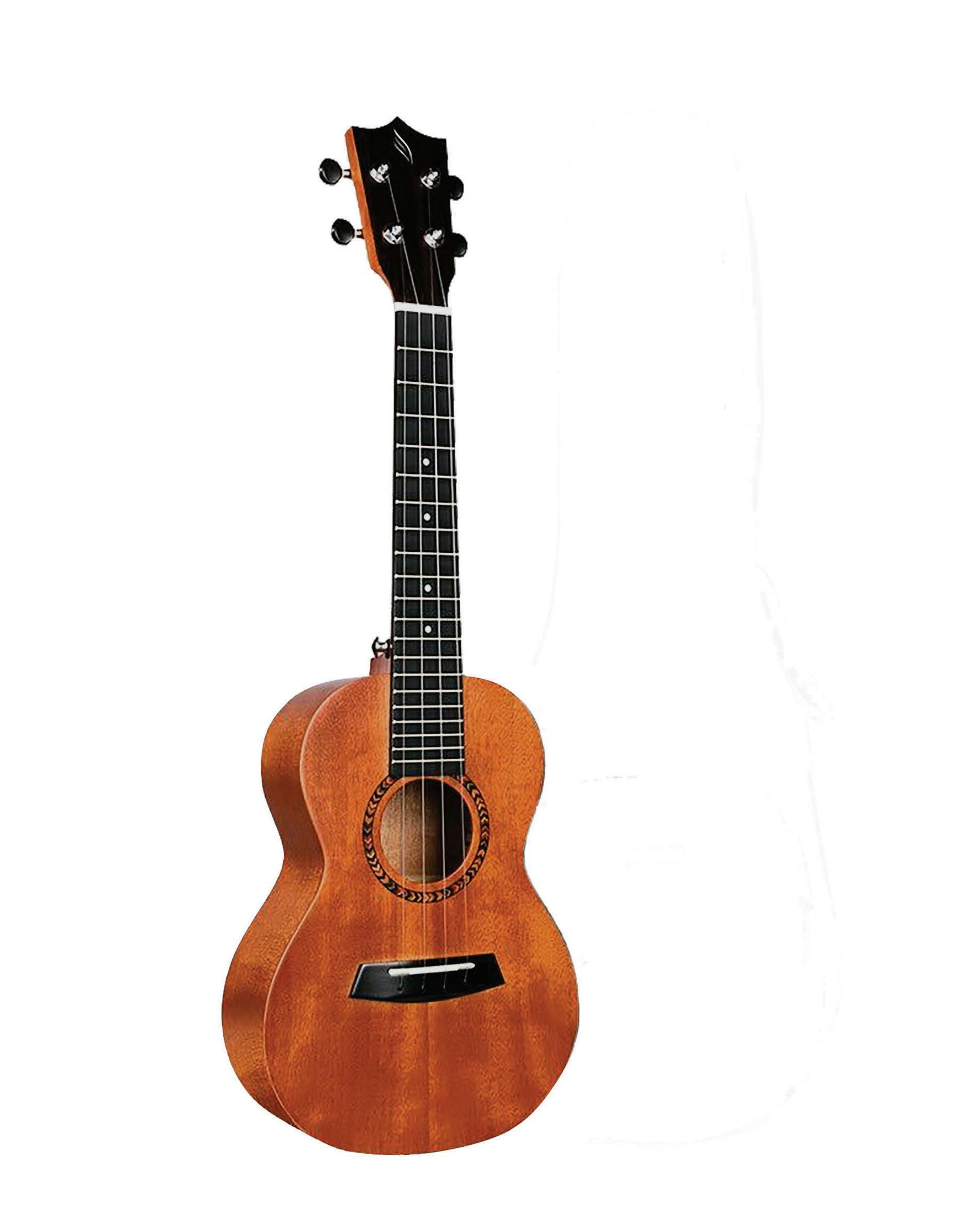
Contact us about teacher pricing and discounts on classroom sets.
lassic eripole® UKULELE 800.443.3592 PERIPOLE.COM A New Classic From PARTNERS IN MUSIC EDUCATION UKULELE FEATURES: • Great Action, Intonation, and Tuning Retention! • No Sharp frets at sides of neck • Closed geared tuners to keep out dust • Factory installed strap buttons on all instruments • Beautiful sound! • Includes Enrichment Kit! • Mahogany wood ENRICHMENT KIT FREE WITH EACH INSTRUMENT: • Padded gig bag with zipper pocket to hold accessories • Strap • Vibrational digital-chromatic tuner • Capo • Extra set of strings • Polishing cloth • Finger shaker for strumming hand Great Quality ∙ Great Price ∙ Complete Kit Peripole is proud to Sponsor at TMEA 2023: Sessions by Richard Lawton Providing All Instruments for Lonestar Ballroom, A,B,C
BY
So, one week prior to the event, I was still on the fence. Could I justify taking time away from my students and family (my daughter had Region marching band competition that weekend) for something I may or may not use in my current setting? I reached out to Peter and Mary Alice to confirm they would be there, and they invited me to stay at their house. That was very humbling.
I did go. And it was magical. I took many notes, and videos were created so I could remember what I wanted to share with my students, but that was not my main takeaway. I was completely immersed in a world I don’t get to visit very often. I got to dance and listen for my own enjoyment. I spend so much of my time away from work looking for workshops that will benefit my students that I forget to feed my musical soul.
When I returned to the classroom on Monday, I briefly thought that it might be difficult following that magical musical weekend to come back to reality. But instead, I returned to my classroom and my job with a fresh perspective. I remembered why I teach and why I love teaching music.
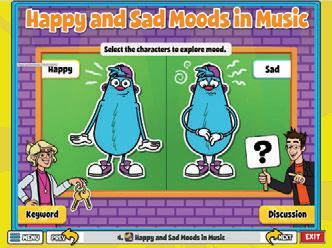
I am not sharing this experience to brag about having gone; if you are interested in attending Pourparler in the future, reach out to me, and I will share the information. My hope is that you find something to feed your musical soul, without thinking about others. Do this just for yourself. Whether it is a performance you attend or participate in or a musical experience you want to take just for the enjoyment of music, do it. Believe me, your students will benefit even when they weren’t the reason you went.
Clinic/Convention Update

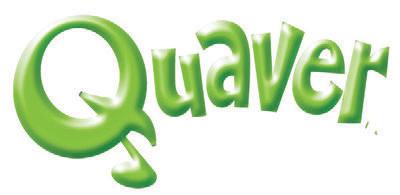

The online early registration deadline of January 19 is near, so don’t hesitate to register to attend our amazing convention at the lowest rate! Go to www.tmea.org for information and to register. I can’t wait to see you next month in San Antonio!
The online searchable schedule will be available in early January at www.tmea.org/ convention/schedules. From this online schedule, you can create an account that you’ll use when you download the convention app to your mobile device. With that account, you can begin creating your schedule online and then access it from

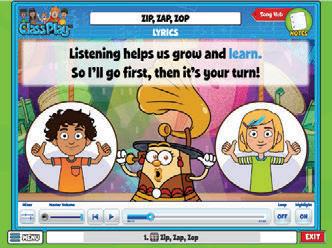


the convention app while in San Antonio. For the 2023 convention, you’ll download our convention app directly from your app store, so look for notifications from TMEA about its availability.


This month, I’m pleased to share information about our Elementary Division Invited Ensembles that will perform during our convention. Be sure to add these performances (and the ones I highlighted in the November issue) to your schedule. When you find these in the schedule, note that our Division’s concerts will be in the Stars at Night Ballroom this year (that’s on the north side of the convention center on the third floor—a much closer walk from our Grand Hyatt clinic locations than in past years!).

Fort Bend ISD Elementary Honor Choir
The Fort Bend ISD Elementary Honor Choir is honored to represent FBISD with their performance for the Kodály Educators of Texas General Membership Meeting. The choir is an auditioned group of fifth graders from each of the district’s 51 elementary schools. The Honor Choir

64 Southwestern Musician January 2023
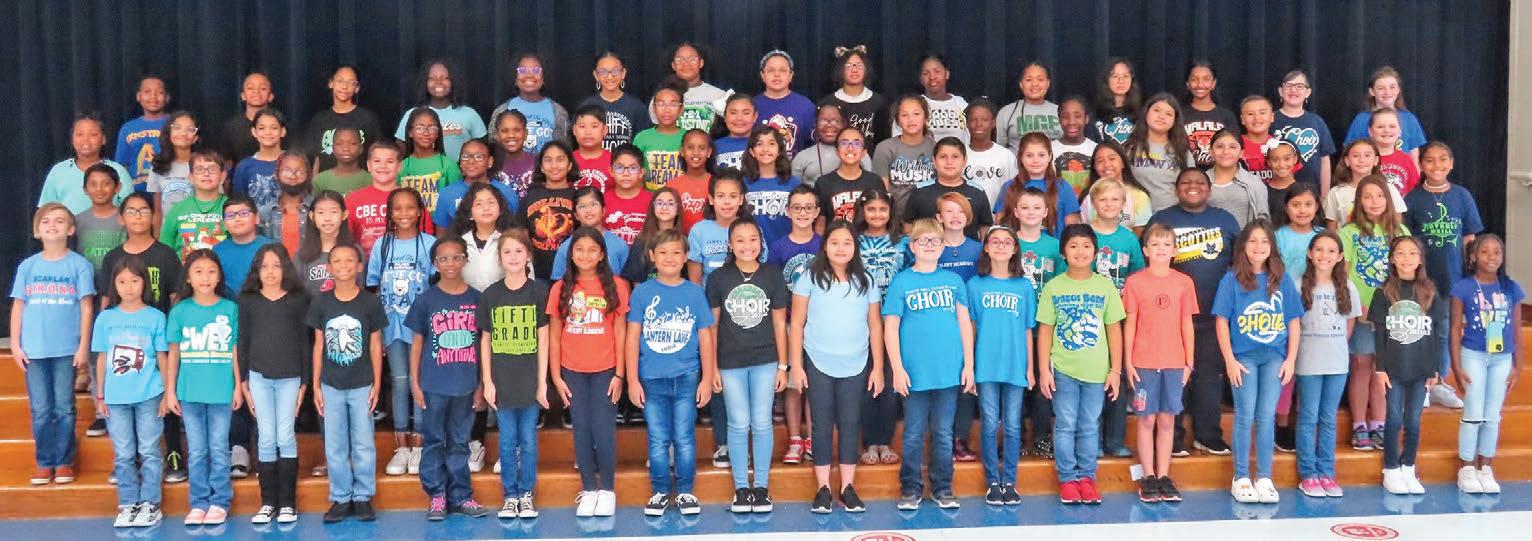
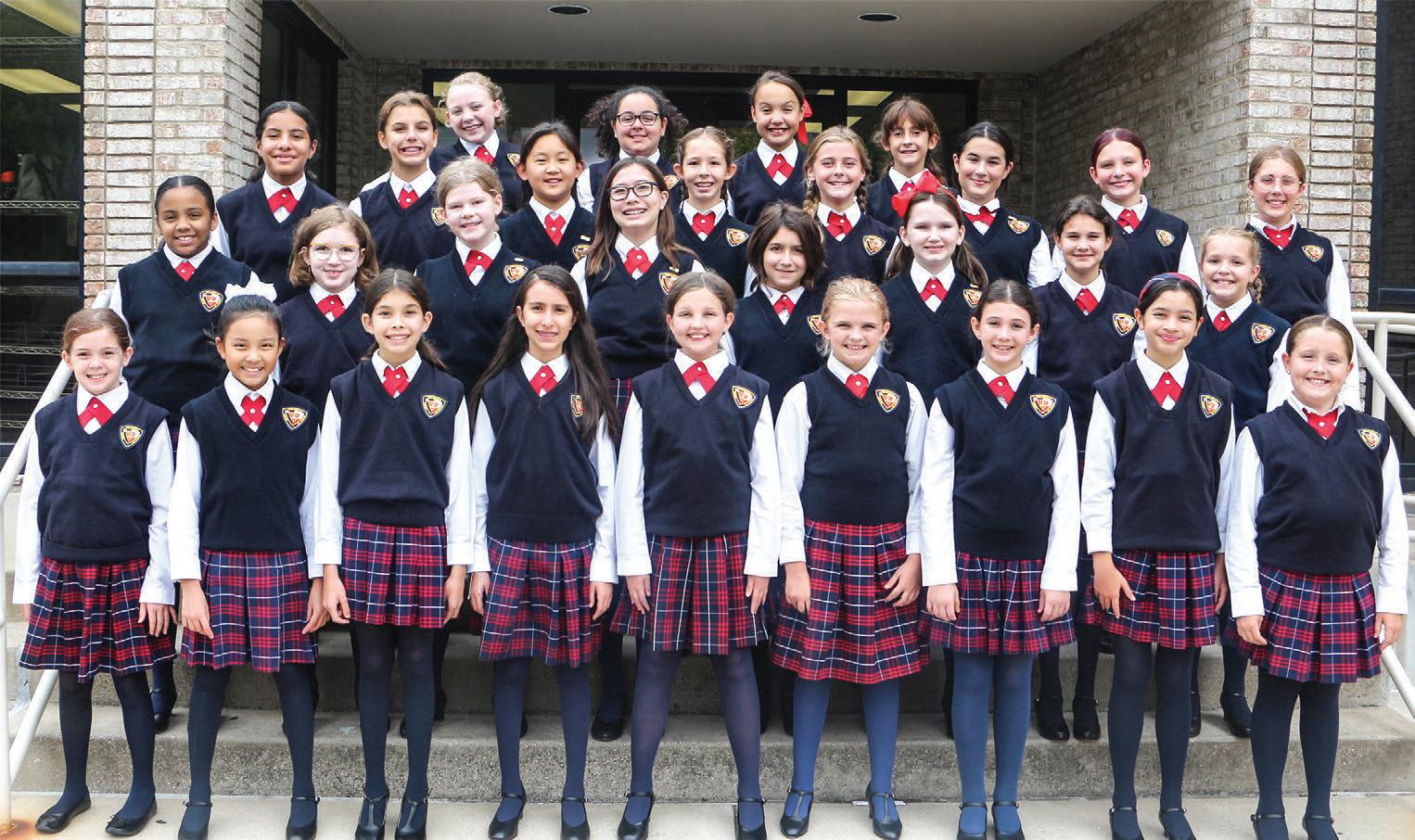
 Fort Bend ISD Elementary Honor Choir
Children’s Choir of Texas
Fort Bend ISD Elementary Honor Choir
Children’s Choir of Texas
65
January 2023
Collins Chorale
Southwestern Musician
performs an annual concert and has collaborated to perform for the district’s opening convocation ceremony.

The ensemble is under the direction of Rica Goldyn (Palmer Elementary) and Cinnamon Dove (Cornerstone Elementary). The choir is making its second appearance at a TMEA convention, previously performing in 2016.
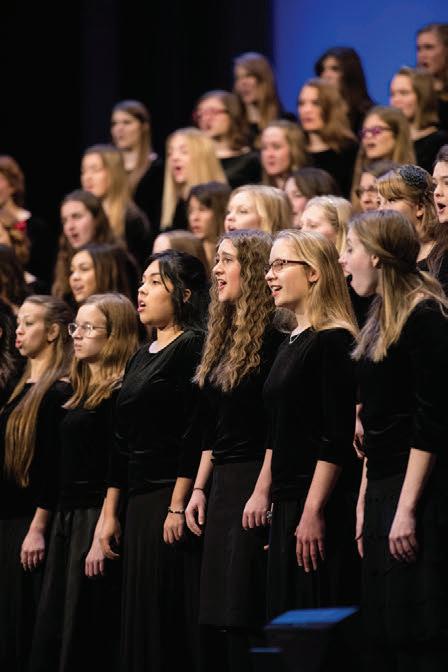
Children’s Choir of Texas
The Children’s Choir of Texas is an auditioned ensemble of 5th and 6th graders based out of Texas Center Arts + Academics charter school, Fort Worth Academy of Fine Arts. Over its 22-year history, the ensemble has been invited to sing at conferences hosted by Southwest ACDA (2016, 2020), National ACDA (2021) and TMEA (2011, 2014, 2023).



Under the direction of Jackson Hill, the choir regularly collaborates with community arts organizations and university music programs throughout the Dallas–

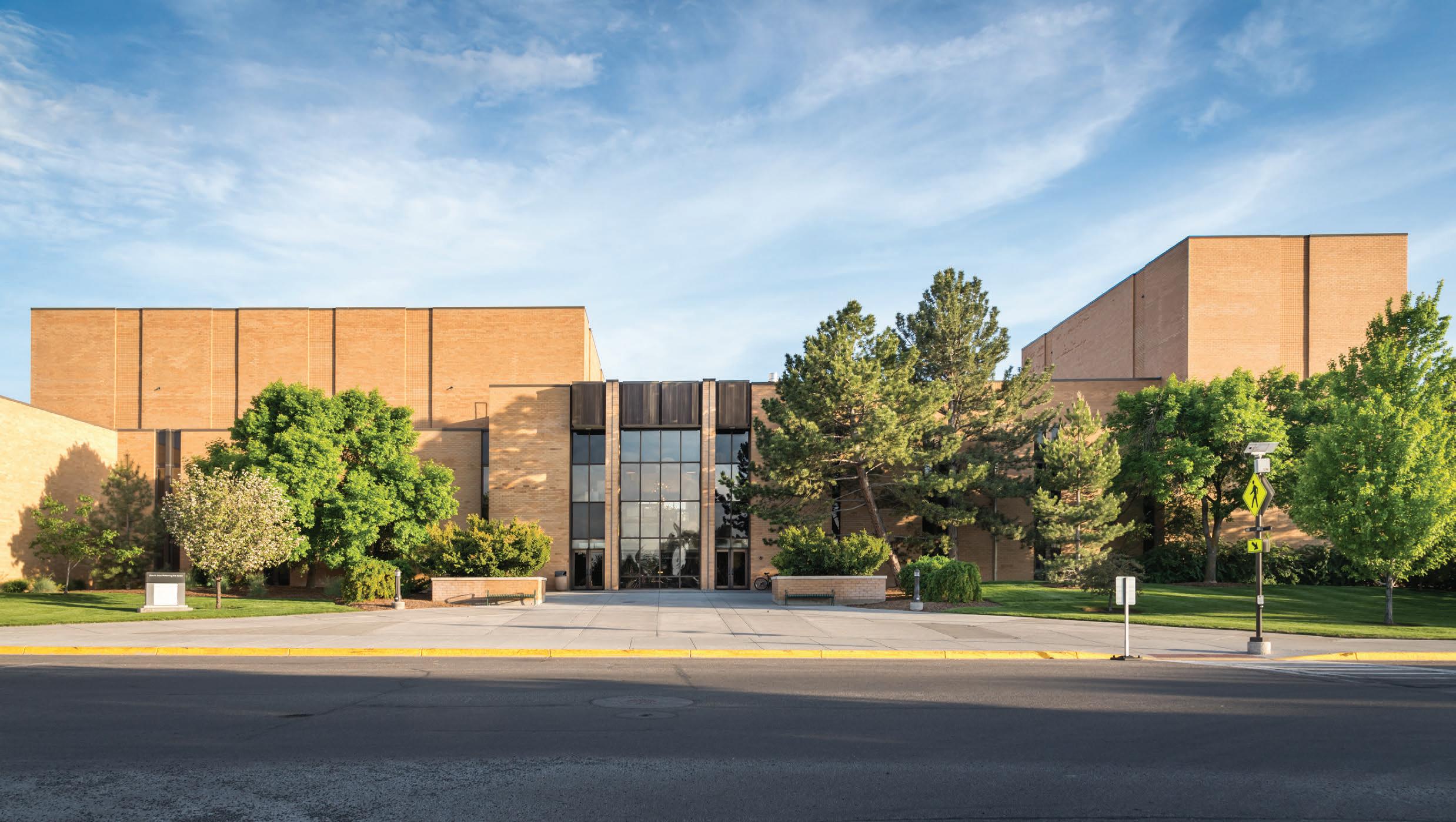
education at the academy, each choir member receives daily instruction in dance, music, theatre, and visual art.
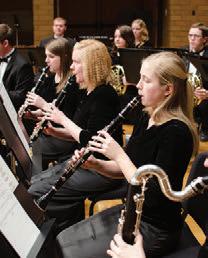
Collins Chorale
Collins Chorale is honored to represent Collins Intermediate (Conroe ISD) with their TMEA convention performance. The choir consists of 96 students, fifth and sixth graders, with equal percentages from the daily band, orchestra, and music/art rotation. They meet one morning before and one afternoon after school weekly and are non-auditioned. They are a busy musical group, performing numerous concerts during the year including choral festivals where they have received superior ratings.
Angela Brill is their proud director. Collins Chorale, under the direction of Tricia Zinecker, performed for the TMEA Clinic/Convention in 1992. Collins Chorale cannot wait to sing and enthusiastically represent Conroe ISD at the 2023 convention. 0
ELEMENTARY DIVISION EVENT LOCATIONS
When you create your convention schedule, take note of the clinic and concert locations (especially if you’ve attended for several years).
Elementary Division clinics will be in the Grand Hyatt, next to the convention center, in the Lone Star and Texas Ballrooms on the second and fourth floors, respectively.
Performances by our 2023 Elementary Invited Ensembles will be in the convention center thirdfloor Stars at Night Ballroom 2–4 (easily accessed from the North Lobby).
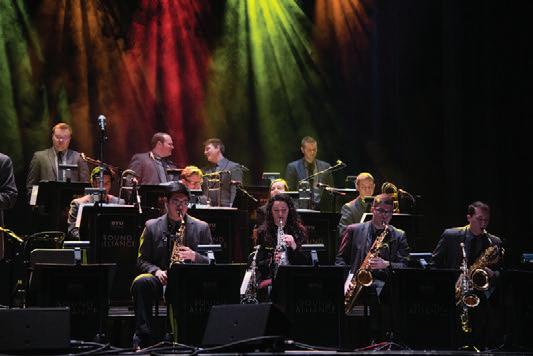
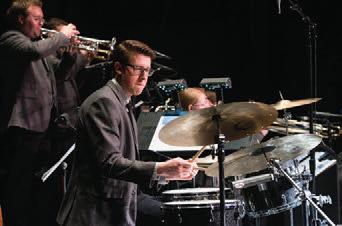
As we’ve mentioned before, be sure to examine clinics hosted by
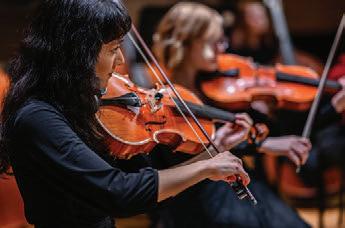
DEADLINE FOR ALL MATERIALS February 1, 2023 (208)496-4950 • music@byui.edu • http://www.byui.edu/music See website for in-person audition dates Scholarships Available OPPORTUNITIES Choir & Opera Band Orchestra Jazz Chamber Percussion Piano DEGREES BM Education BM Performance BMA BA Music PURSUE YOUR PASSION Department of Music Department of Music As
part of their
66 Southwestern Musician January 2023

wbu.edu 1.800.588.1928 Creative School of Arts Choral Education • Worship Studies • Vocal Studies Music Production • Piano Pedagogy General Music • Theory and Composition • American Music Studies Fields oF study three-year Bachelor oF applied science degree Sound Production • Piano Studies • Worship Studies one-year certiFicate in piano pedagogy new online programs
TMEA College Vice-President
MATTHEW MCINTURF
Recovering from Disruption
Since our discipline is unique and requires many highly specified instructional and administrative processes, we often will need to explain things we have been doing for years.
In Memoriam
Lawson Hager 1944–2022
The beginning of a new semester has become more exciting, challenging, and enlightening since the pandemic. We enter the fall semester with new plans and goals and the spring semester with a new understanding of the current year and our students’ needs and concerns. For most of us, the pandemic has changed the routine of the start of school and the pattern of the semester. I continue to be impressed with my colleagues’ creativity and resilience as we adapt to the new realities of teaching.
Dealing with changes in our academic culture continues to be a high priority at most institutions. As administrative adjustments have happened during the anomalous time surrounding the closure and reopening, it is not surprising that much institutional memory has been lost. Formerly simple procedures and routine processes are often, unpredictably, met with incomprehension and sometimes distrust. Building new lines of communication to create workable procedures can be timeconsuming and thought-provoking.
Music programs seem to be more affected than many others by this disruption. Since our discipline is unique and requires many highly specified instructional and administrative processes, we often will need to explain things we have been doing for years. This is complicated in music education programs that must coordinate between the music unit and the education unit. However, this may offer a positive opportunity to create new processes that work better and more efficiently.
Our students, many of whom entered the university during this
January—Renew your membership and register for the convention.
January—Make your TMEA convention hotel reservation.
January 17—Convention hotel cancelation deadline.
January 19 —TMEA convention early registration deadline.
February 8–11 —TMEA Clinic/Convention in San Antonio.
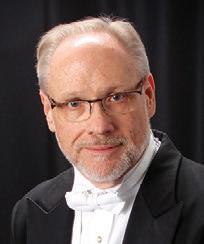
February 9, 5:15 p.m.—College Division Business meeting at the convention.
February 10, 5:15 p.m.—TMEA Region meetings at the convention.
YOUR CALENDAR
MARK
check www.tmea .org for updates
68 Southwestern Musician January 2023
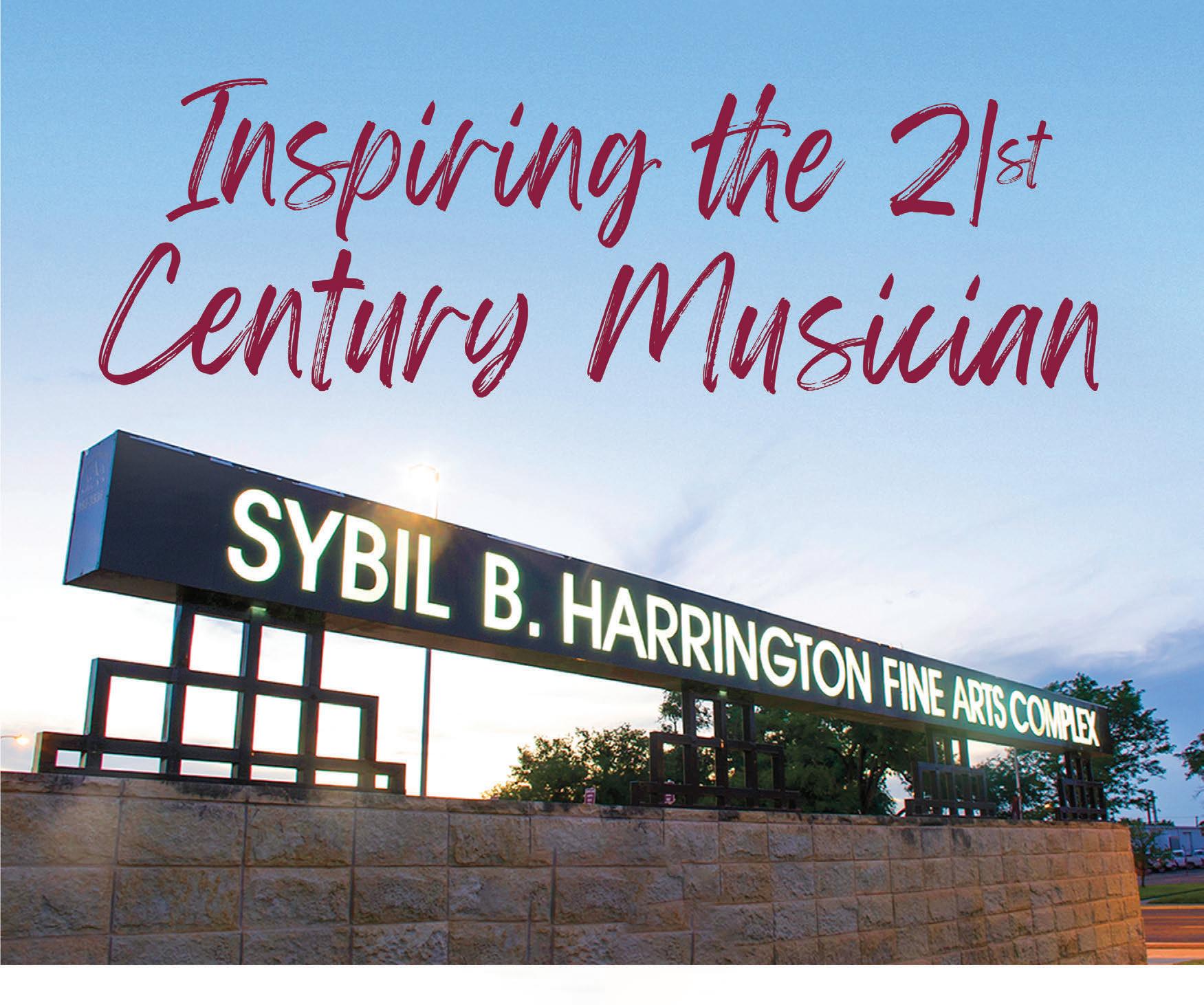
unusual time, are also working to find their way in a changing situation. Helping students navigate the educational structure in a time of cultural disruption requires time, thought, and commitment. A hidden cost for our music education majors is that they are not necessarily experiencing a wellplanned and sequential curriculum pattern. The many accommodations for safety have limited opportunity and perhaps obscured the design. A consequence of this loss of continuity can be difficult to see and may vary for individuals. Addressing this through independent learning is certainly the way forward.
TMEA Clinic/Convention Update

As you saw in the December issue of the Southwestern Musician, our 2023 Clinic/Convention promises to be an interesting and exciting event. The College Division will be offering a wide range of presentations, including a focus on wellness (for faculty and students) and inclusion. The schedule includes over 280 presentations on a wide variety of topics. The College Division is well represented, with our members presenting for almost every division in the association. I am confident there will be strong professional offer-
COLLEGE
DIVISION EVENT LOCATIONS
When you create your convention schedule, take note of the event locations (especially if you’ve attended for several years).
The College Division’s clinics will be held in the convention center on the west side in rooms CC 205, 206, 207, and 210.
The Research Poster Session will be in West Registration (on the street level just below CC 205).
The Division Business meeting will be in CC 206.
As mentioned before, be sure to examine clinics hosted by other divisions, as many will support your work (especially General Membership and Technology).
ings that will be valuable for both college faculty and students. I hope you plan to attend, and if you haven’t yet registered, be sure to do so before the early deadline of January 19 to pay the lowest fee. Looking forward to the convention, please see the article on page 44 of this issue by one of our featured clinicians, Rachel L. Dirks.
Please encourage your students to attend the convention. Those who have paid their 2022–2023 College Student dues can register to attend the convention at no cost. When college students attend our event, it expands their horizons and encourages their aspirations for their future careers.
In addition to the valuable information they receive through the sessions, attending connects them to the profession beyond their local studies and plants the seed for future participation when they enter the workforce. Many future educators have had great experiences with TMEA through All-State or performance participation, but few are aware of the significant professional development opportunities and the importance of TMEA participation to our advocacy endeavors.
They are also often unaware of how extraordinary the experience of the TMEA Clinic/Convention is compared to other professional opportunities. I believe we help our students tremendously when we foster a commitment to TMEA and the wider profession.
Online Schedule
The online searchable convention
schedule will be available in early January at www.tmea.org/convention/schedules. From this online schedule, you can create an account that you’ll use when you download the convention app to your mobile device. With that account, you can begin creating your schedule online and then access it from the convention app while in San Antonio. For the 2023 convention, you’ll download our convention app directly from your app store, so look for notifications from TMEA about its availability.
2022 College Division Fall Conference
In October, we had our first face-toface College Division Fall Conference in three years. It was wonderful to see everyone and engage on important issues facing music education in Texas. Simply engaging in conversation, both professional and personal, was refreshing and encouraging.
I believe the fall conference has value that extends beyond the College Division. It provides a forum for issues that affect all music education and educator preparation at every level throughout the state. In addition to College Division business, we focused on the educator certification controversy and the severe problems of recruiting and retaining teachers. I’m confident that by working together, we have the skills and resources to address our concerns in a convincing and productive manner. The following is a summary report of the conference:
Pedagogical Clinics • Research Poster Session College Meeting • Extraordinary Concerts Networking Opportunities • Huge Exhibit Hall Attend the TMEA Clinic/ Convention! 70 Southwestern Musician January 2023
2022 TMEA College Division Fall Conference Report October 14, 2022
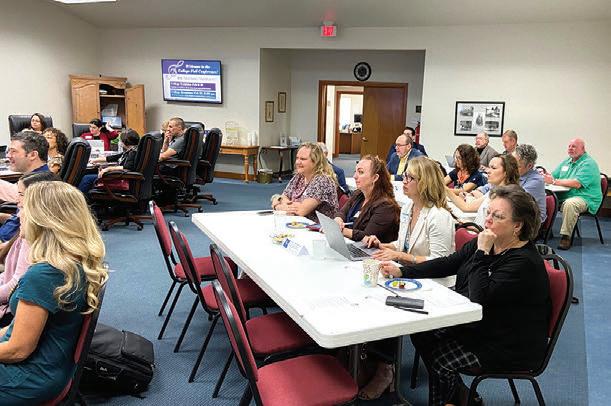
Matthew McInturf, Vice-President and College Division Chair, convened the meeting and welcomed all participants. He expressed thanks to the TMEA staff and the College Division Committees and provided a brief update on the 2023 convention. Executive Director Robert Floyd welcomed participants to the TMEA office and introduced legislative consultant Matt Matthews.
Matthews provided an excellent overview of the upcoming legislative session. His presentation included information on legislative priorities, funding, and the implications for fine arts education. He included a discussion of the impact of the Texas Arts Education Campaign and plans to influence the upcoming session. He stressed that now is the time to communicate with legislators and share information to help them make good decisions.
Floyd presented information about TMEA’s relationship with the legislature, especially stressing the importance of the legislative survey that TMEA conducts. He also encouraged us to promote the Texas Arts Education Campaign.
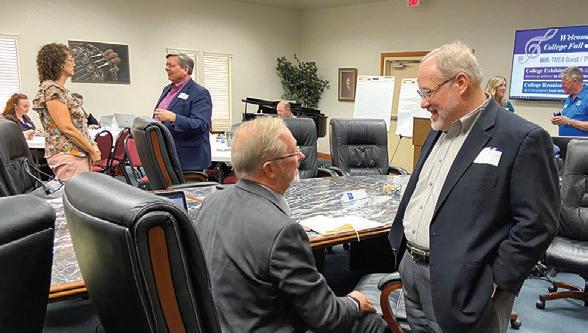
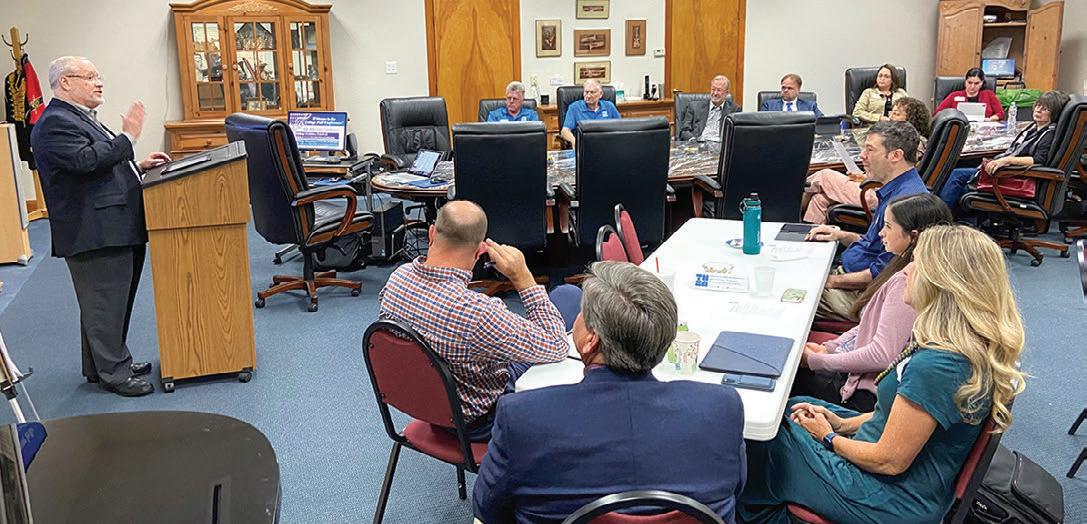
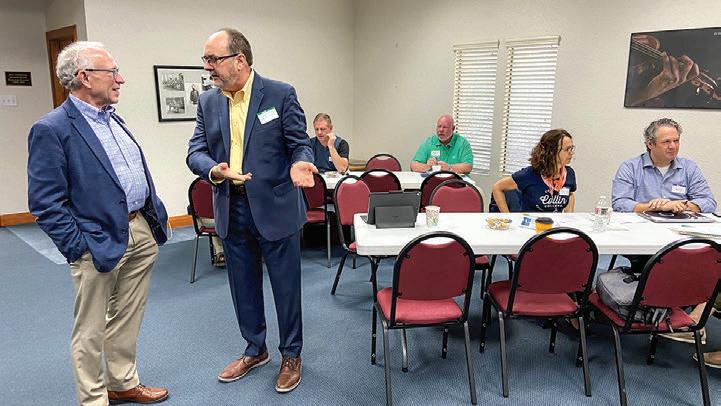
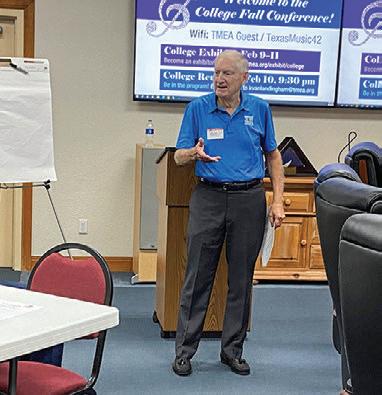
After a short break, Michelle Henry (Baylor University) and Floyd discussed certification issues.
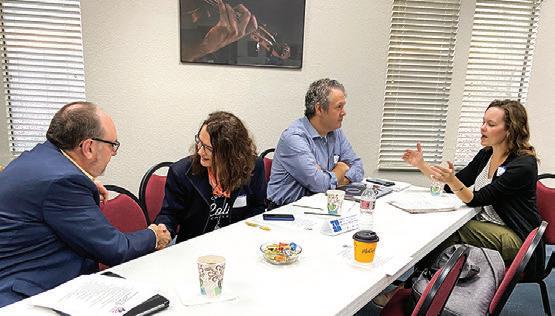
Floyd provided a synopsis of the history of the certification concerns surrounding the current certification process, EdTPA, and the possible alternatives. Henry offered a cogent explanation of the problems with EdTPA and our concerns about the review process. She highlighted multiple issues that need to be addressed, with information about the role of TMEA and the College Division members in influencing the process. A profitable discussion ensued about concerns, possible solutions, and implementation strategies.
Dinah Menger and Joseph Clark from the Texas Music Administrators Conference (now Texas Fine Arts Administrators) discussed recruiting and retaining music teachers in secondary education. They presented a clear description of the problem, which has been exacerbated by the pandemic, and offered examples of districts with major shortages. An overview of the group’s current efforts and possible partnership solutions were considered. Specific items for TMEA members, university faculty, and
71 Southwestern Musician January 2023
COLLEGE FALL CONFERENCE OCTOBER 14, 2022 TMEA Headquarters
administrators were proposed. The critical nature and priority of the problem were clearly presented.
In the afternoon, division committees met and offered their reports:
Research Committee, Amy Simmons, Chair: The TMEA Research Poster Session will have a new location at the 2023 convention. Texas Music Education Research is searchable in ERIC, and we are seeking to encourage submissions. Information was given about research grants, including the process, deadlines, and requirements.

Teacher Preparation, Darla Meek, Chair: Discussed edTPA concerns to pre-
pare for TMEA legislative presentations. Reported that the committee is working on presentations and expanding materials for certification examination preparation for university students. Considered ways to make the mentoring program more effective and the design of a project for recruiting potential music teachers.
Article Review Committee, Julie Scott, Chair: Reported that the committee has created a proposal to reinstate the TMEA College Student Essay contest. The committee met with Communications Manager Karen Cross, to discuss the contest and review the process for Southwestern
Musician article reviews. McInturf will submit the final proposal for the essay contest to the TMEA Executive Board.
Two Year College Committee, Todd Quinlan, Acting Chair: Reported on the ongoing work of the Texas Higher Education Coordinating Board. The committee is monitoring the review of the fields of study, which will eventually discuss music and fine arts. The committee also considered ways to support the TMEA Executive Board’s efforts to work with College Division Region Chair vacancies and considered legislative priorities for TMEA.
DEIA Committee, Elizabeth Chappell, Chair: The College Division thanks Elizabeth Chappell of the University of North Texas for her service as committee chair. She has decided to step down as she pursues other scholarly endeavors. Because the DEIA Committee serves TMEA as a whole rather than as a subsidiary of the College Division, the vacancy will be considered by the TMEA Executive Board. 0
Attend the 2023 President’s Concert Featuring the Singing Sergeants of the U.S. Air Force Band Wednesday, February 8 • 8:00 p.m. Lila Cockrell Theatre • Free Concert / No Tickets 72 Southwestern Musician January 2023
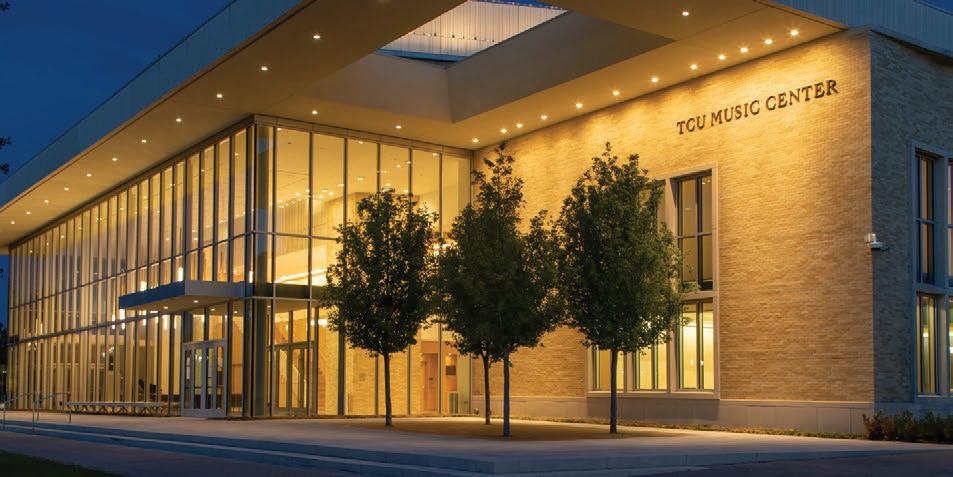


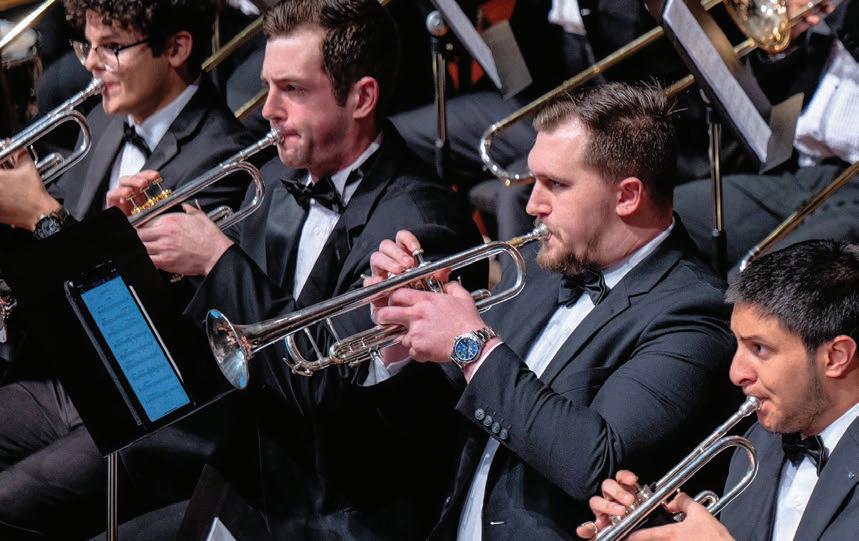
If music is your passion, Scholarship Opportunities Available For You TCU is your school. MUSIC.TCU.EDU/ADMISSIONS School of Music NORDAN Scholarship instrumentalists, and composers of superior talent , who have chosen to major in music. NORDAN winners receive a four-year, FULL-TUITION AWARD. Graduate Programs Available For You disciplines. Graduate Assistantships are available. NORDAN Auditions are by special invitation. January 14, 2023 - Nordan Scholarship* More information is available online at ww w.music.tcu.edu. *Pre-screening Video Audition Required January 21 // February 4 // February 18 AUDITION DATES FOR SPRING 2023 Watch all of our events on YouTube! The Van Cliburn Concert Hall at TCU is now open! February 1, 2023 - General Application Deadline (final deadline).


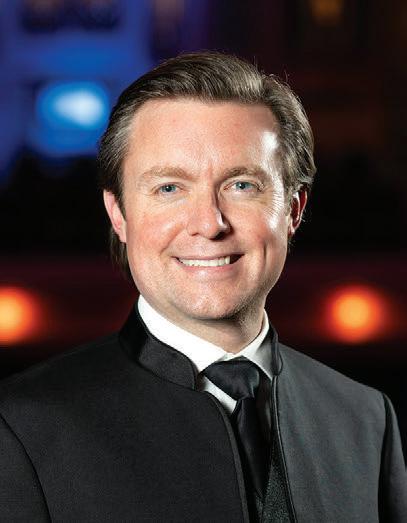

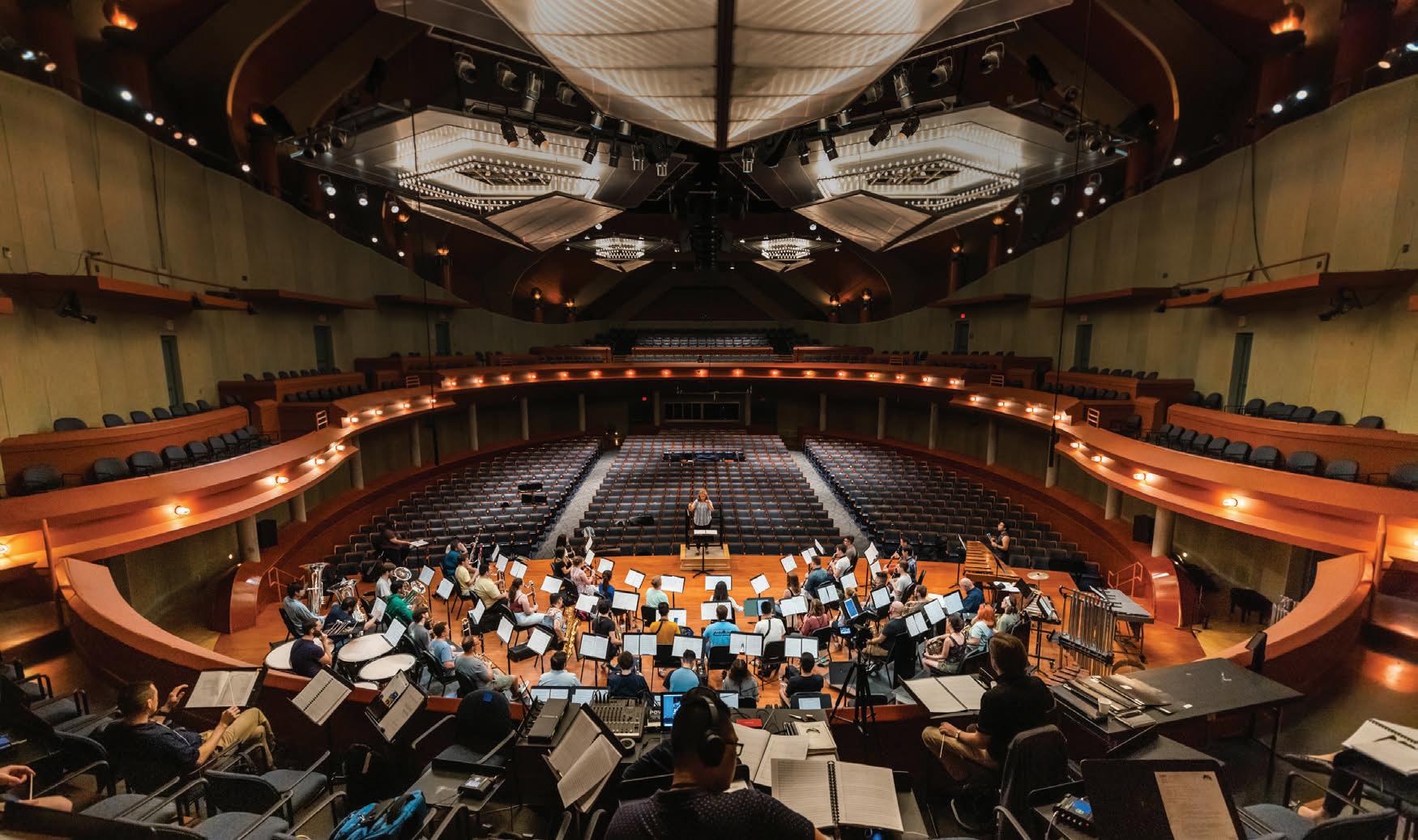
DIRECTOR OF WIND STUDIES REGENTS PROFESSOR OF MUSIC WIND SYMPHONY CONDUCTOR CHAIR, DIVISION OF CONDUCTING & ENSEMBLES PROFESSOR OF WIND STUDIES WIND ORCHESTRA CONDUCTOR LECTURER IN WIND STUDIES WIND ENSEMBLE CONDUCTOR DIRECTOR OF ATHLETIC BANDS EUGENE MIGLIARO CORPORONANDREW TRACHSEL DANIEL COOK LEARN MORE AT WINDSTUDIES.MUSIC.UNT.EDU CONDUCTORS COLLEGIUM JUNE 12-23, 2023 UNIVERSITY OF NORTH TEXAS COLLEGE OF MUSIC 2023











 MICHAEL STRINGER
MICHAEL STRINGER





























































































 SHANE GOFORTH
SHANE GOFORTH

 The Ludwig-Musser percussion products needed for All-State ensembles at TMEA 2023, has been selected and is ready for shipment to San Antonio.
The Ludwig-Musser percussion products needed for All-State ensembles at TMEA 2023, has been selected and is ready for shipment to San Antonio.












 Wiley MS Wind Ensemble
Carlisle HS Band
Wiley MS Wind Ensemble
Carlisle HS Band
















 ANN G. SMITH
ANN G. SMITH



 University of Texas at Arlington Symphony Orchestra
University of Texas at Arlington Symphony Orchestra




































 Grand Prairie Fine Arts Academy MS Tenor-Bass Singers
Trinity Springs MS Varsity Treble Choir
Grand Prairie Fine Arts Academy MS Tenor-Bass Singers
Trinity Springs MS Varsity Treble Choir












 KATHERINE JOHNS
KATHERINE JOHNS
















 Fort Bend ISD Elementary Honor Choir
Children’s Choir of Texas
Fort Bend ISD Elementary Honor Choir
Children’s Choir of Texas






























